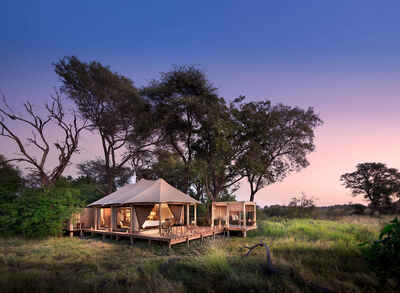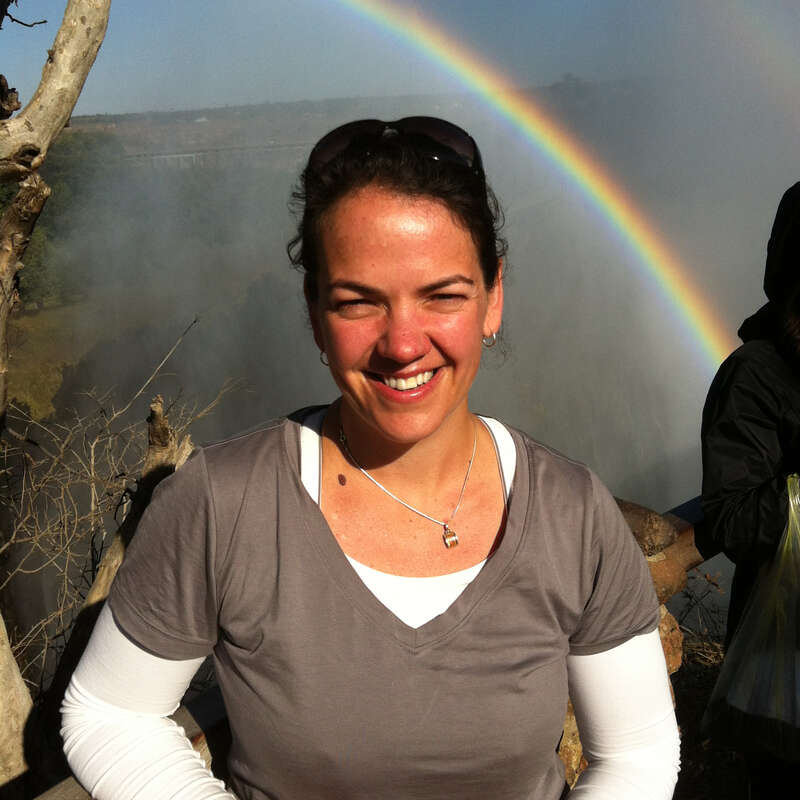About Nxabega Okavango Tented Camp
Nestled on its own tree island amidst the open floodplains of the Okavango, Nxabega is exceptionally scenic.
There’s a deceptive simplicity about the design of the camp, too, that blends almost seamlessly with the setting. The materials are natural; the colours muted.
In tented chalets, roofing canvas is draped softly above comfortable beds that look out across the plains. Huge mesh windows allow a cooling breeze, enhanced by air conditioning above the beds.
Teak floors extend to your outside deck, and on to a separate sala, where a two-person chair swings invitingly beneath a pole roof supported by solid timber uprights.
Even your outdoor shower takes in the view – as do sunloungers on the pool deck, and, of course, comfortable chairs and dining tables in the main area. After dark, draw up a chair around the firepit, or cosy up around a log fire in one of the two lounges.
Dining at Nxabega can be a feast to the eyes as well as to the tastebuds, not least when faced with your own personal buffet at lunch. Food is important here – and the service is excellent.
With an attention to detail that runs throughout the camp, and includes a high standard of guiding for both land - and (in season) water-based activities, Nxabega has much to offer the discerning traveller.
Our view
We think that Nxabega is a great safari camp, with beautiful rooms, high standards of friendly service, good guiding and imaginative food. On our last visit, what really stood out was the attention to detail and service.
During the dry season, Nxabega isn't usually top of our list for high game densities; then we think of this camp more for its water-based activities. But during Botswana's green season, when game is generally less easily seen elsewhere across the Delta, Nxabega comes into its own as a relatively good choice for game viewing.
Accommodation
8 chalets; 1 family
Children
Best for aged 6+
Open
All year
Activities

4WD Safari

Birdwatching

Boat trip

Fishing

Guided walking safari

Helicopter

Mokoro

Night drive

Private activities
Traveller reviews of Nxabega Okavango Tented Camp
39 real, un-edited reviews from Expert Africa's travellers.
Arrived 3 Apr 2025, 2 nights
"Nxabega Okavango Tented Camp review"
Overall rating: Excellent
Arrived 9 May 2024, 3 nights
"Nxabega Okavango Tented Camp review"
Overall rating: Excellent
Arrived 12 May 2024, 3 nights
"Nxabega Okavango Tented Camp review"
Overall rating: Excellent
Arrived 2 Nov 2022, 3 nights
"Nxabega Okavango Tented Camp review"
Overall rating: Excellent
Arrived 30 Apr 2022, 2 nights
"Nxabega Okavango Tented Camp review"
Overall rating: Excellent
Arrived 21 Sep 2018, 3 nights
"Nxabega Okavango Tented Camp review"
Overall rating: Excellent
Arrived 8 Nov 2016, 2 nights
"Great safari at Nxabega Okavango Tented Camp"
Overall rating: Excellent
Arrived 24 Jun 2016, 2 nights
"Beautiful and peaceful"
Overall rating: Excellent
Arrived 13 Jun 2016, 3 nights
"MY BOTSWANA: NXABEGA OKAVANGO TENTED CAMP"
Overall rating: Excellent
Arrived 7 Jun 2016, 3 nights
"Great location and staff"
Overall rating: Excellent
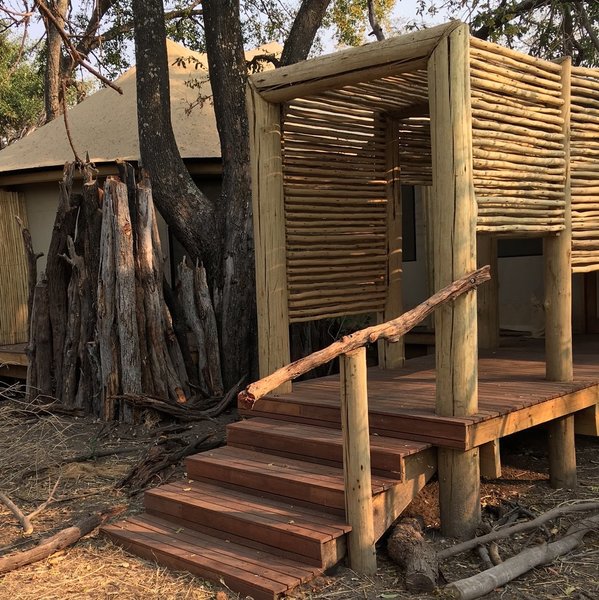
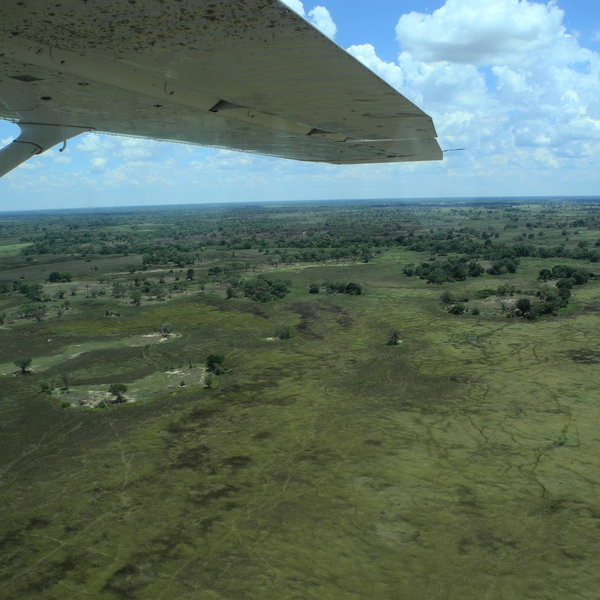
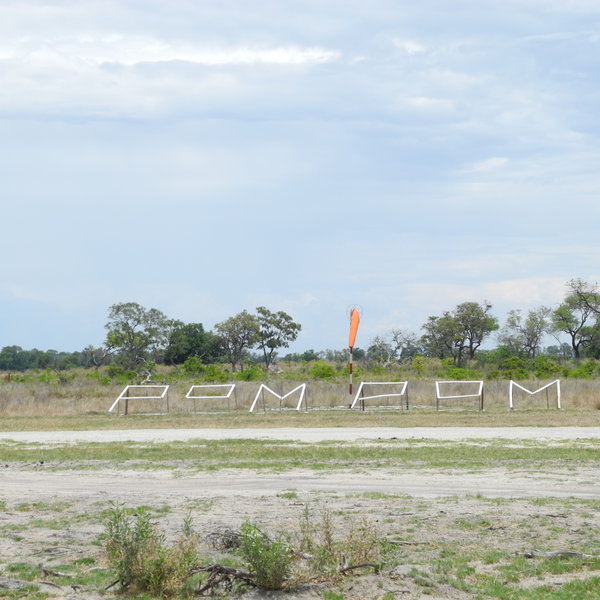
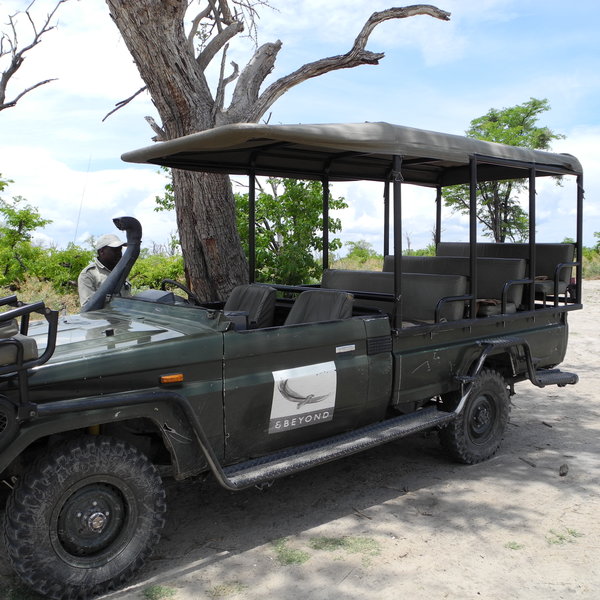
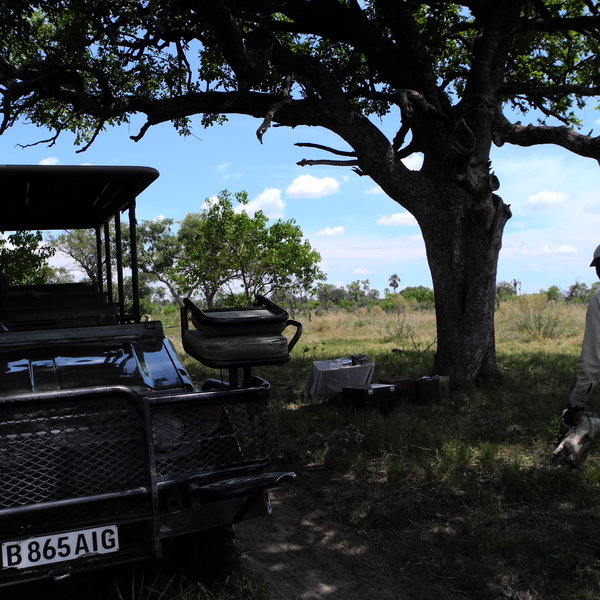
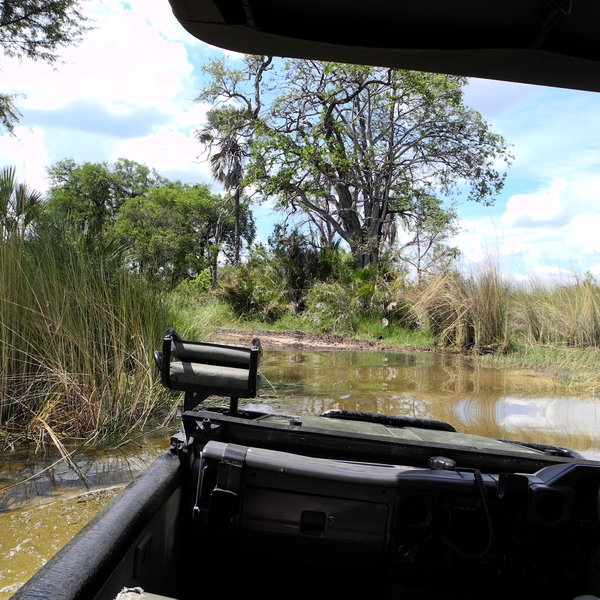
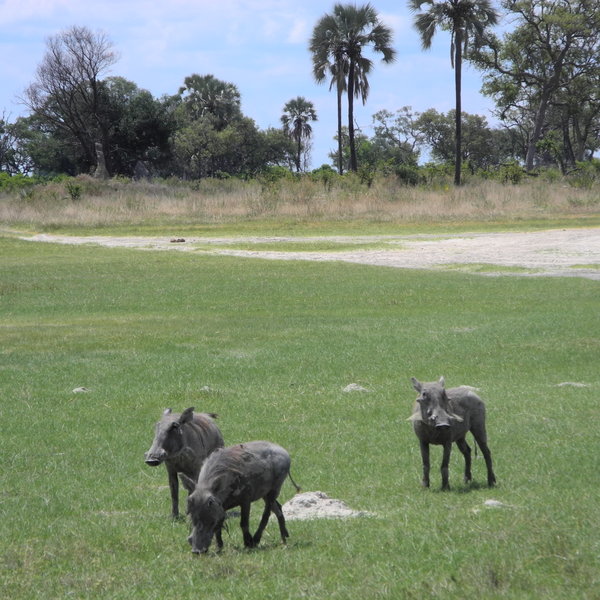
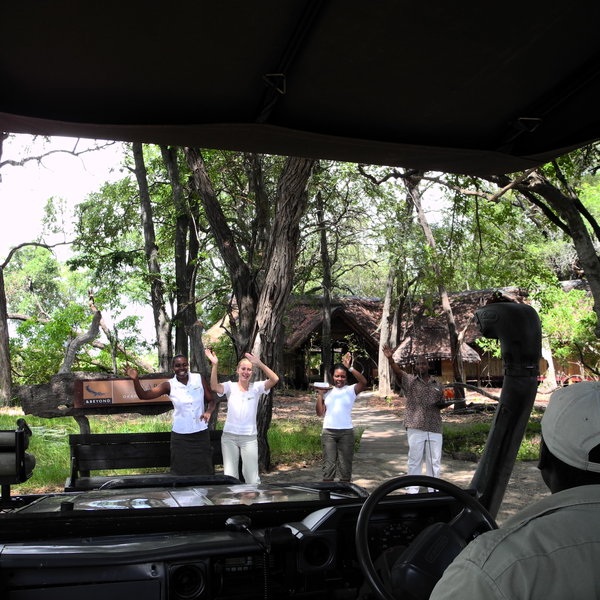
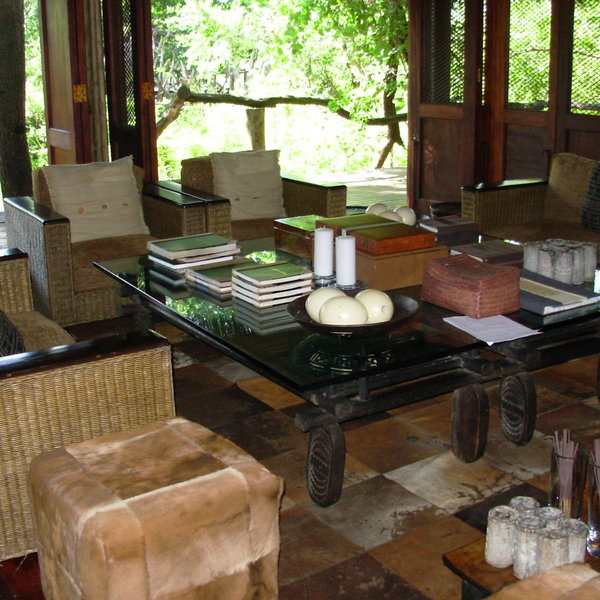
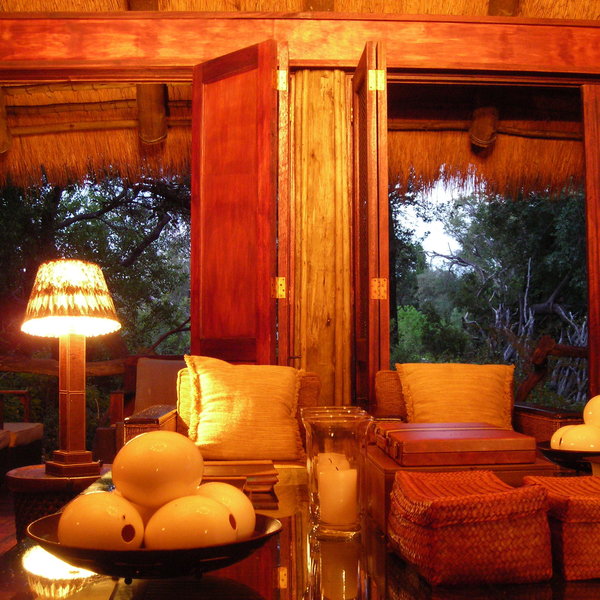
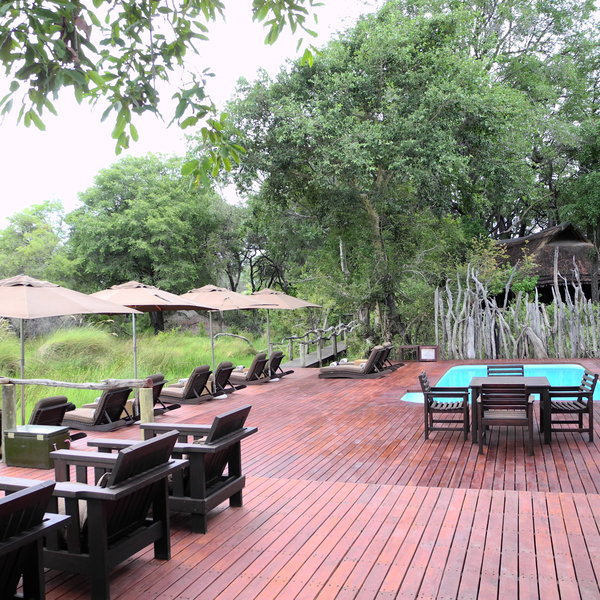
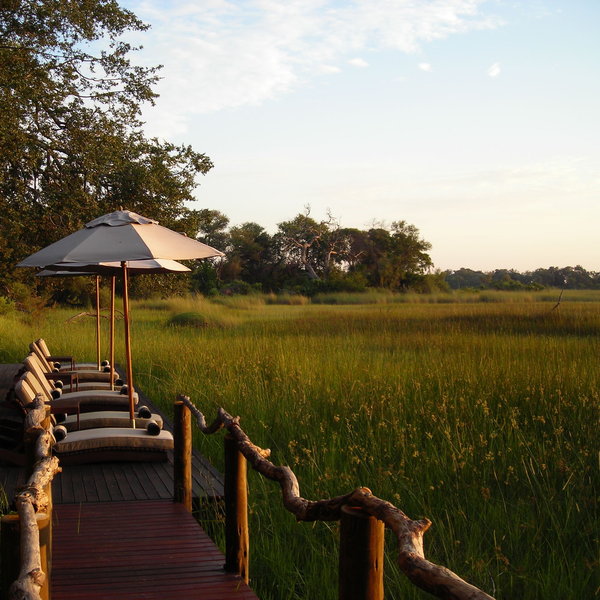
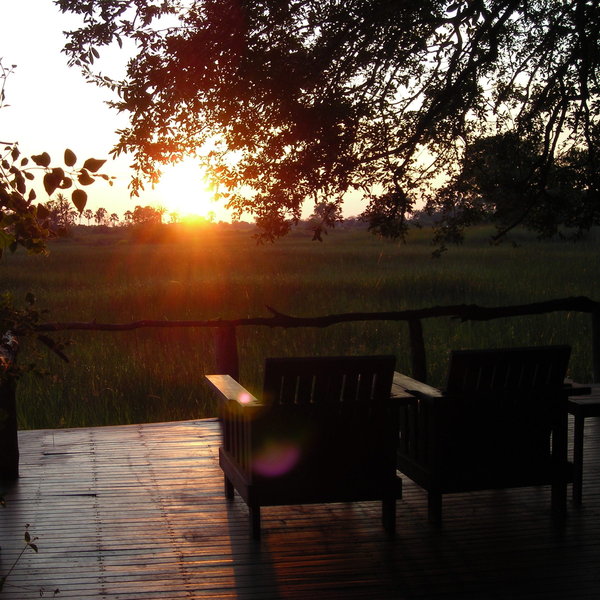
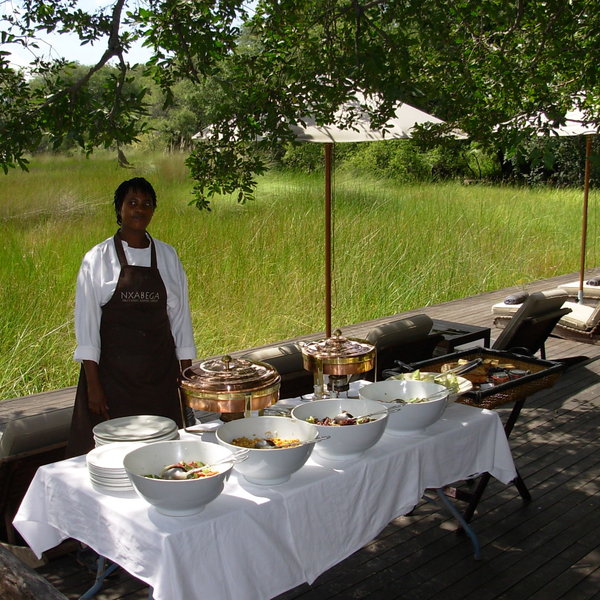
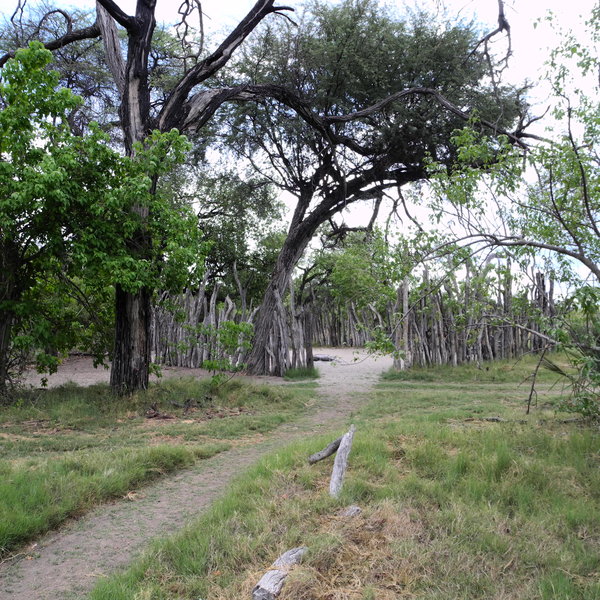
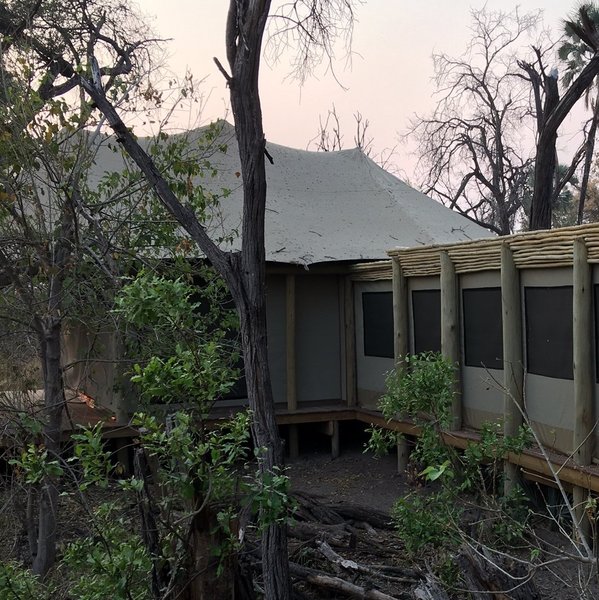
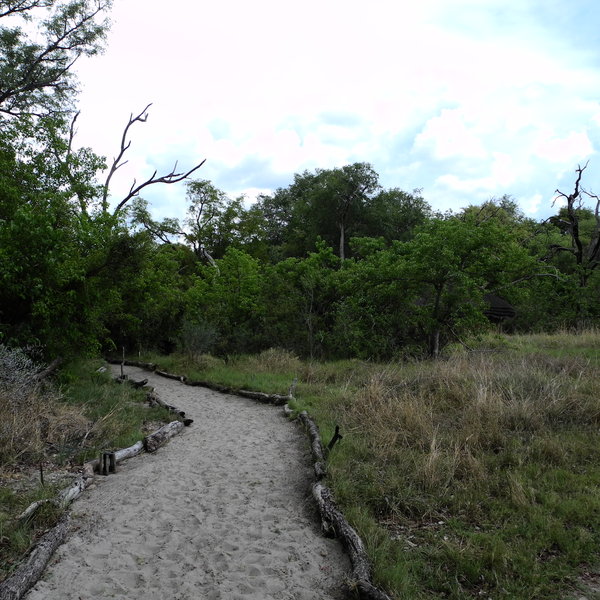
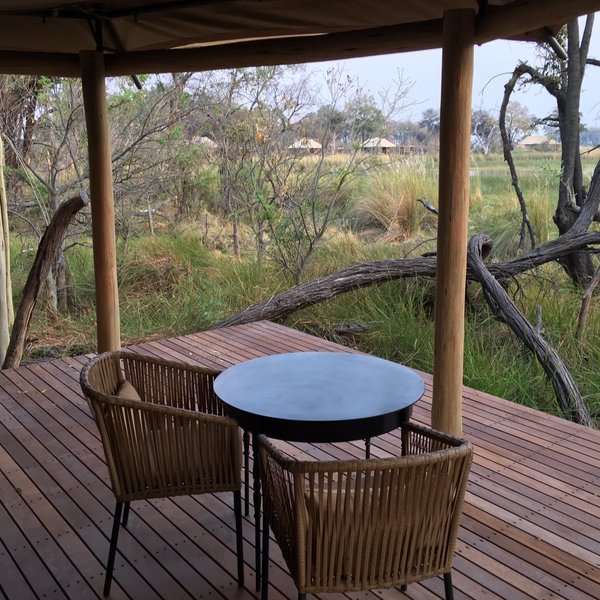
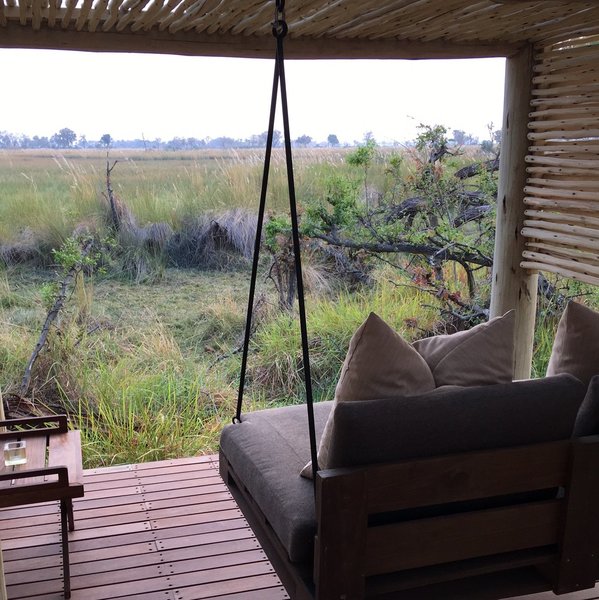
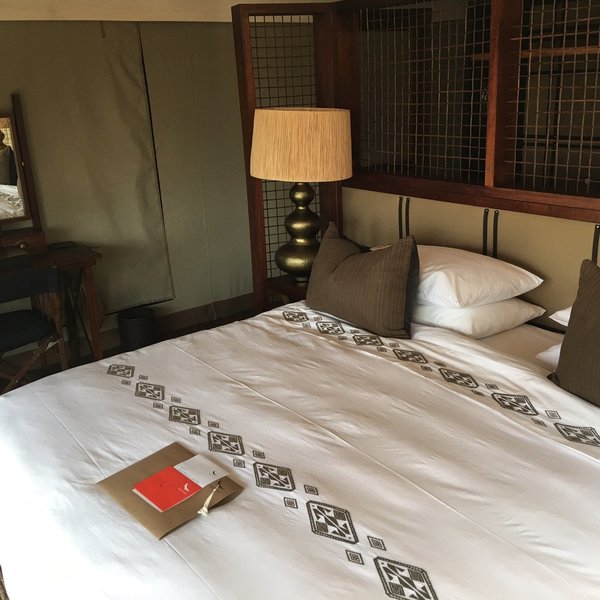
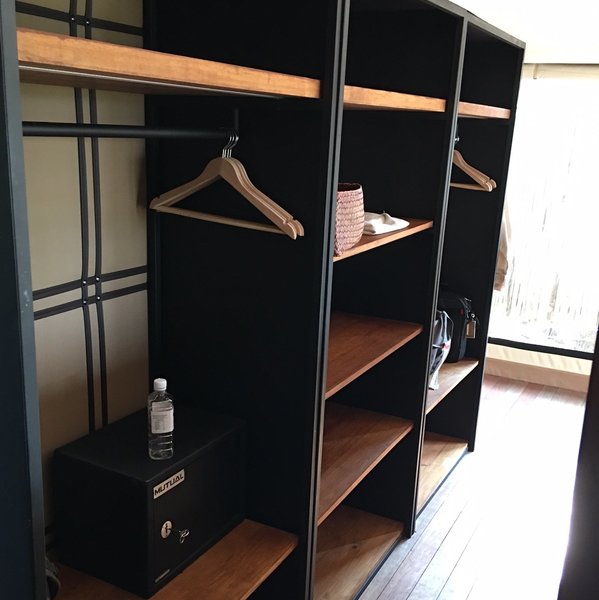
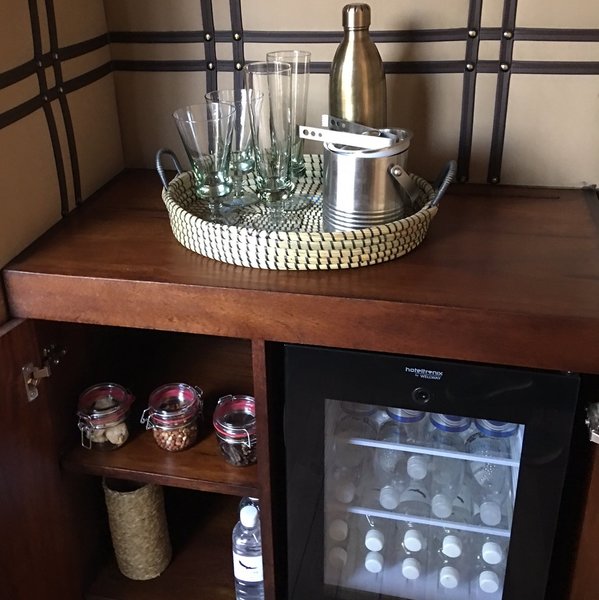
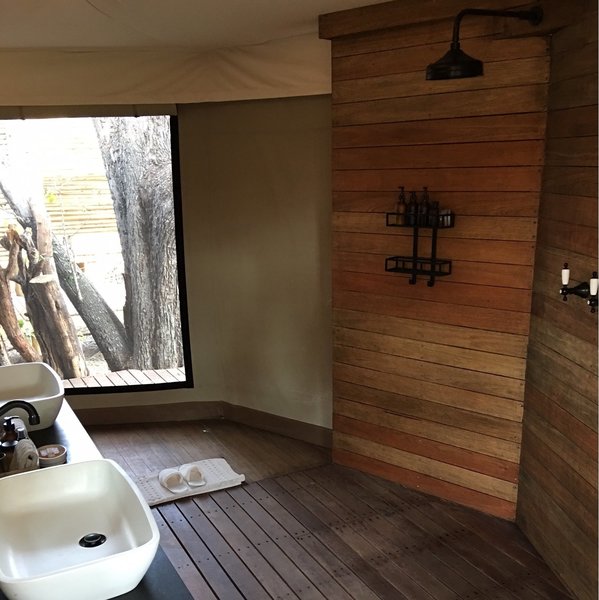
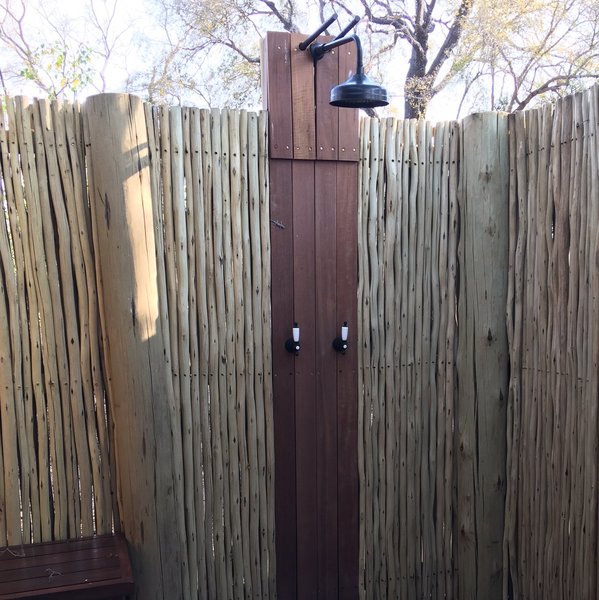
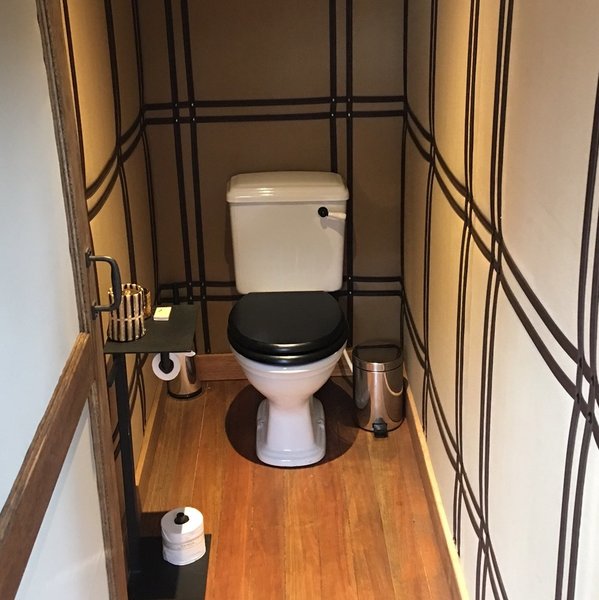
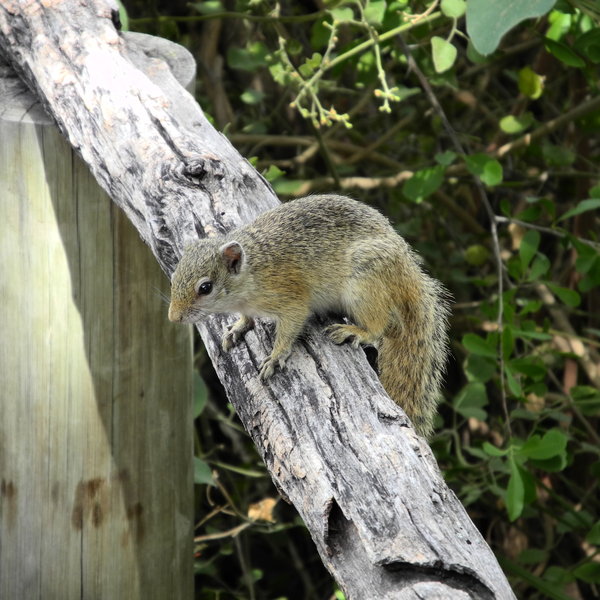
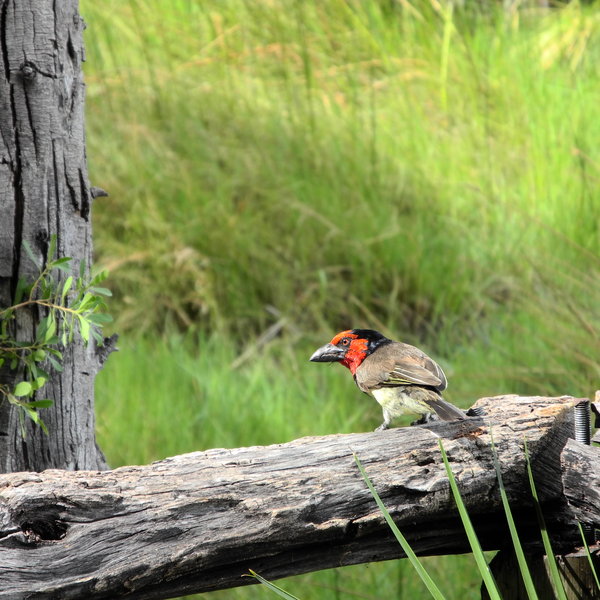
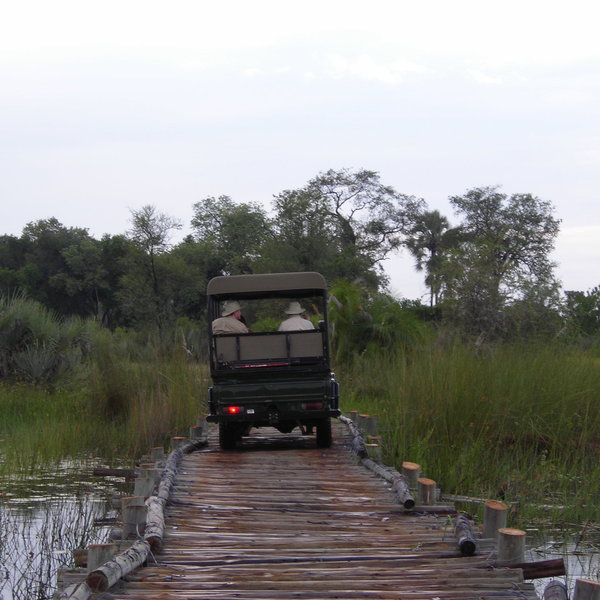
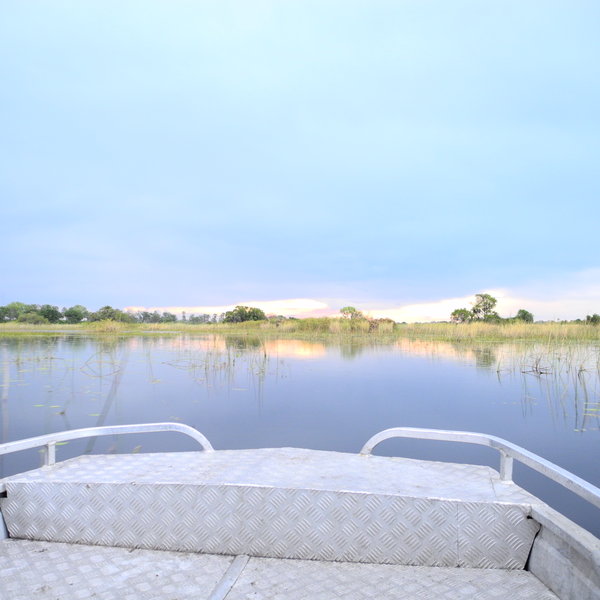
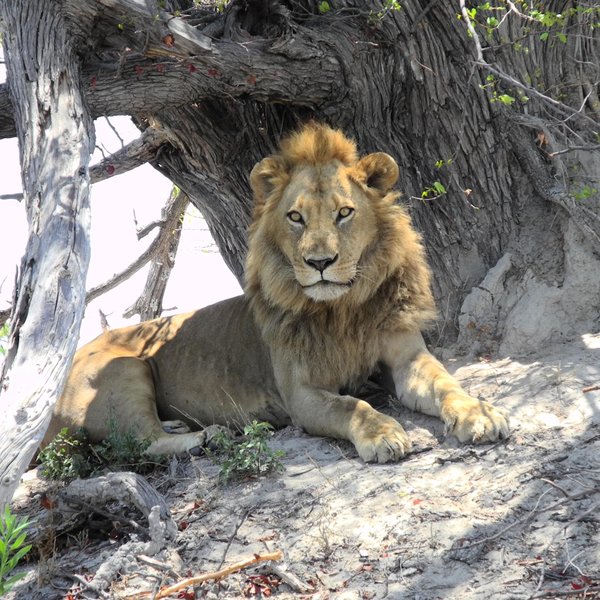
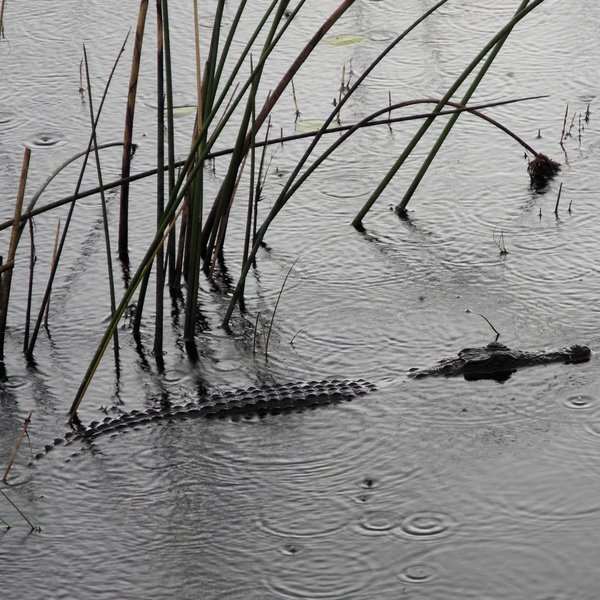
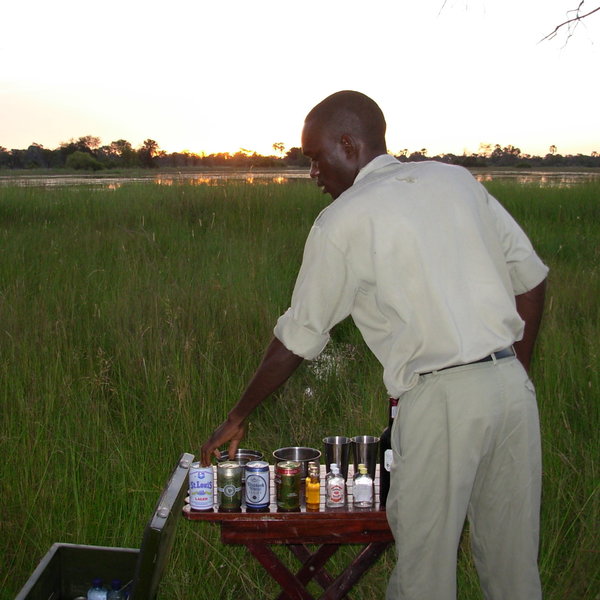
Expert Africa's gallery
When we travel we take lots of photos ourselves to give you a real and un-edited view of the safaris. See our 59 pictures and 1 videos of Nxabega Tented Camp to get the candid view.
View gallerySafaris visiting Nxabega Tented Camp
Just ideas, we'll always tailor-make a trip for you
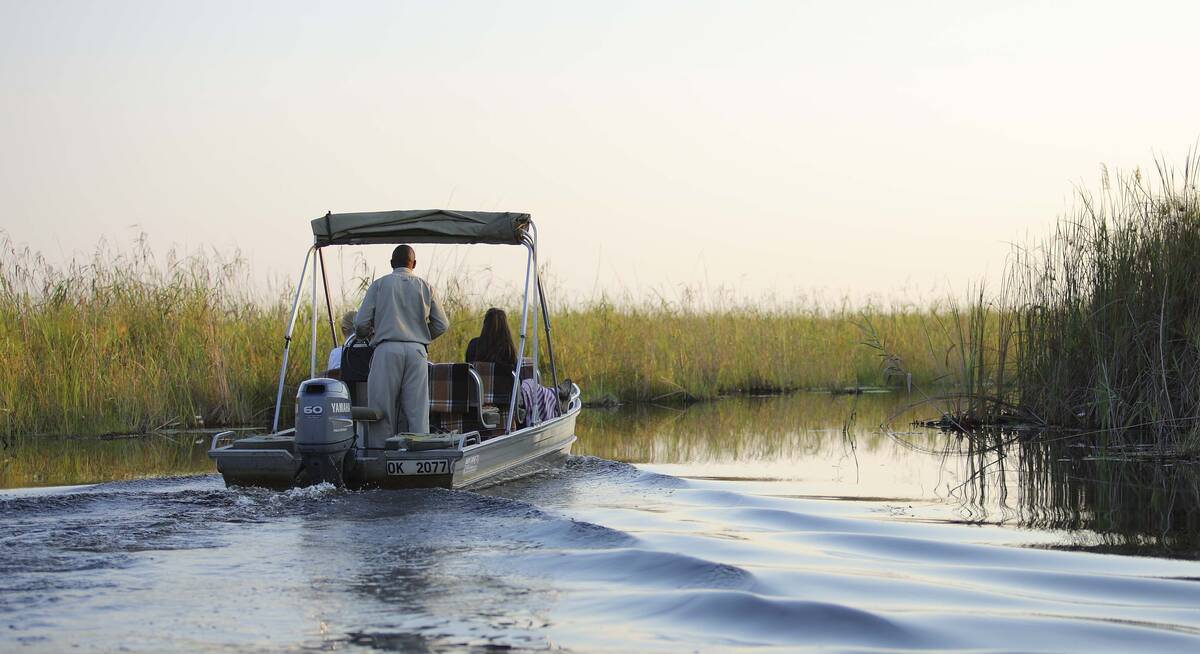
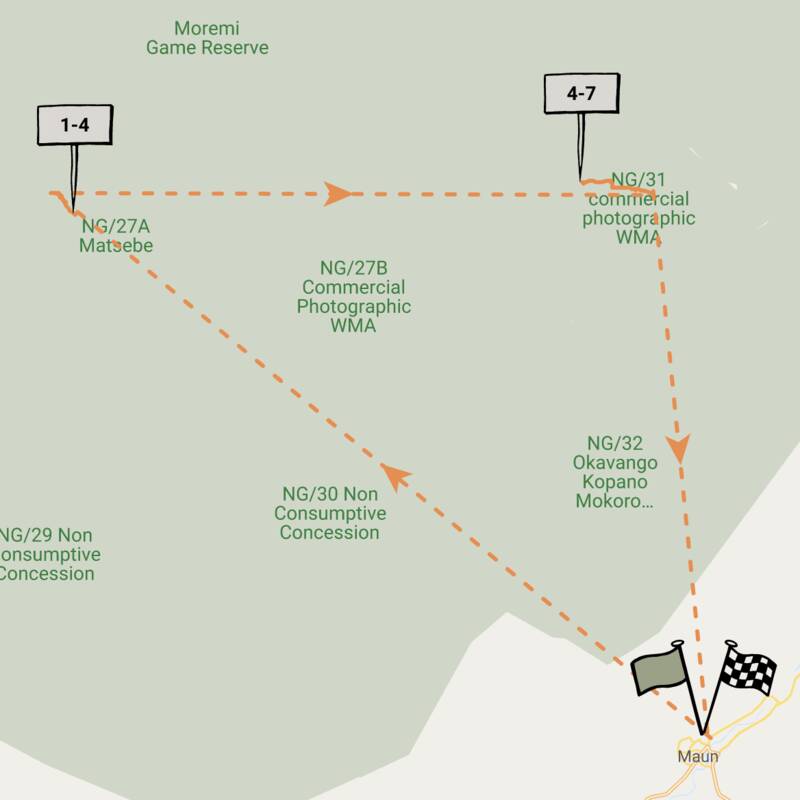
Kudu Safari
7 days • 2 locations • 1 country
MAUN AIRPORT TO MAUN AIRPORT
A luxury Botswana safari exploring the Okavango Delta staying at Nxebega Camp and the stunning Sandibe Lodge, with excellent guiding and some of the most prolific wildlife viewing anywhere in Africa.
Visiting Okavango Delta
US$8,760 - US$20,120 per person
Nxabega Okavango Tented Camp: Our full report
Nxabega Okavango Tented Camp sits within a 70km² private concession in Botswana's Okavango Delta.
To the west of Chief's Island, it is surrounded by a patchwork of mature woodlands and seasonally flooded grassland, interspersed with islands of real-fan palms, jackalberries, sausage trees and wild-fig trees. As a result it can offer both game drives and seasonal mokoro and boating activities. Formerly known as Nxabega Safari Camp, the camp's pedigree is good, and it aims for a very high standard of guiding, food, and comfort.
Nxabega is nestled on its own island under the shady canopy of tall jackalberry trees, overlooking a permanent floodplain. It's a varied and, in parts, very scenic spot, enhanced by the presence of ilala (real fan) palm trees.
Following a warm welcome on arrival, you’ll step onto a raised walkway, passing a well-stocked curio shop as you take in the views of the floodplain beyond.
The camp's nine tented chalets are connected to the main area by a straw pathway. All benefit from the evening breeze cooling system, but have a classic safari tented feel, with modern creature comforts and clever interior design. Each is accessed by wooden steps that lead up to a wooden door with a lockable latch.
Spotless canvas walls sit beneath a vaulted roof that extends over a substantial deck. Here you'll find a shady sitting area with two folding canvas chairs and a circular table. Beyond is a hanging daybed and a small folding table, shaded by a series of circular wooden poles whose waterproof covering is convenient in the rainy season. We enjoyed relaxing here on our last stay in January 2024.
Mesh screen doors lead inside each tented chalet, to reveal a large bed decked out with white linen topped with a bedspread embroidered with tribal designs and a pair of white cushions with a grey pattern. To each side of the attractive canvas headboard is an electric bronze reading lamp set on a wooden nightstand. You'll also find a wooden vanity desk topped with a large mirror, a three-speed pedestal fan, and a simple cushioned chair with a pedestal lamp, which provides pretty good lighting at night.
Separating the bedroom from the bathroom is a stylish canvas wall together with a three-section wooden wardrobe, which houses a large safe, a laundry bag, a shelf for luggage, and a basket with mosquito repellent, bug spray, and emergency foghorn. A small minibar is stocked with bottled water and local beer, and they also provide an ice bucket, spirits and tall glasses, along with a selection of homemade nougat, biltong and cookies.
The bathroom is completely open in design with a rainshower cascading onto wooden boards, two white ceramic sinks and two silver canisters of water. More stylish canvas panels enclose the flush toilet. A zipped door leads out to a wooden deck with an outdoor rainshower, surrounded by a thatched wall for privacy. Toiletries and fabric slippers are supplied.
For families, Nxabega also has a two-bedroom unit, its two identical chalets connected by a covered canvas walkway.
Nxabega’s main area is characterised by teak floors, locally crafted fittings, wildlife memorabilia and African artefacts. Relaxing couches, large cushions, a library and board games define the two lounges, where fireplaces lit on cold nights add ambience as well as warmth.
The larger of the two lounges connects to an interactive food and coffee bar, where staff are on hand to serve you, and a large dining area, where one long communal table or individual tables can be set up either indoors or outdoors.
Raised decking links Nxabega's main area to a large plunge pool and pool deck, screened by natural timbers. There are plenty of sunloungers and cushioned chairs, positioned overlooking the floodplain, but it's the attention to detail which we think is a forte: you'll even find a cooler box filled with chilled drinks, which the staff will gladly arrange to include your favourites on request. Close to the pool there is also a dedicated massage sala, with a resident masseuse.
The Nxabega concession offers a mixture of land- and water-based activities: guests can explore the Okavango Delta by 4WD game-drive vehicle, and – in season – by motorboat or mokoro, and it's also possible to explore on foot (although this should be requested in advance wherever possible). All activities are accompanied by a fully trained and licensed guide and a tracker.
Boat trips at Nxabega are very flexibly organised. On a previous visit we enjoyed a short morning cruise and even tried our hand at fishing (though fishing is not allowed in January and February, the breeding season). Our guide and tracker kept us entertained and informed, even convincing us to try some of the roots that they grew up eating. Full-day boat excursions are also an option. Typically, these will leave the boat station in the early morning, stopping at various points along the way before lunch is served on one of the islands.
Historically we've noted that the dry-season game viewing at Nxabega can be unreliable. Some travellers have great game experiences here; others have been disappointed. We've concluded that during the “green” or wet season, from about December to April, Nxabega (and the other concessions on the west side of Chief's island) can actually be better for game than Okavango reserves that are further east or north. However, during the more classic dry season months, from about May to October, the drier reserves to the north and east of Chief's Island, and the Kwando–Linyanti Reserves, tend to have better game viewing than on the Nxabega Concession.
On our last three visits to Nxabega, (January 2024, September 2016 and November 2015) this rang true. While the concession was not dense with game on the January visit, we did have some wonderful highlights, including a brief wild dog sighting when they hunted tsessebe. Our highlight was a newly identified hyena den, where six pups of various ages let their inquisitive nature get the better of them, creating some humorous moments. Judging by Nxabega's guestbook, leopard sightings are regular too, but with water levels in the Delta in a constant state of flux, we have seen some shifts in patterns over the last couple of years, with giraffe in particular being seen less frequently in the area.
Staff – and particularly the guides – at both Nxabega and its sister camp in the Okavango, Sandibe Safari Lodge, are very well trained, and the quality of guiding we have experienced here has always been good,Expert Africa team members have consistently returned from activities having learned and seen more than they'd expected – and have felt more engaged by the guides here than in other reserves where the density of game is usually thought to be higher.
Geographics
- Location
- Okavango Delta Safari Reserves, Botswana
- Ideal length of stay
- Three nights at Nxabega is ideal. Note that there are often some great special deals to be had when Nxabega is booked in combination with one of its sister camps: Sandibe Safari Lodge, Chobe Under Canvas, or the seasonal Savute Under Canvas.
- Directions
- Nxabega Airstrip is just 15 minutes’ drive from the camp. Maun to Nxabega is a 20-minute flight while Kasane to Nxabega is a 50-minute flight. Both flight routes can involve up to four stops along the way.
- Accessible by
- Fly-and-Transfer
Food & drink
- Usual board basis
- Full Board & Activities
- Food quality
- Great care is taken with the menu and the presentation of meals at Nxabega, and the food is generally excellent. A range of dietary requirements can be accommodated, on request.
An early breakfast is served before the morning activity. This usually includes the option of cereals, fresh fruit, juice, bread and muffins with tea and coffee. On our most recent stay, in January 2024, we enjoyed a tasty portion of eggs Benedict with crispy bacon before we departed on our flight home.
Brunch, typically an assortment of salads and a hot dish, is usually eaten at individual tables on your return from the morning activity. We enjoyed a freshly baked flatbread and avocado dip, Moroccan tomato braised chicken, caponata, fresh salad and tabbouleh, all presented at our table, amounting to an individual buffet! On our day of departure Nxabega made us a simple packed lunch of wraps, biltong, fruit and nuts.
Afternoon tea, served between 3.30pm and 4.00pm, normally consists of a light savoury snack and some form of cake. We most recently had a light spicy beetroot and lentil aperitif, chocolate and toffee scones and a small fruit salad with iced coffee. Hot drinks, iced teas and fruit juice were also on offer.
The dinner menu is usually announced by the chef as everyone gathers for pre-dinner drinks – just in case there are any last-minute changes or requests to be noted. We selected the Botswana beef fillet with a side of buttered carrots, beans and mashed potato, which was delicately presented. Dessert was Amarula ice-cream and passion-fruit sorbet. On other visits our team has enjoyed a traditional local meal at individual tables in the camp's sand boma with open firepit. This consisted of pounded beef (seswaa), grilled chicken legs and thighs, and sides of creamed spinach and rice, with a sinfully rich chocolate cake for dessert. During traditional dinners in the boma, the staff sets up a “hanging bar”, which is a large piece of flat wood hanging by chains above a tree. We thought that it provided a fun little touch.
The &Beyond team are very good at creating little surprises and wow moments. Without spoiling any future surprises to our guests, we wanted to just say that we loved the extra efforts made by the team! - Dining style
- Individual Tables
- Dining locations
- Indoor and Outdoor Dining
- Further dining info, including room service
- Generally, there is no room service at Nxabega, although by special arrangement meals may sometimes be taken in your tented chalet at standard mealtimes. Drinks may be brought to the chalets on request and placed in the small coolbox there. Note, however, that the rooms do not have telephones so you need to go to the main area to make these arrangements.
- Drinks included
- Bottled water, soft drinks, local beers and spirits and a limited selection of (usually) South African red and white wines are included. Champagne and imported wines and spirits cost extra and may need to be requested in advance.
Bottled water is supplied to all chalets, along with filtered water for brushing teeth.
Special interests
- Family safaris
- Children are welcome at Nxabega, whose staff are flexible and go out of their way to make your family safari in Botswana enjoyable. Children of six and over are accommodated on game drives at the lodge manager's discretion without the need for a private vehicle.
- See ideas for Family safaris in Botswana
- Solo safaris
- There is quite an individual focus at the &Beyond camps, including Nxabega, and they usually have a relaxed approach to activities – including 4WD safaris, bush walks and motorboat trips – ideal for sharing the amazing wildlife with like-minded solo travellers in Botswana.
- See ideas for Solo safaris in Botswana
- Honeymoons
- Set in a lush part of the Okavango Delta, Nxabega is a luxurious camp and a great choice for a Botswana honeymoon. The staff often go out of their way to include special touches and are particularly good at setting up meals in unique and inventive places.
- See ideas for Honeymoons in Botswana
- Wellbeing
- For a bit of pampering in Botswana, Nxabega Okavango Tented Camp offers a range of massage options. These can be requested and paid for whilst at the camp and may be done either in the massage sala or in the privacy of your tented chalet.
- See ideas for Wellbeing in Botswana
Children
- Attitude towards children
- Children are welcome at Nxabega.
- Property’s age restrictions
- Children under five years of age are not allowed to join the usual activities. Children aged 6–11 years are accommodated on game drives at the lodge manager's discretion. Children aged 12 and above may take part in game drives, but only children of 16 years and older may participate in guided walks and mokoro activities.
- Special activities & services
- &Beyond's WILDChild programme is filled with fun and interactive activities for young children that may involve tracking, fishing, making traditional bows and arrows, beading, crafting and painting and more. Meals tailored for children are available on request.
- Equipment
- An extra bed can be arranged for a child sharing with his or her parents, although this could make the chalet feel a little cramped. Note that no more than one triple can be accommodated in camp at any one time.
A childminding service is available at extra cost. This money is given directly to the babysitter, who is an ordinary member of the camp's staff and not a trained childminder. - Generally recommended for children
- We think that the camp’s flexible attitude and their willingness to go the extra mile makes this a reasonably suitable camp for children over the age of six years. Parents must, however, consider that the camp is unfenced, wildlife regularly wanders through camp and there is no fence around the pool.
- Notes
- The tents are all raised off the ground on decks with no railings. Children need to be closely supervised by their parents or carers at all times.
Our travellers’ wildlife sightings from Nxabega Tented Camp
Since mid-2018, many of our travellers who stayed at Nxabega Okavango Tented Camp have kindly recorded their wildlife sightings and shared them with us. The results are below. Click an animal to see more, and here to see more on our methodology.

100% success

100% success

100% success

100% success

100% success

100% success

83% success

83% success

83% success

83% success

80% success

33% success

20% success

0% success

0% success

0% success

0% success

0% success
Communications
- Power supply notes
- The camp runs on solar power, but during extended cloudy periods a generator offers a back-up charge to the battery banks.
- Communications
- Nxabega has WiFi in the rooms only; there is no cellphone reception. The camp office has radio communications with Maun, and between guides on the activities.
- TV & radio
- There is no TV or radio at Nxabega.
- Water supply
- Borehole
Health & safety
- Malarial protection recommended
- Yes
- Medical care
- All the guides and managers are first-aid trained and a first-aid kit is kept at the camp. A light-aircraft flight to Maun hospital is possible during daylight hours only, as the bush airstrips do not have any lighting at night. In the event of an emergency, medical evacuation, including after dark, is possible by helicopter.
- Dangerous animals
- High Risk
- Security measures
- Security guards escort guests to and from their chalets after dark. Each chalet contains an airhorn which guests can activate to attract attention in the event of an emergency.
- Fire safety
- There are fire extinguishers in the communal areas and outside every chalet, including notes on what to do in case of fire.
Activities
4WD Safari
Birdwatching
Boat trip
Fishing
Guided walking safari
Helicopter
Mokoro
Night drive
Private activities
Extras
- Disabled access
- On Request
- Laundry facilities
- A full laundry service is included. The camp will be flexible where possible, although collections are usually at 8.00am and returned the same day, weather permitting.
- Money
- There is a small safe in every tented chalet at Nxabega. No exchange facilities are offered. Payment may be made in cash (euro, US dollars, South African rand, Botswana pula and UK sterling), or with Visa or Mastercard. Envelopes are provided in the chalets for tips (at your discretion) for both guides and trackers, and for the rest of the staff. These can be given direct or through the management. Tips may also be made by credit card and distributed as requested by the guest.
Plan and book your trip with Expert Africa
All of our trips are tailor-made, so we'll always adapt them to suit you. Talk to an Expert and let us plan and arrange your perfect trip.

Talk to an Expert
Call or email us now! We’ll match you with the Specialist in our team who is best suited to help you. Then together we can start planning your trip.

Set up your itinerary
Based on our experience and your ideas, your specialist will create a detailed, costed itinerary. We’ll refine it together, until we have a trip that you’re perfectly happy with.

Prepare for your trip
The same Specialist will make the seamless arrangements for your trip, send you detailed travel documents, and be available to answer any questions before you depart.

Travel with peace of mind
After you set off, you’ll be cared for by our partners in Africa, most of whom have worked with Expert Africa for decades. And if you ever need us urgently, we’re available 24/7.

When you return
We love to learn about your trip, and so will always be grateful if you’ve the time to give feedback to your Specialist when you return.
Nxabega Okavango Tented Camp's location
Look closer at the environment and surroundings of Nxabega Tented Camp.
Excursions from Nxabega Tented Camp
Optional extra day-trips and excursions possible whilst you're staying at Nxabega Tented Camp. Talk to us: these are usually best arranged before you go.
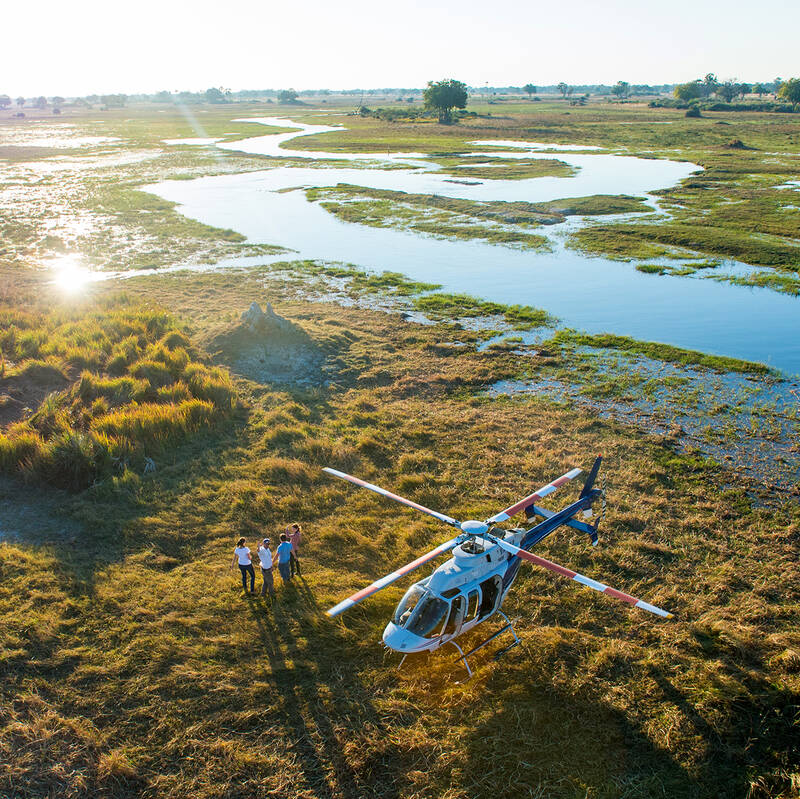
Helicopter Flight - Botswana
Various: from 30 minutes to half a day.
Low-flying, agile and offering superb views, helicopters are an ideal way to move around the Okavango Delta.You can use them instead of fixed-wing inter-lodge transfers or as an addition to other wildlife watching activities, and of course, helicopters can hover to allow that perfect pic, whereas fixed-wings can’t.
More about Helicopter FlightOther lodges in Okavango Delta Safari Reserves
Alternative places to stay in this same area.
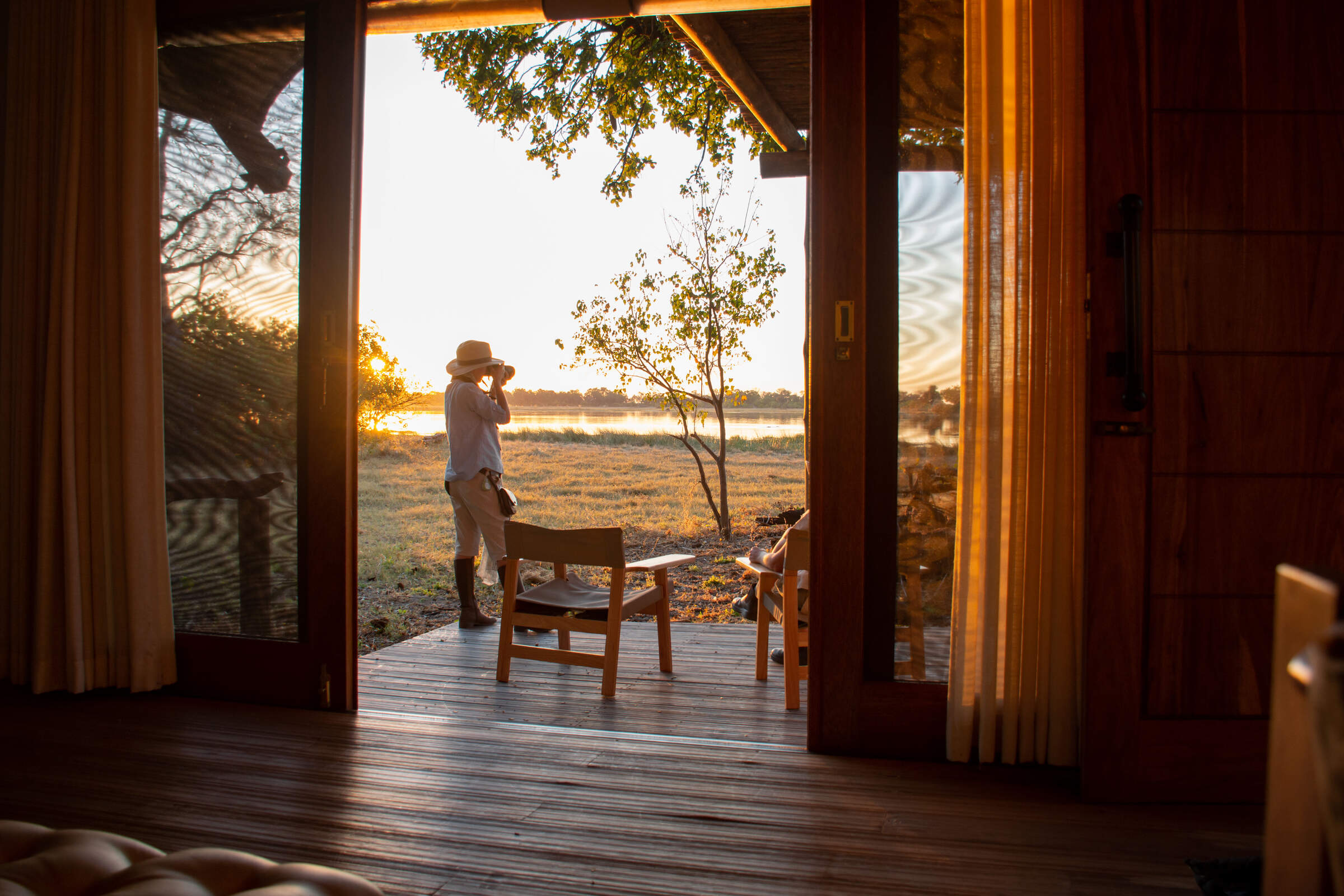
Kwara Camp
Kwara Camp's private reserve boasts land and water activities year-round, with excellent game-viewing opportunities and access to permanent channels of the north-east Okavango Delta.
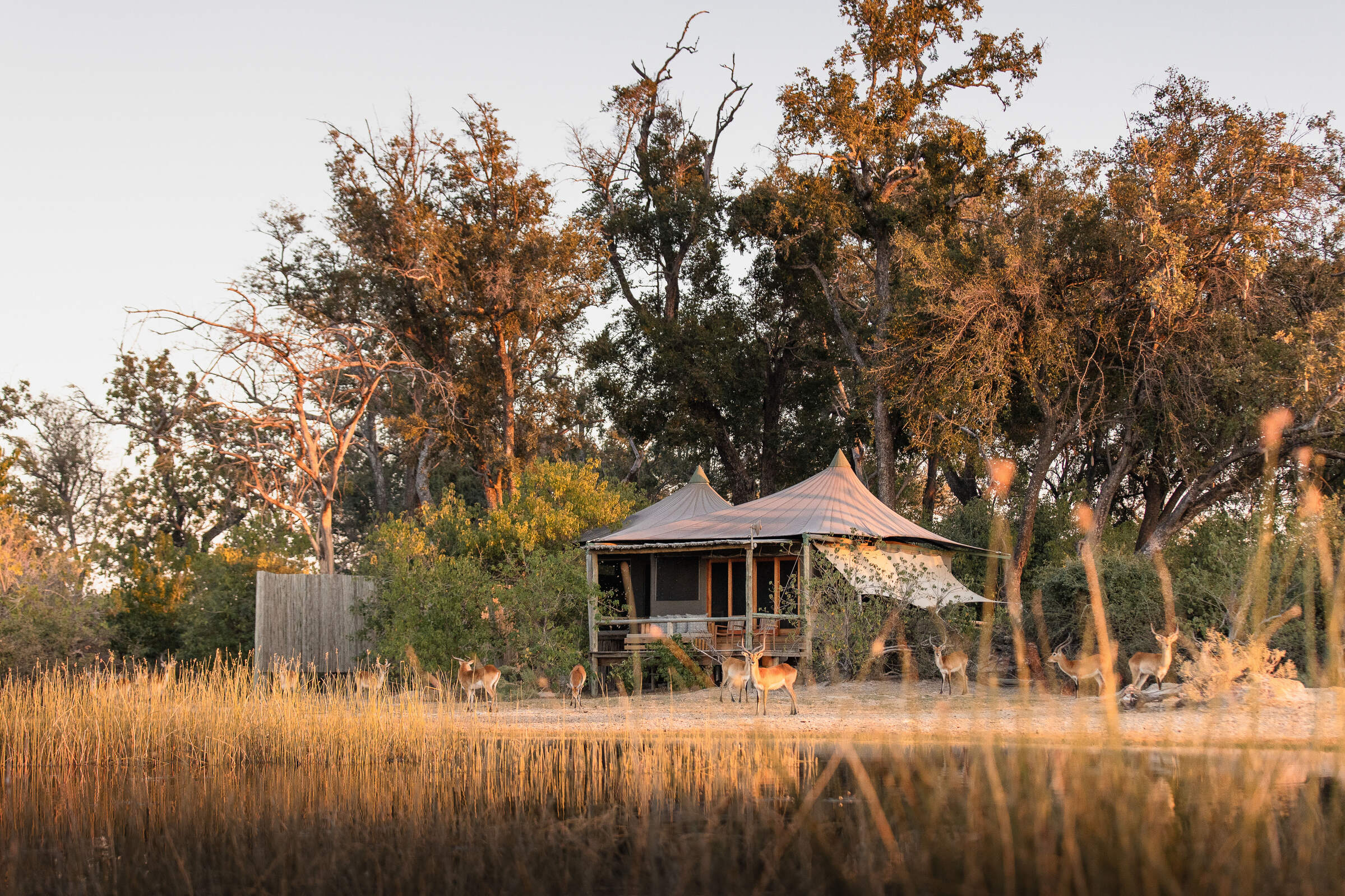
Little Vumbura
On a secluded island within a private reserve, Little Vumbura combines superb game viewing with a broad diversity of habitats in a truly picturesque setting.
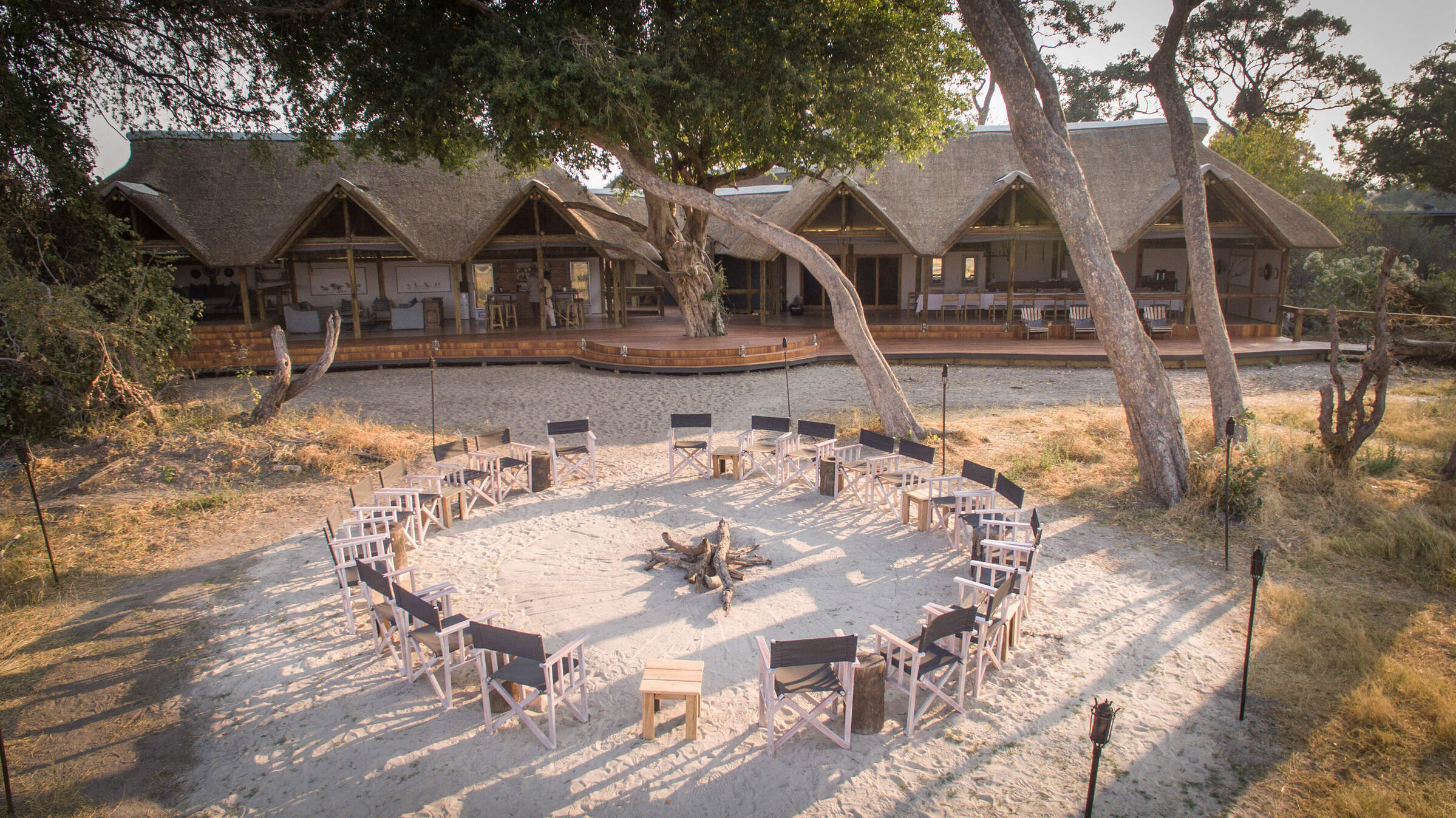
Splash Camp
Set in the Kwara Reserve, offering superb wildlife viewing year-round, Splash offers both land and water activities led by guides with a particular knack for tracking big game.
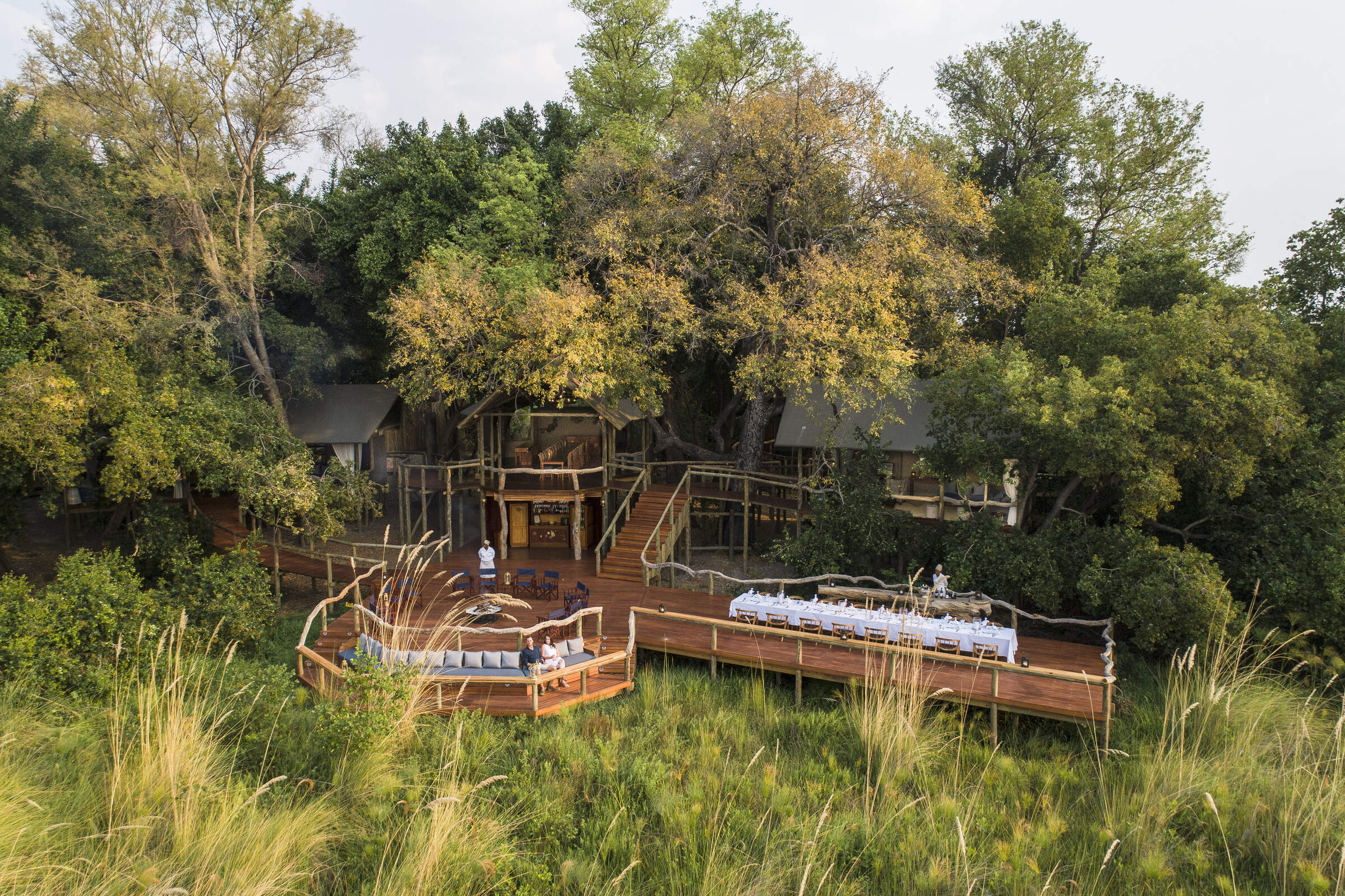
Shinde Camp
With experienced staff and a wealth of activities, Shinde offers a traditional safari in an exceptionally varied and wildlife-rich environment.
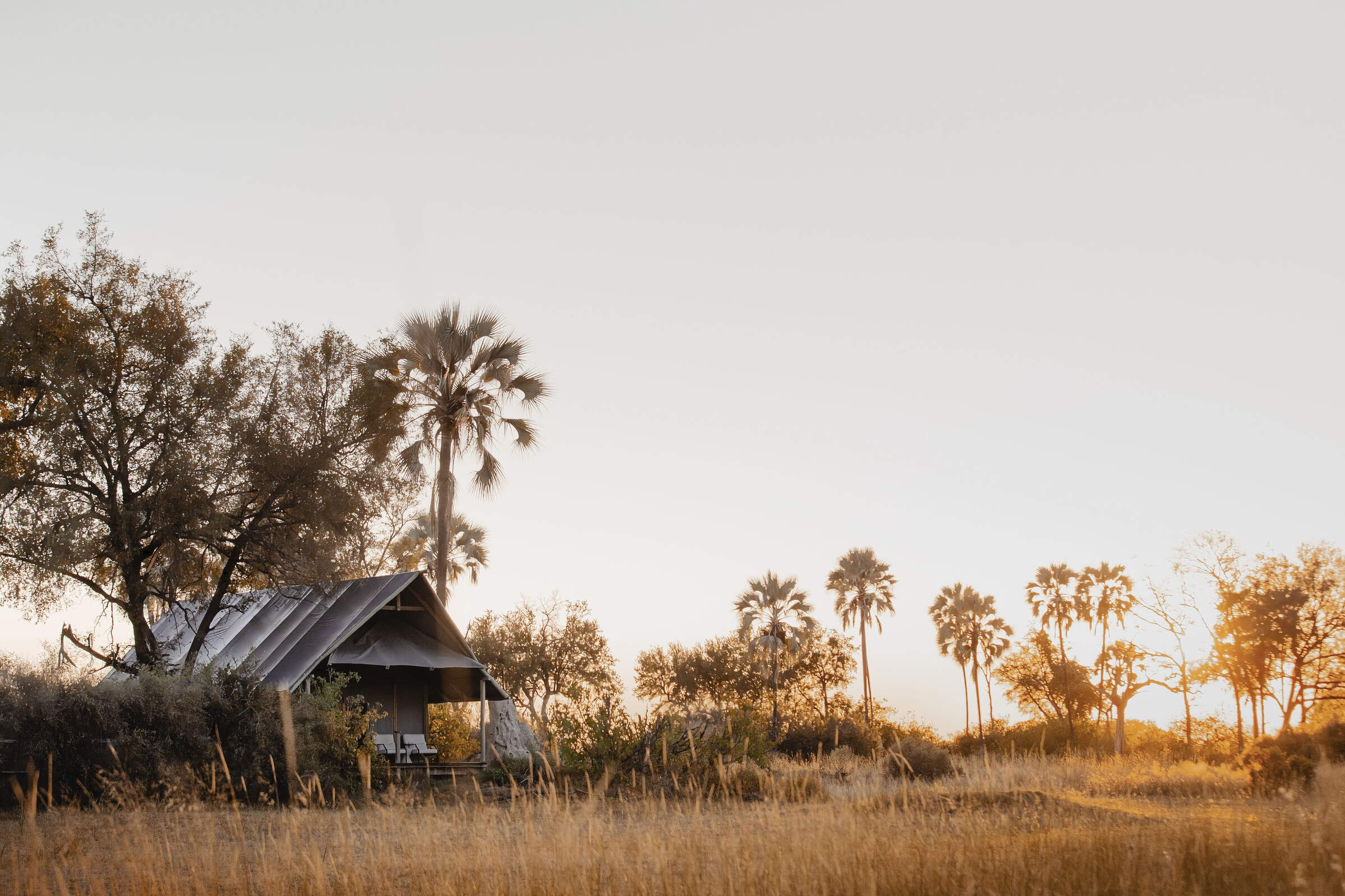
Chitabe Lediba
Chitabe Lediba, in Botswana's southern Okavango Delta, is a small family friendly safari camp; it offers great dry-land safaris and in our experience consistently delivers good game sightings.
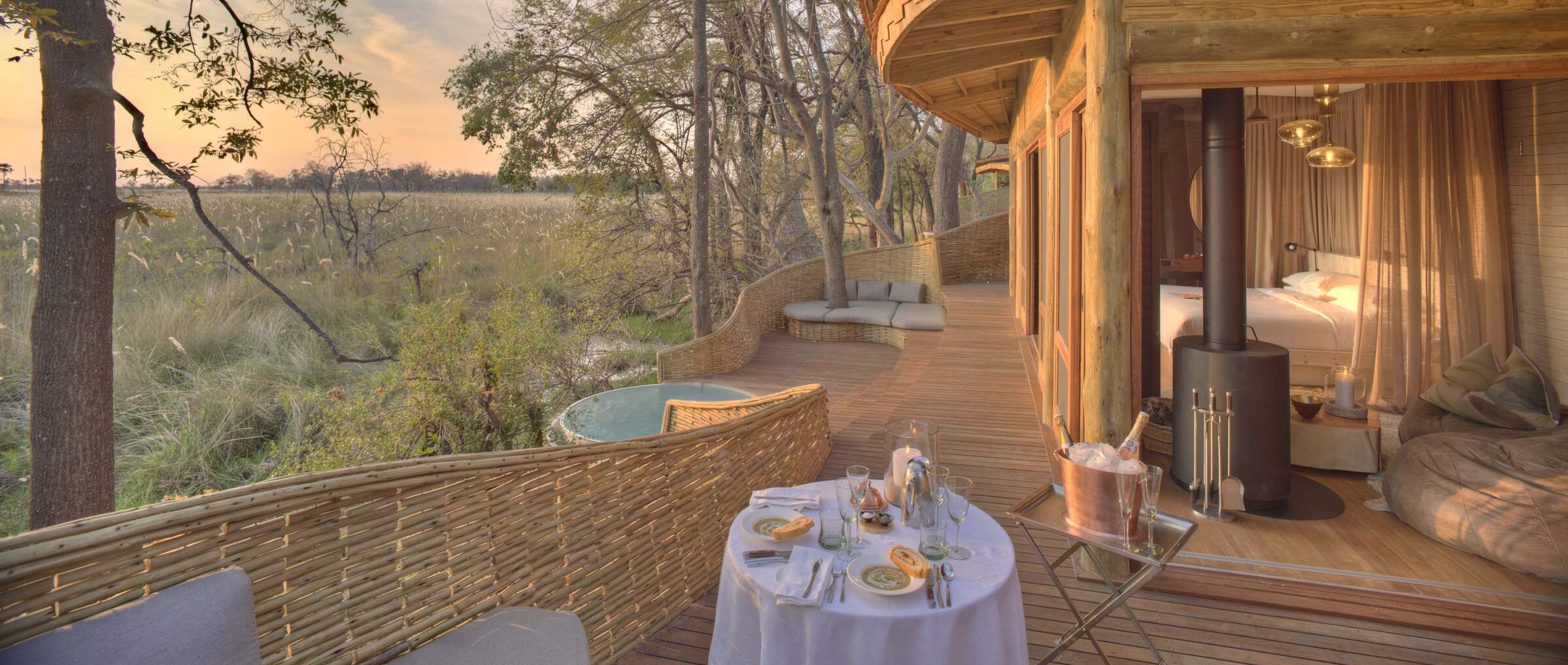
Sandibe Safari Lodge
The luxurious Sandibe Okavango Safari Lodge lies in a private concession in the heart of the Okavango Delta, beside Moremi Game Reserve, with superb big-game viewing.
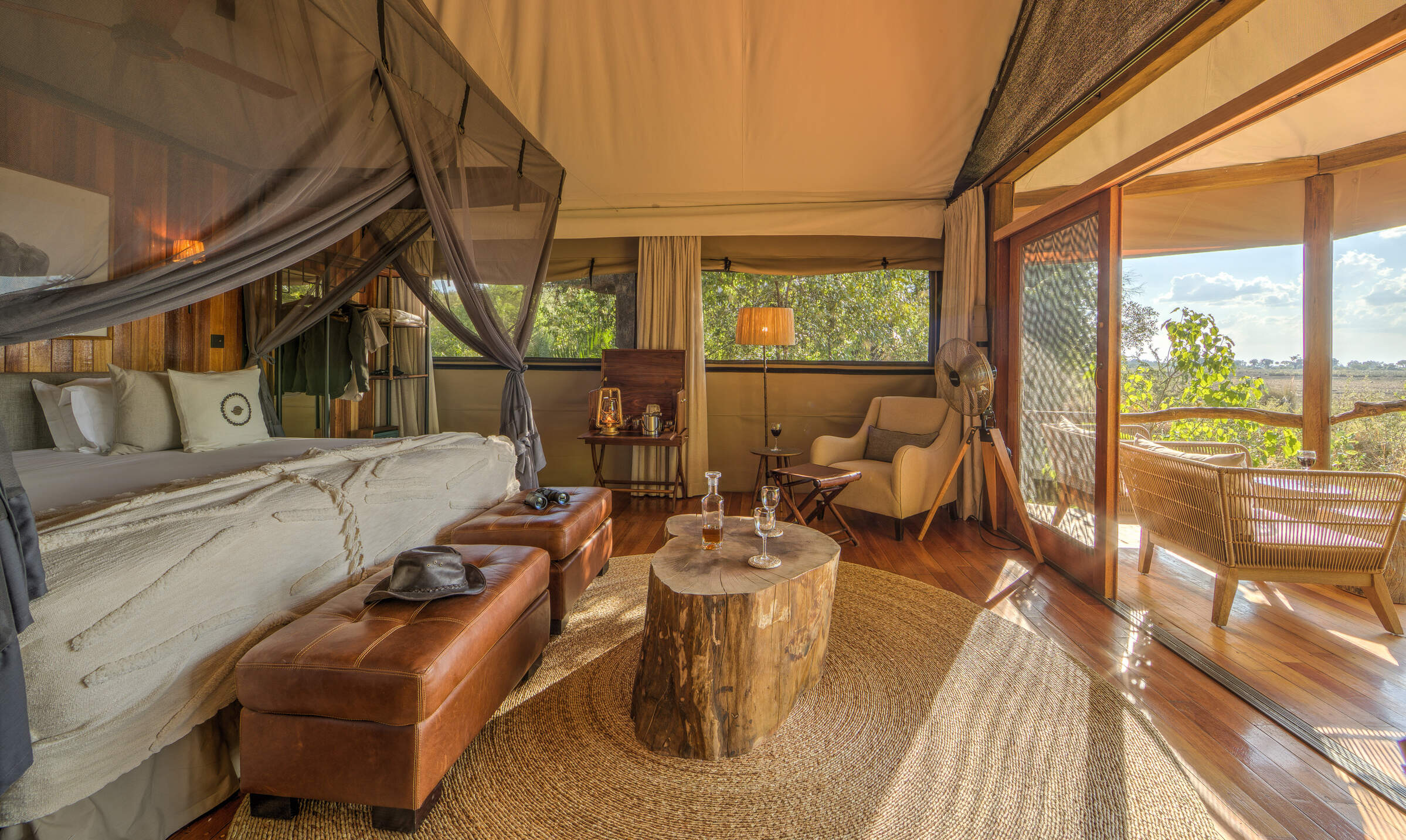
Kanana
In a beautiful part of the Delta, Kanana focuses on fantastic water activities and birding – including exclusive access to an impressive heronry.
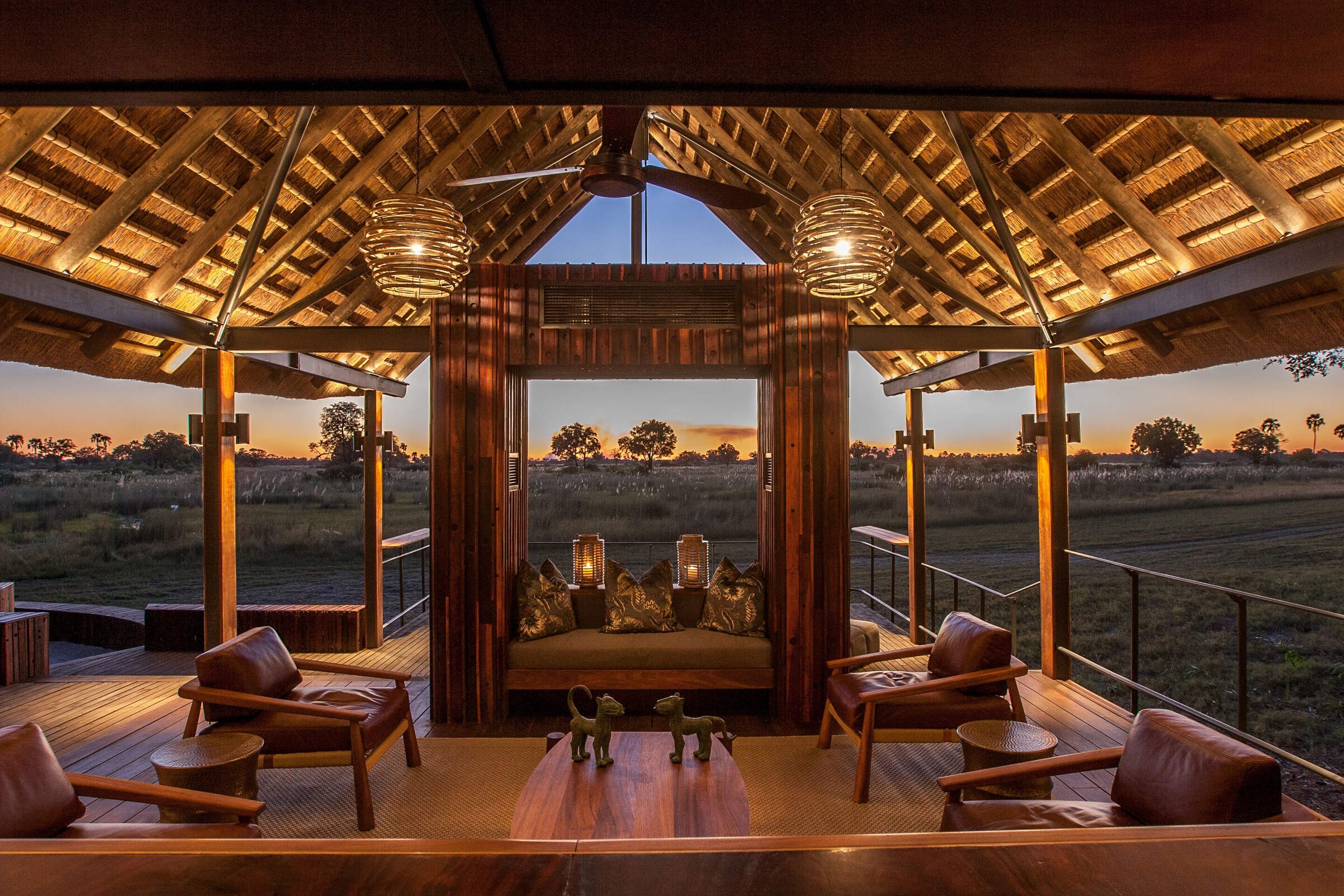
Chitabe Camp
In the southern Okavango Delta, the excellent Chitabe Camp concentrates on dry-land safaris in an area that we've found particularly good for wild dog sightings.
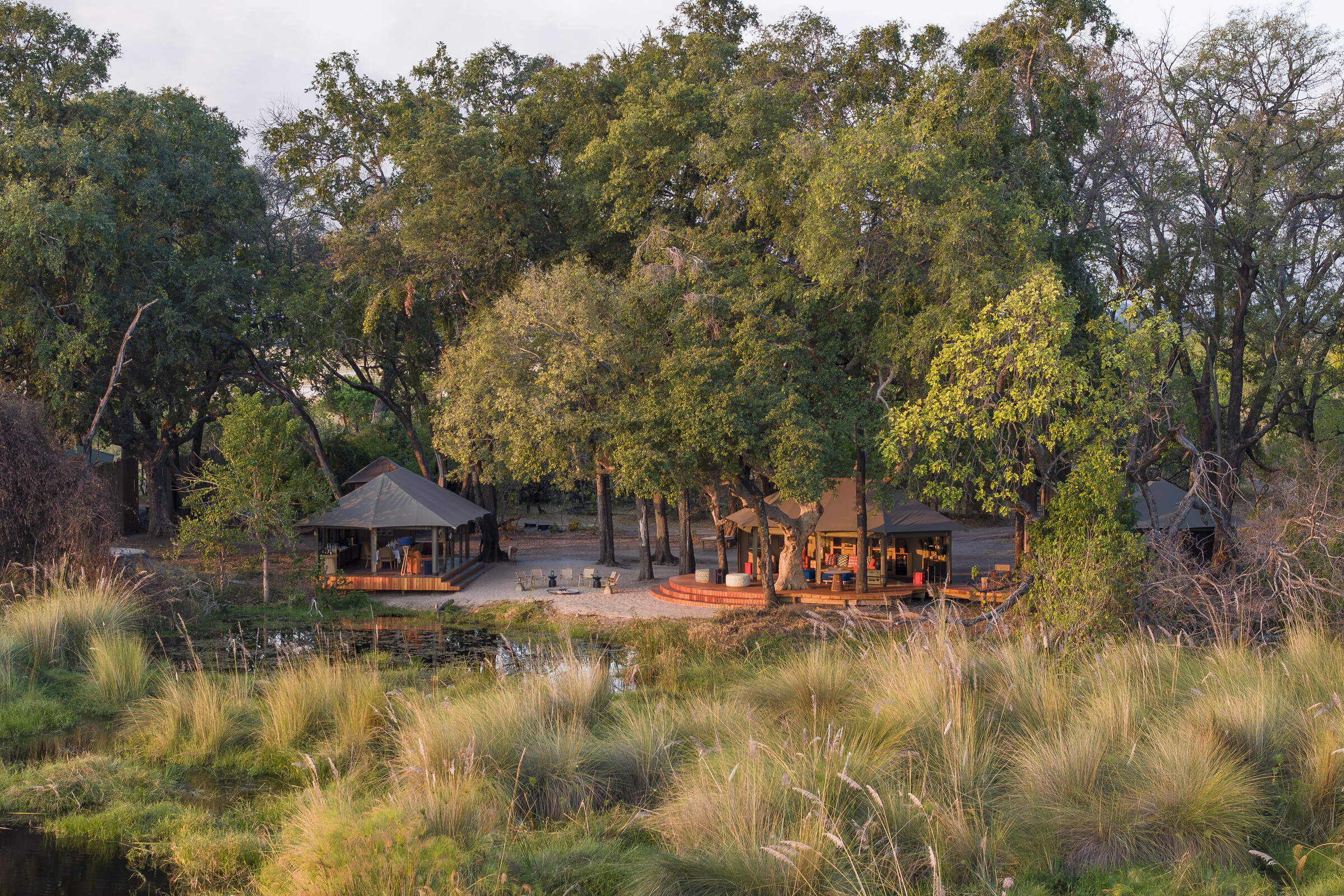
Shinde Footsteps
Small and simple, but comfortable, Shinde Footsteps focuses on walking safaris as well as game drives; it also runs a special children's programme so is particularly suitable for families.
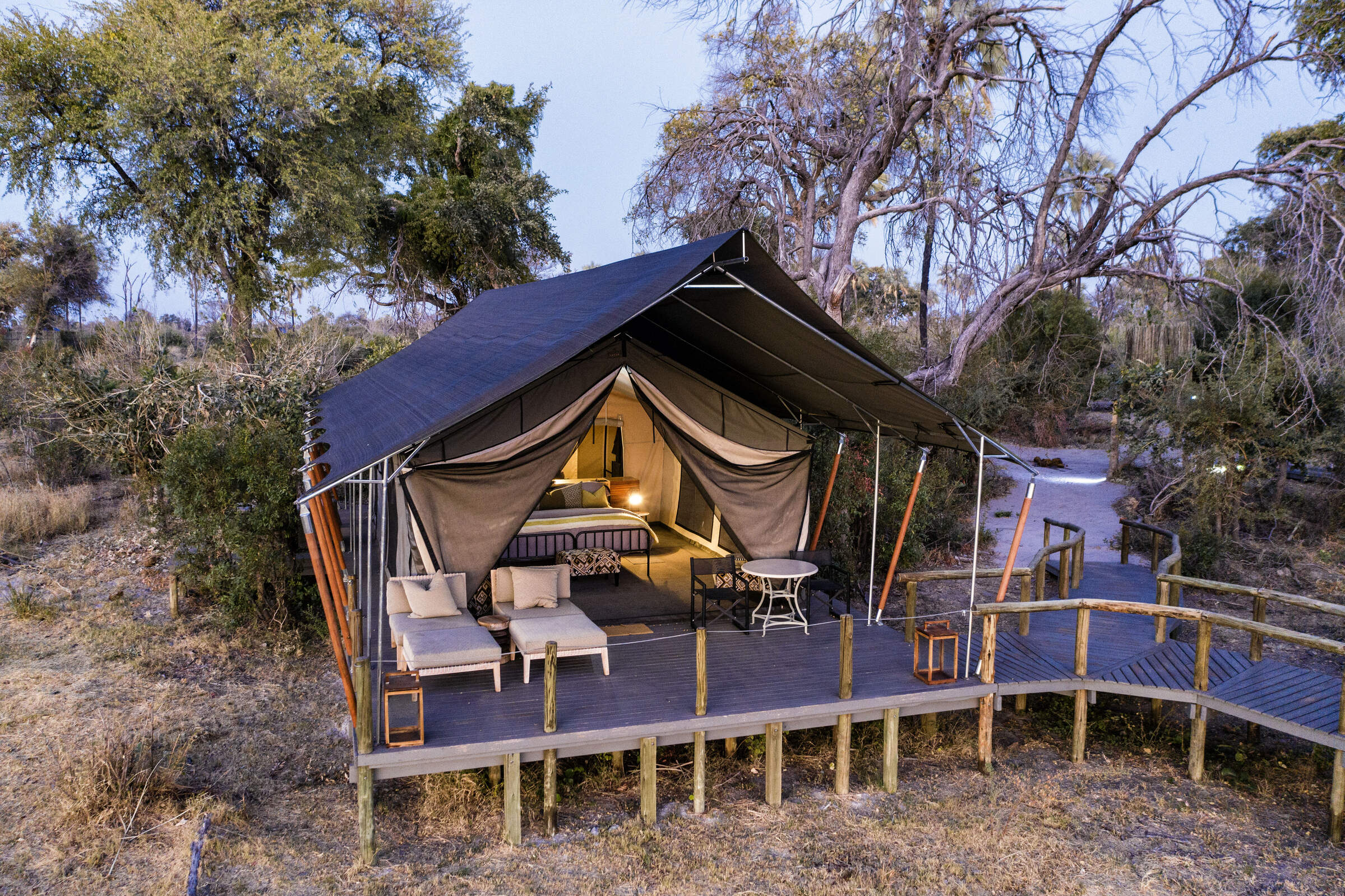
Gomoti Plains
Overlooking a tributary of the Gomoti River, Gomoti Plains Camp is a classically designed camp with very comfortable tents in a good game-viewing area.
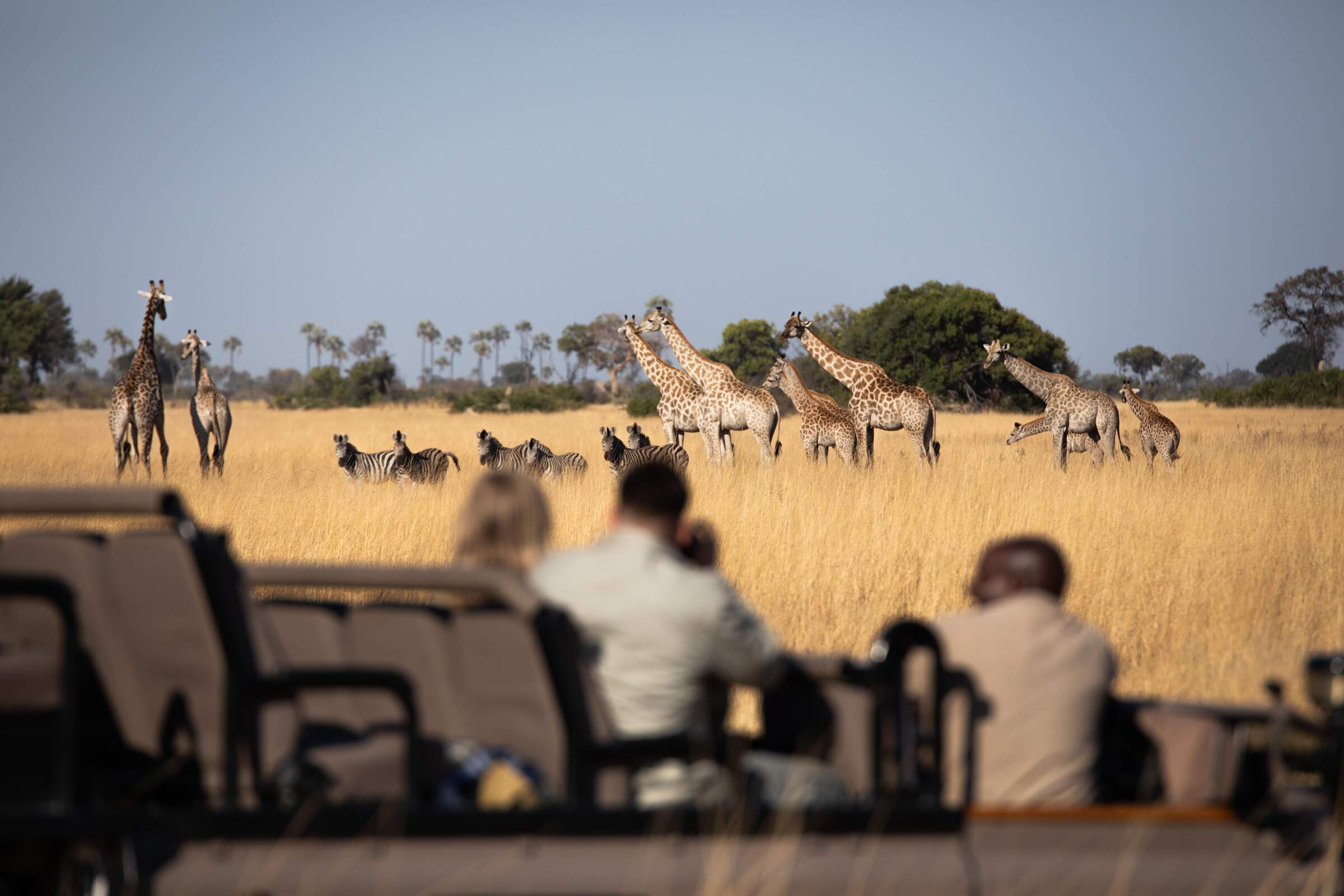
Tubu Tree Camp
A traditional tented camp with a distinctive tree-house feel, Tubu Tree offers some of the best game viewing in the Jao Reserve.
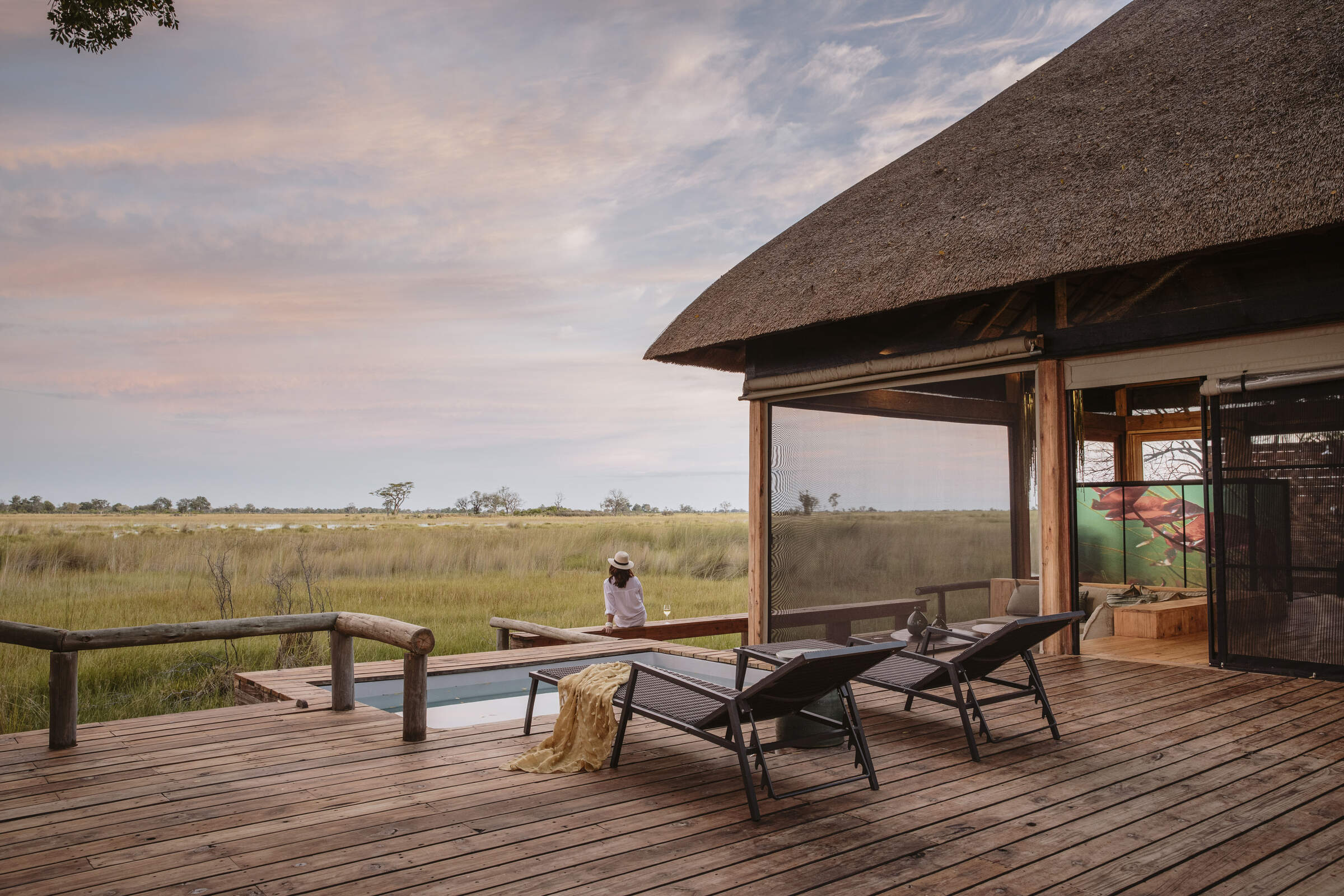
Vumbura Plains
Indulgently stylish and luxurious, Vumbura Plains offers superb game viewing and birding on an exceptionally varied private reserve.
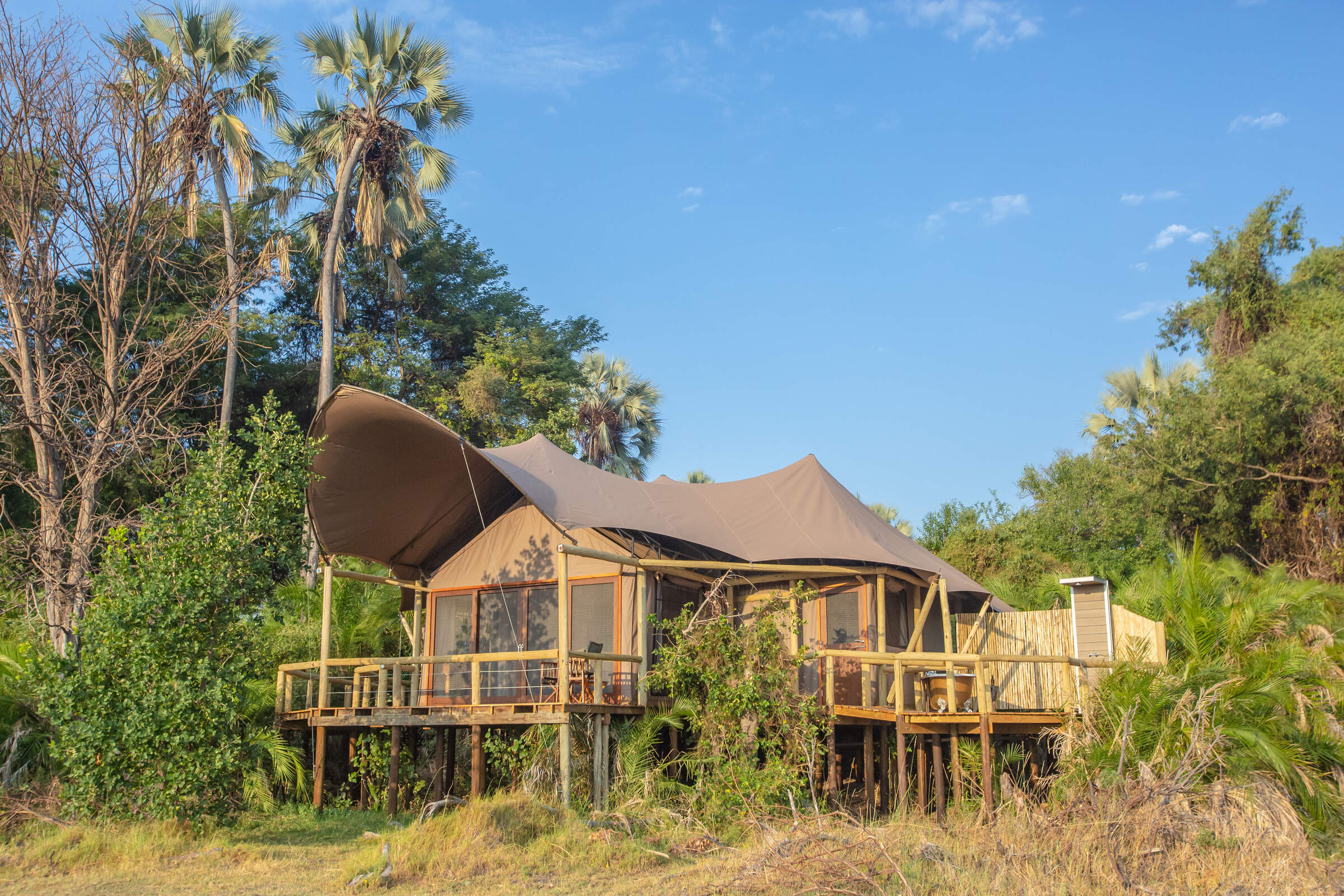
Jacana Camp
Jacana Camp is a small safari camp with an informal island feel; it is ideal for water-based activities in the Delta and offers excellent birdwatching.
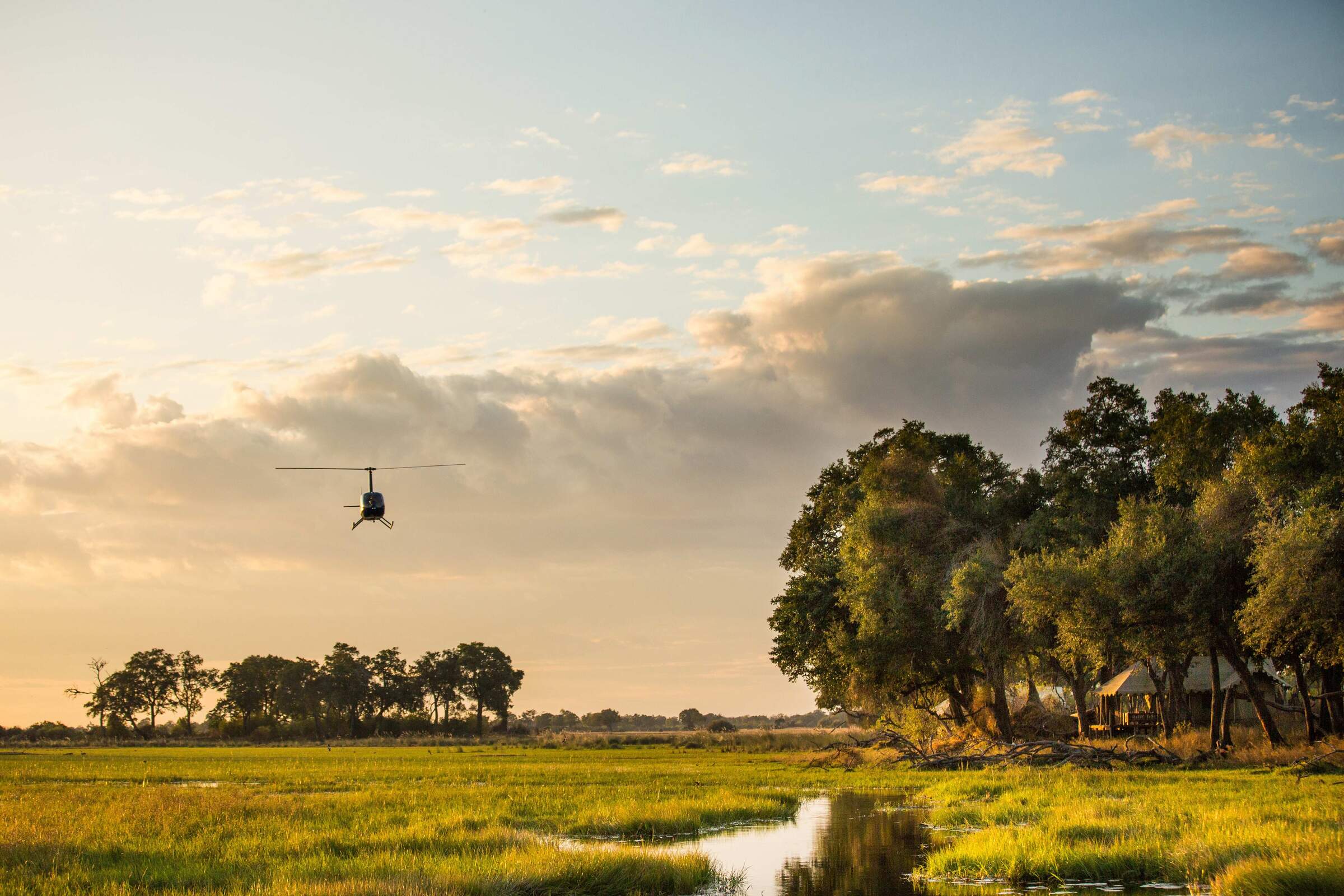
Duba Explorers Camp
Intimate and elegant, Duba Explorers Camp promises a firm safari focus in a remote corner of the Okavango, led by a team who value the highest guiding and hosting standards.
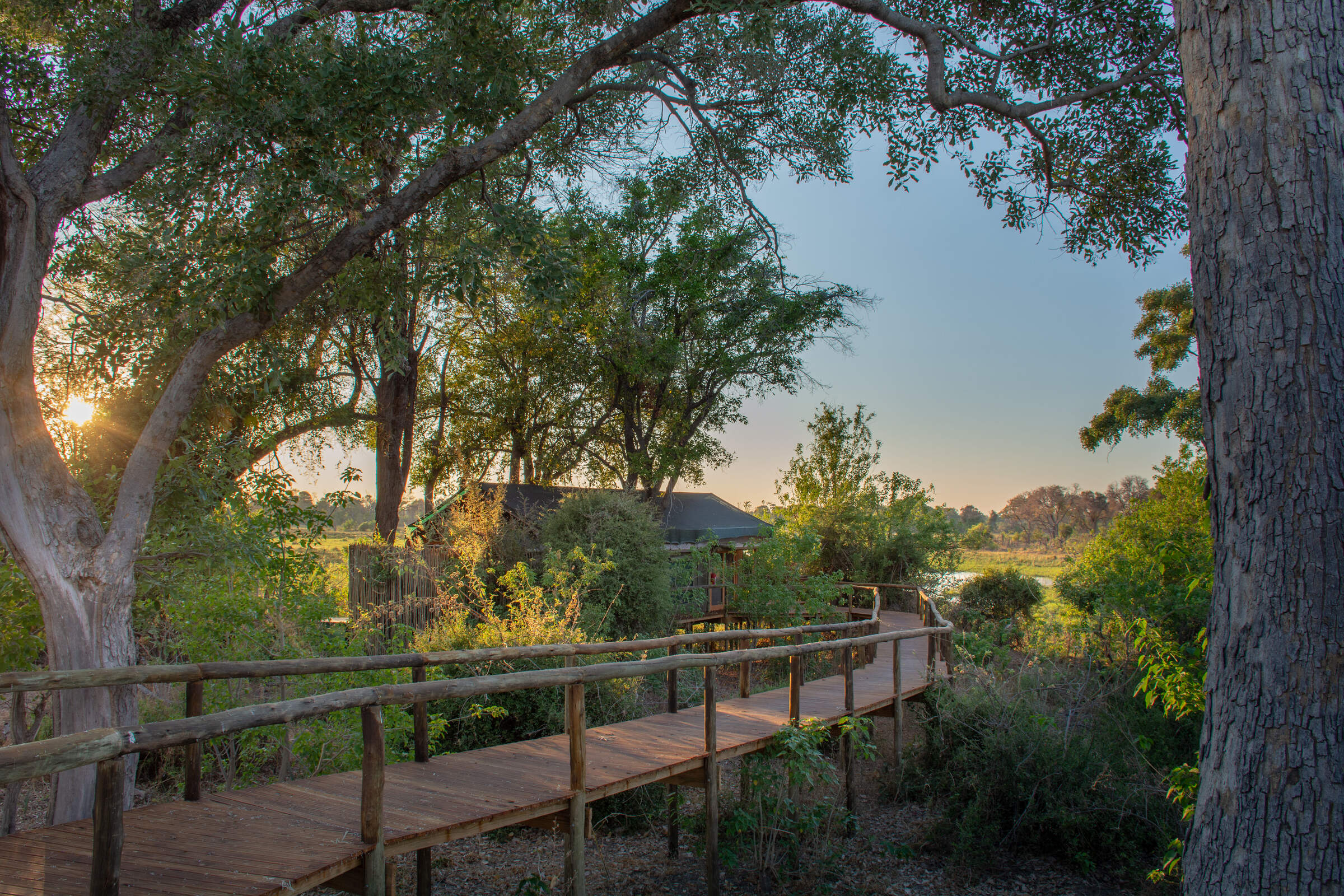
Mma Dinare
Beautifully located in a private concession overlooking the Gomoti River, the traditional Mma Dinare is very well-priced for the Okavango Delta.
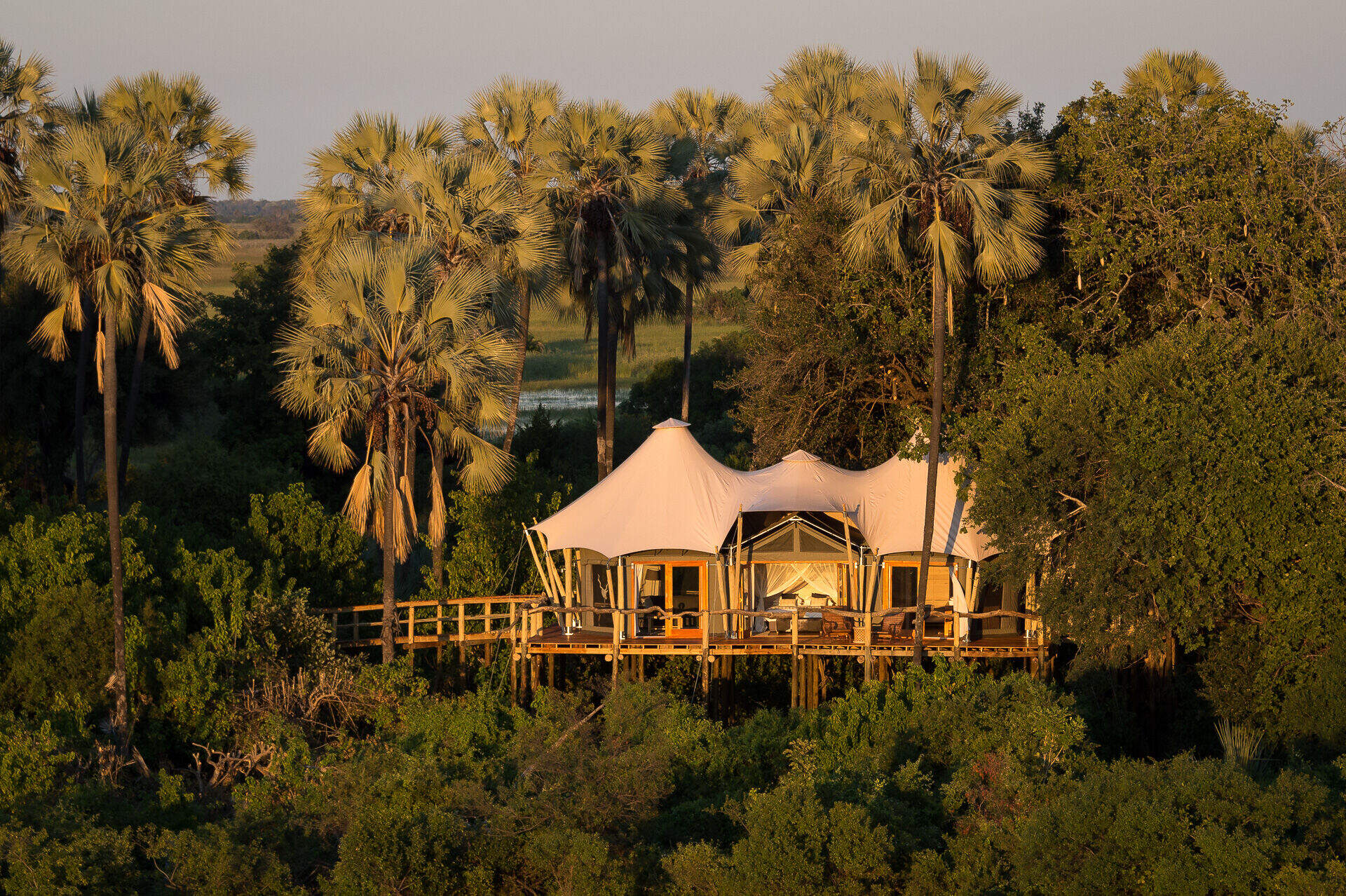
Kwetsani Camp
Deep in the Delta, overlooking a floodplain, Kwetsani Camp is a small, high-end camp with good access to areas for land and water-based activities.
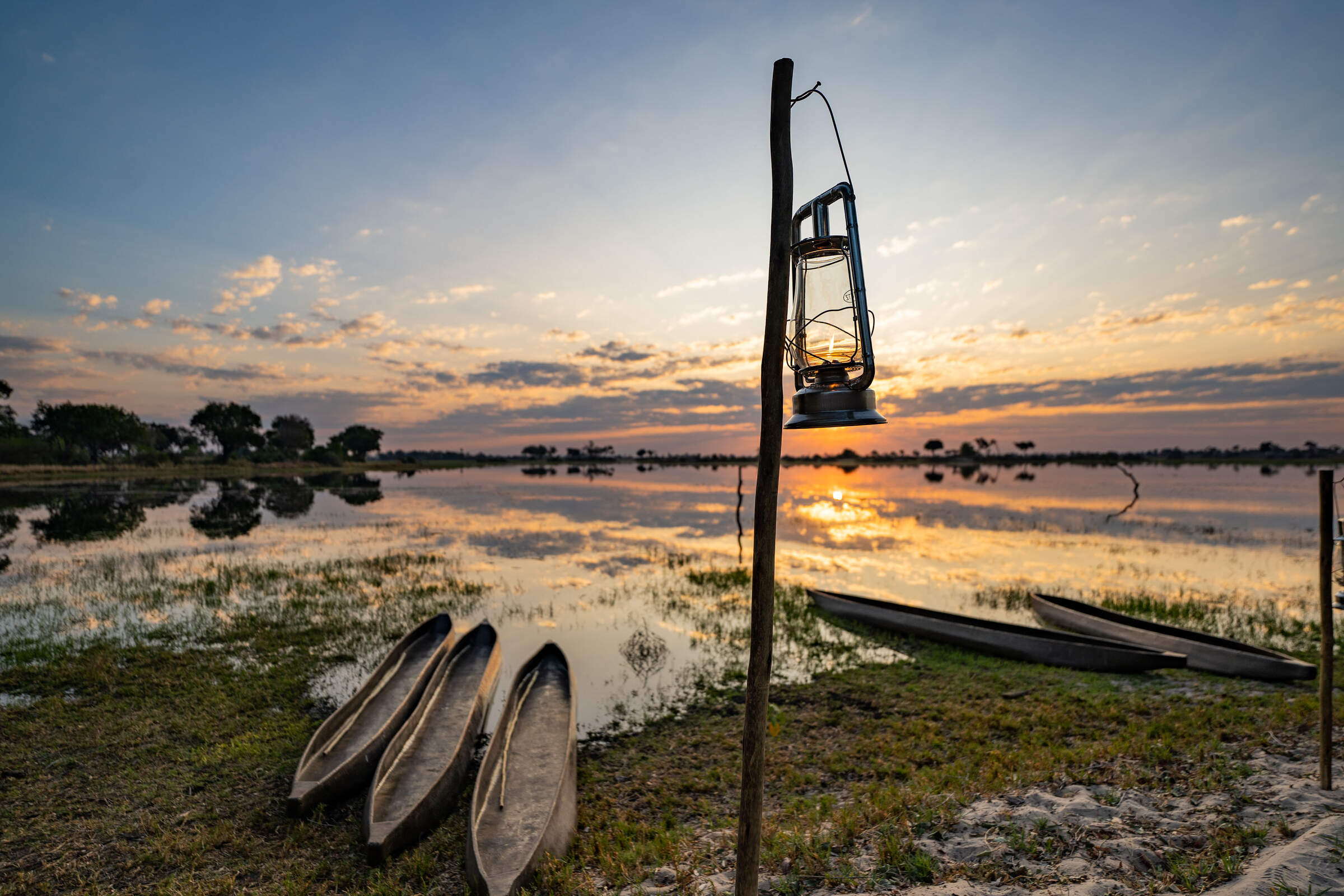
Pom Pom Camp
Amidst stunning Okavango Delta scenery, Pom Pom offers idyllic mokoro trips in season, great birdwatching, and increasingly good big-game sightings, especially leopards.
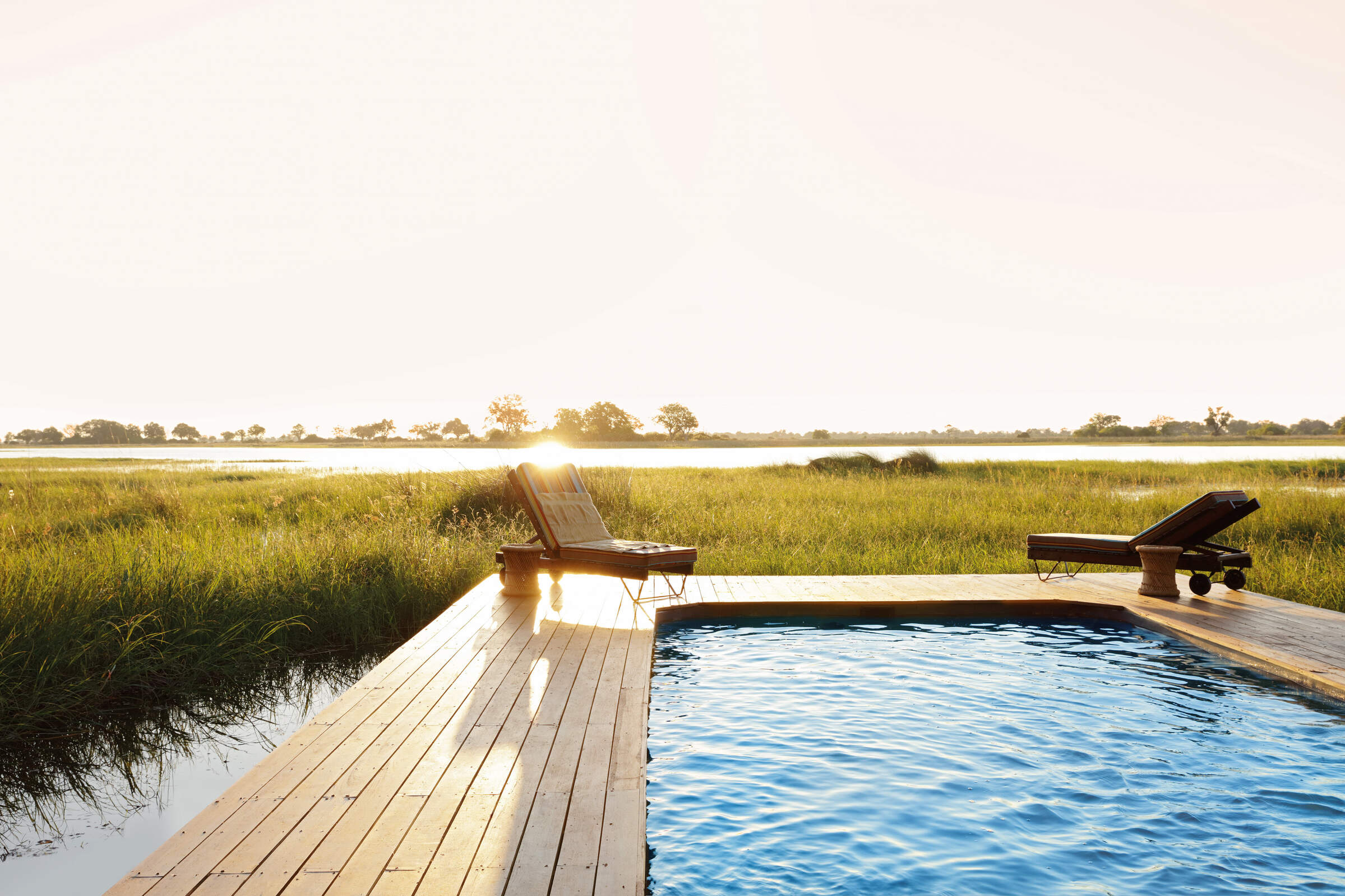
Mapula Lodge
For an affordable yet varied safari encompassing a range of eco-systems, the traditional Mapula Lodge takes a lot of beating.
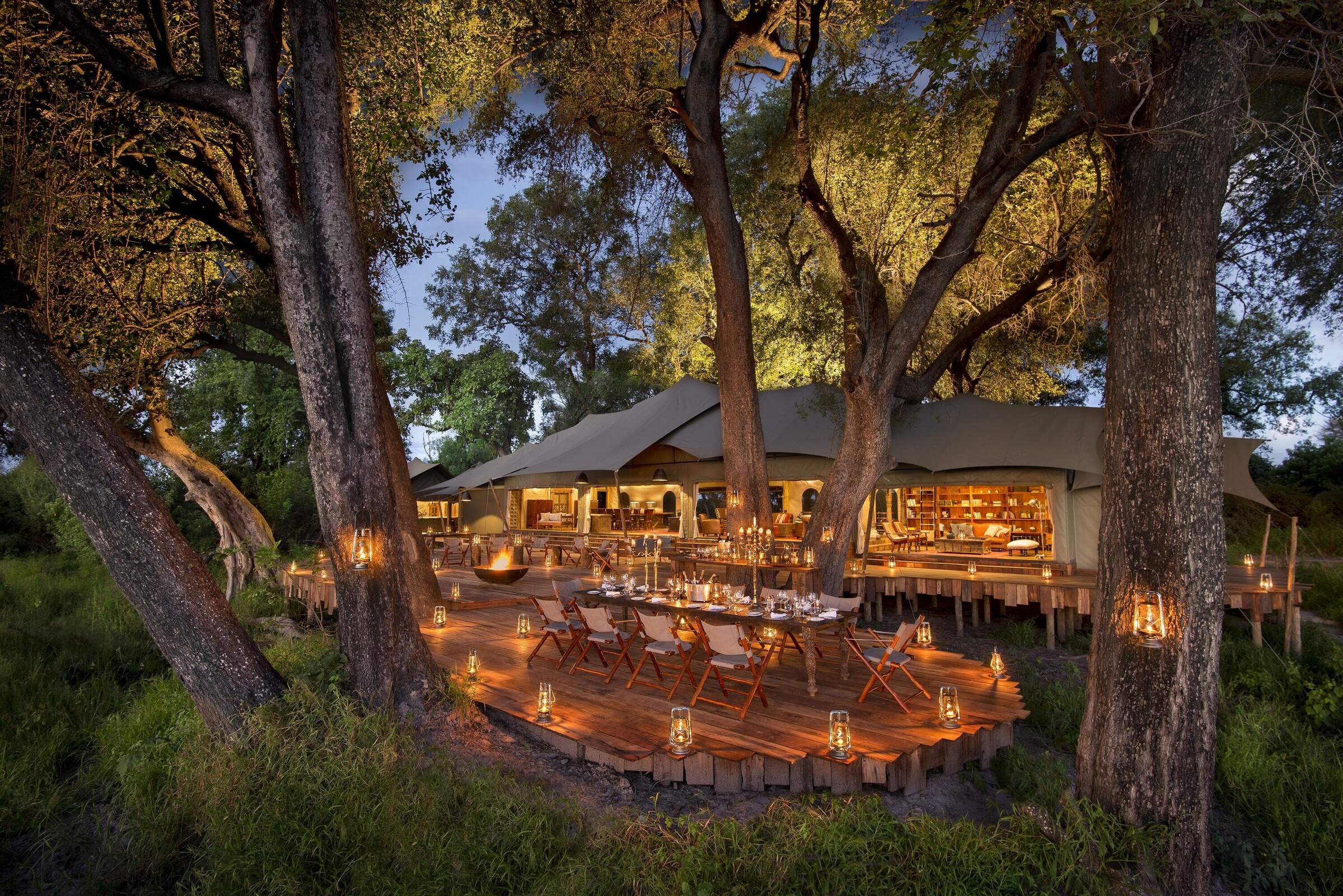
Duba Plains Camp
Duba Plains Camp is a traditional yet luxurious safari camp, best known for the thrilling lion behavior interaction that is often see during the day.
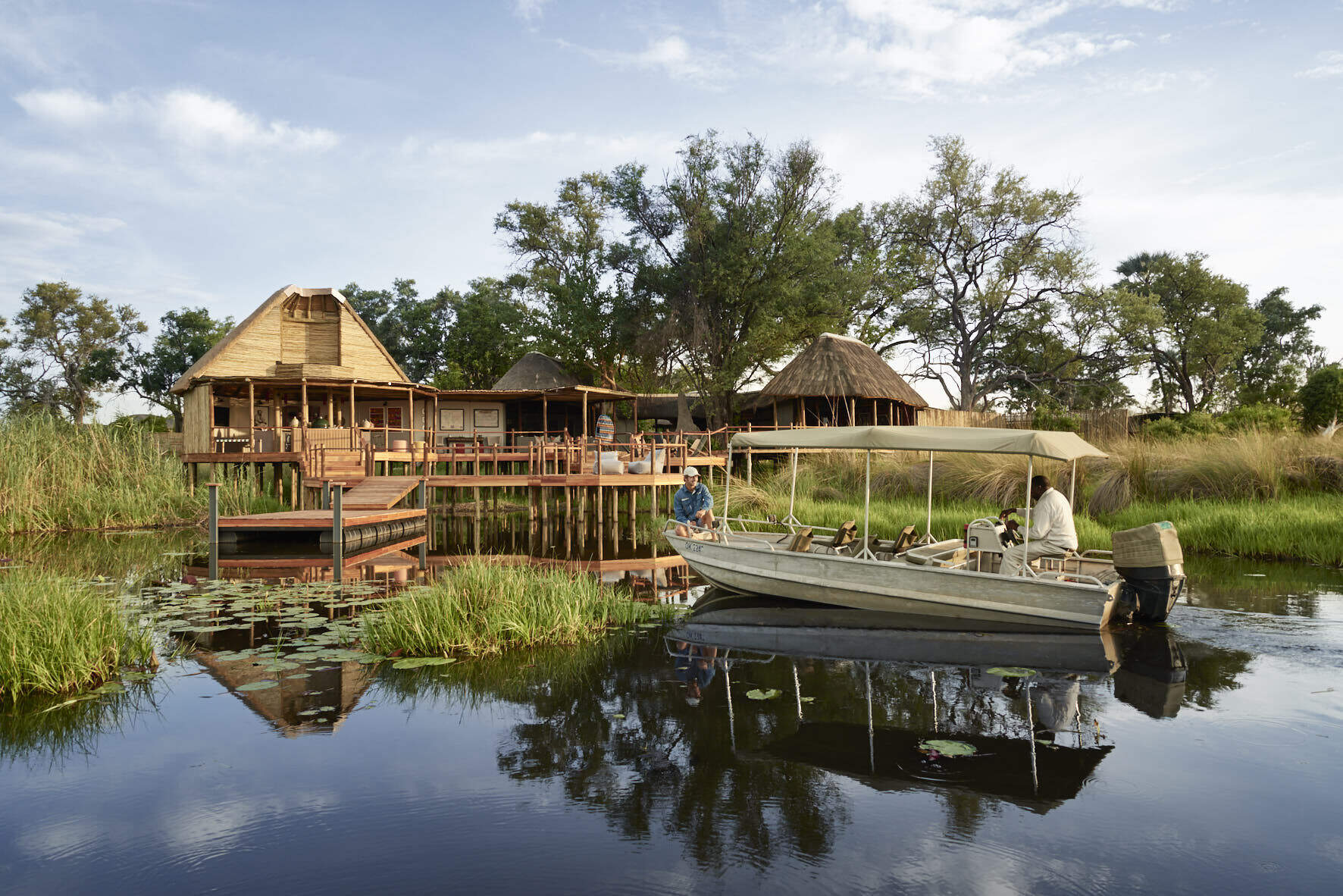
Baines' Camp
Baines' Camp is a well-run, intimate camp in a pretty part of the Okavango, offering a range of activities and the option to spend a morning walking with elephants.
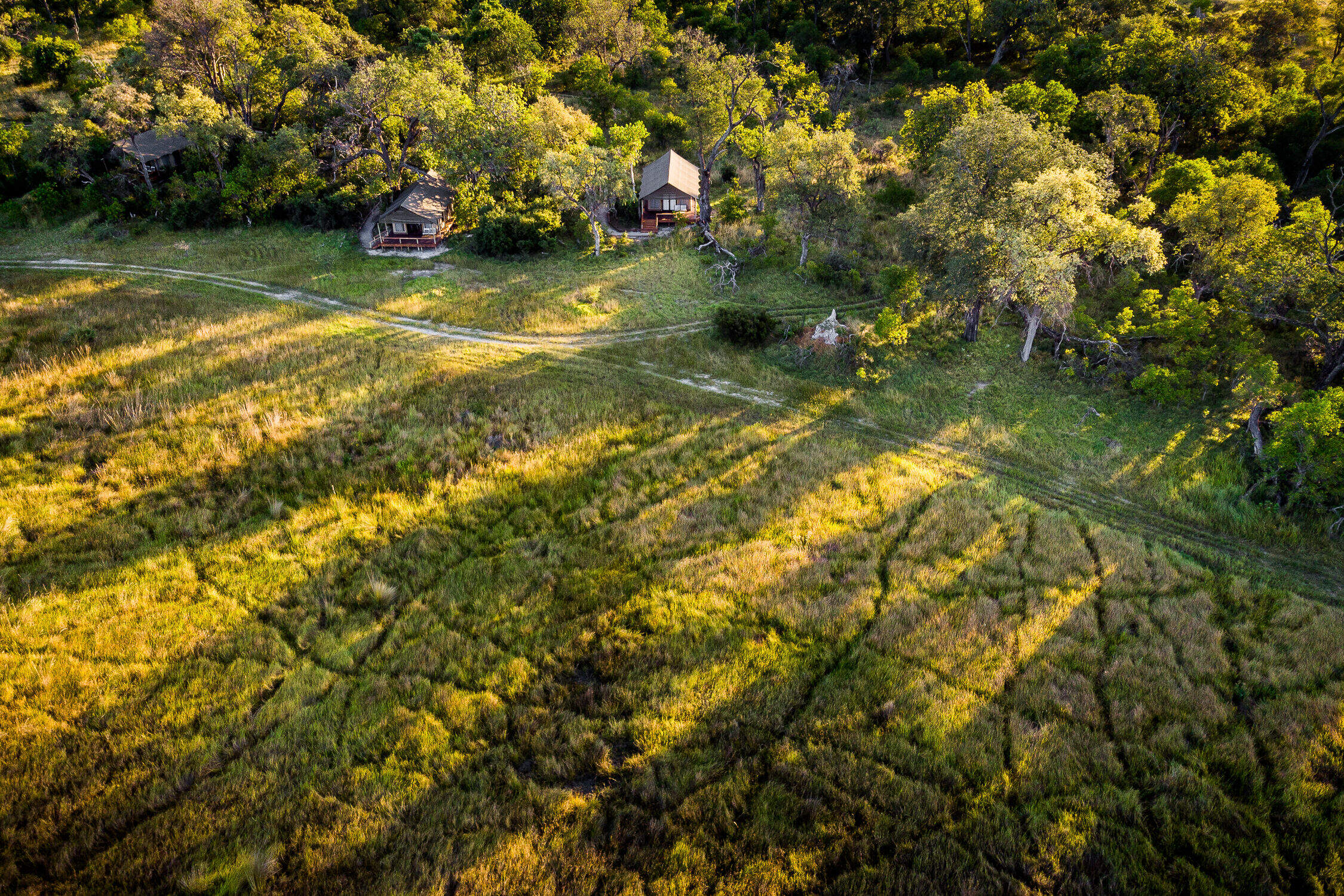
Stanley's Camp
In a private concession south of Moremi Game Reserve, Stanley's Camp offers 4WD game drives, seasonal water activities and a superb elephant interaction.
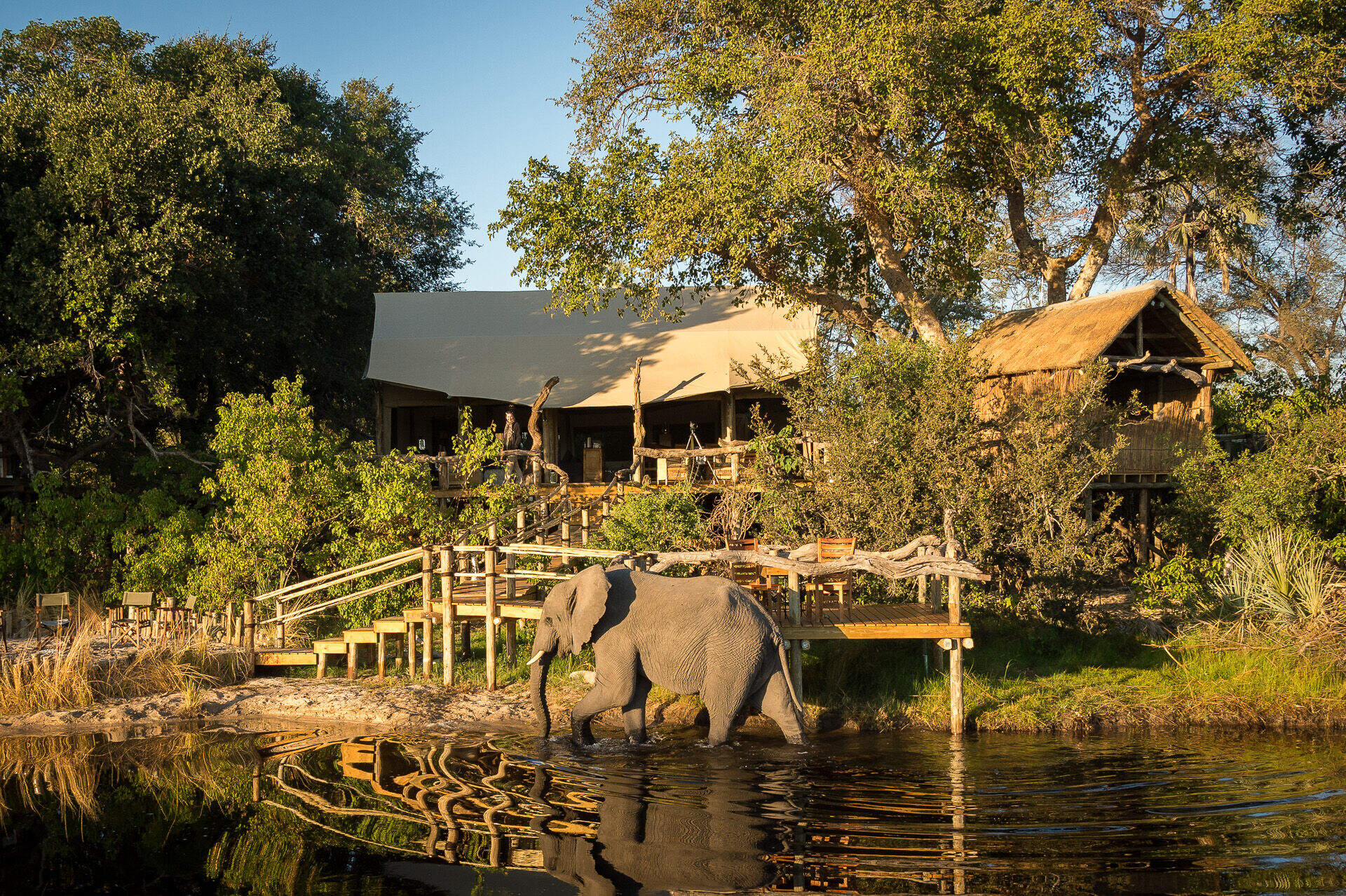
Little Tubu
Little Tubu is a new, traditional camp with just three tented chalets and a distinctive tree-house feel. The areas around it can be explored by water and land-based activities year round.
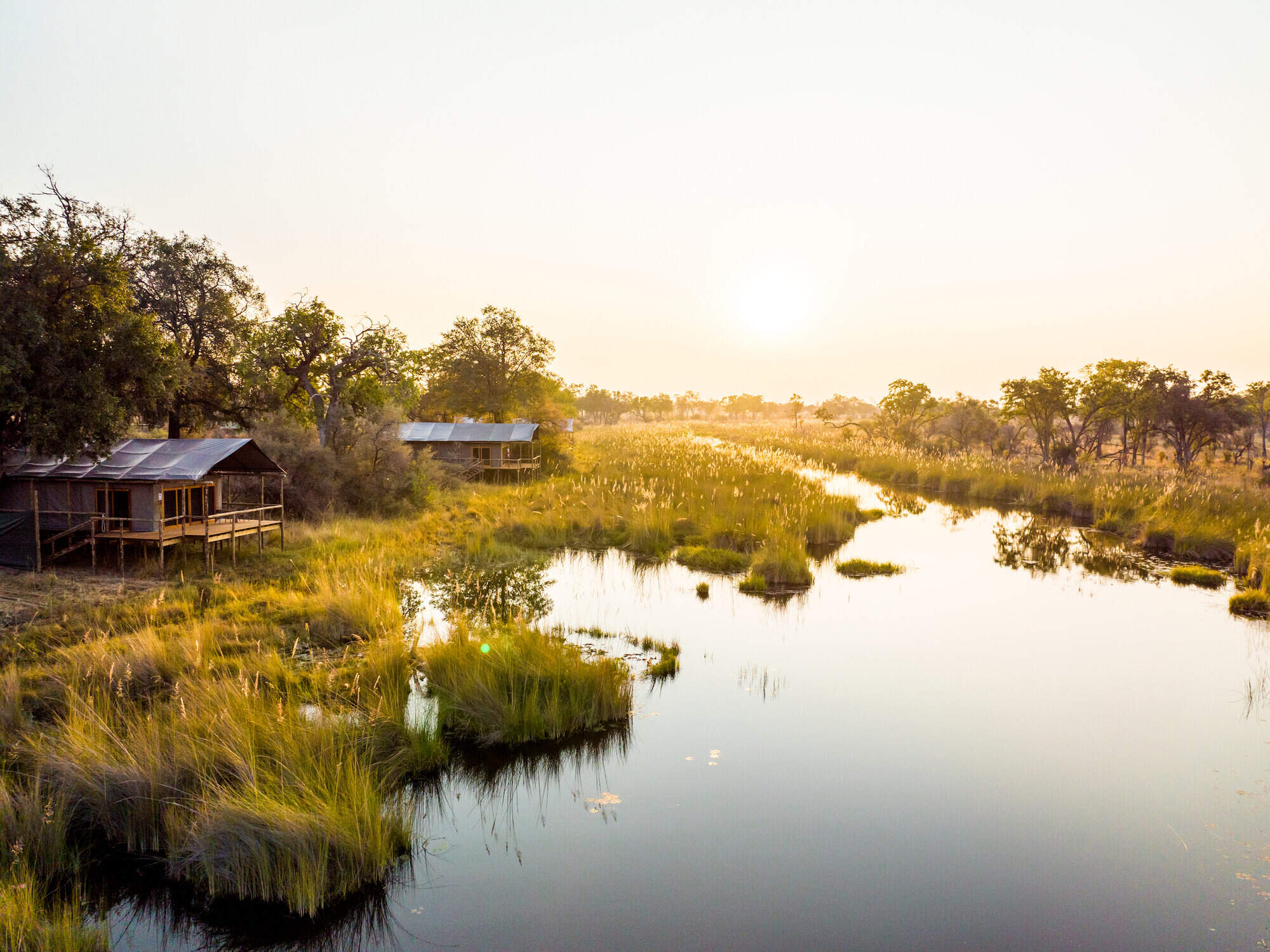
4 Rivers
4 Rivers is a new camp in a previously in accessible area of the excellent Kwara concession.
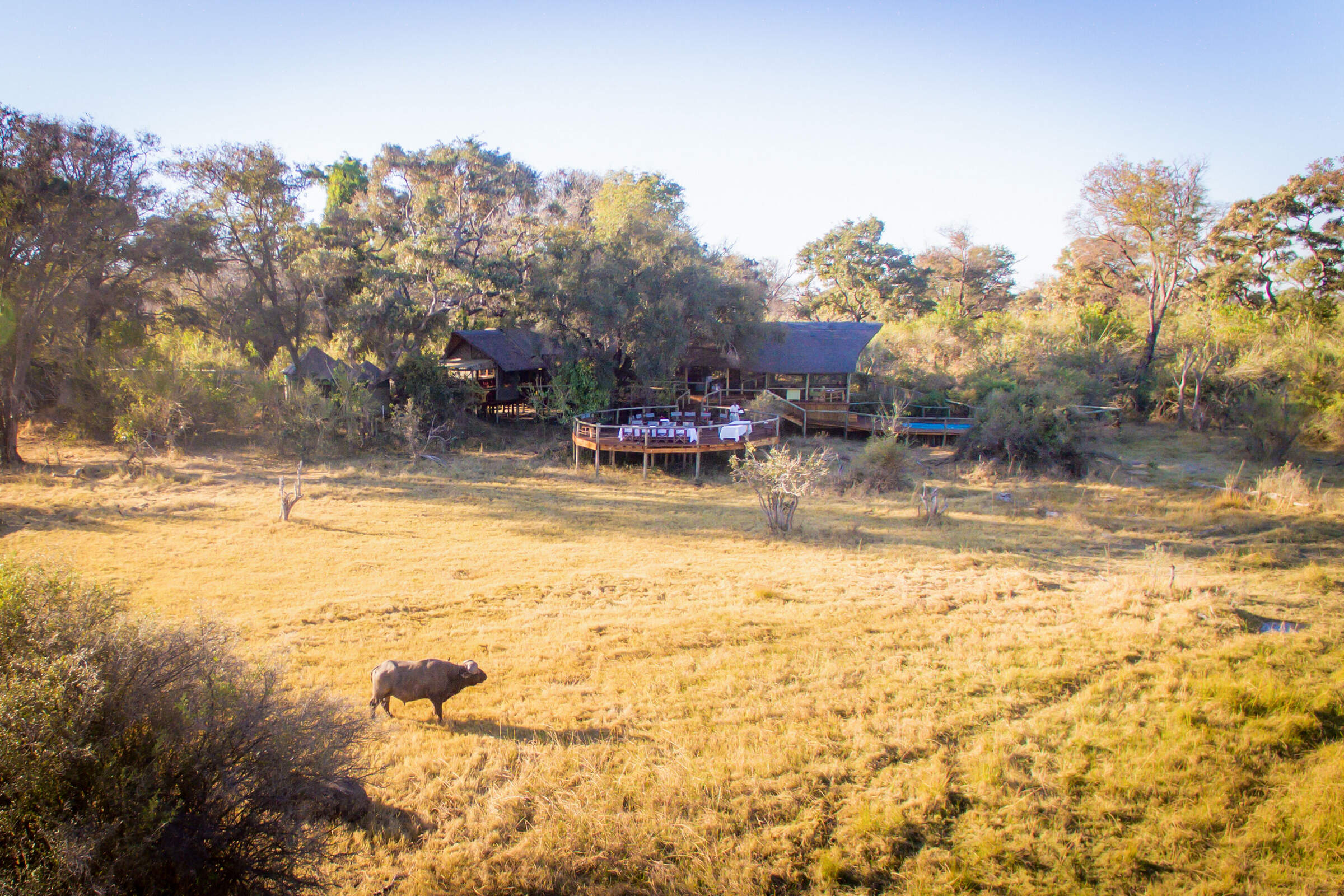
Rra Dinare
Located in a private concession in the southern reaches of the Okavango Delta, overlooking the Gomoti River, Rra Dinare is a traditional-style, well-priced camp.
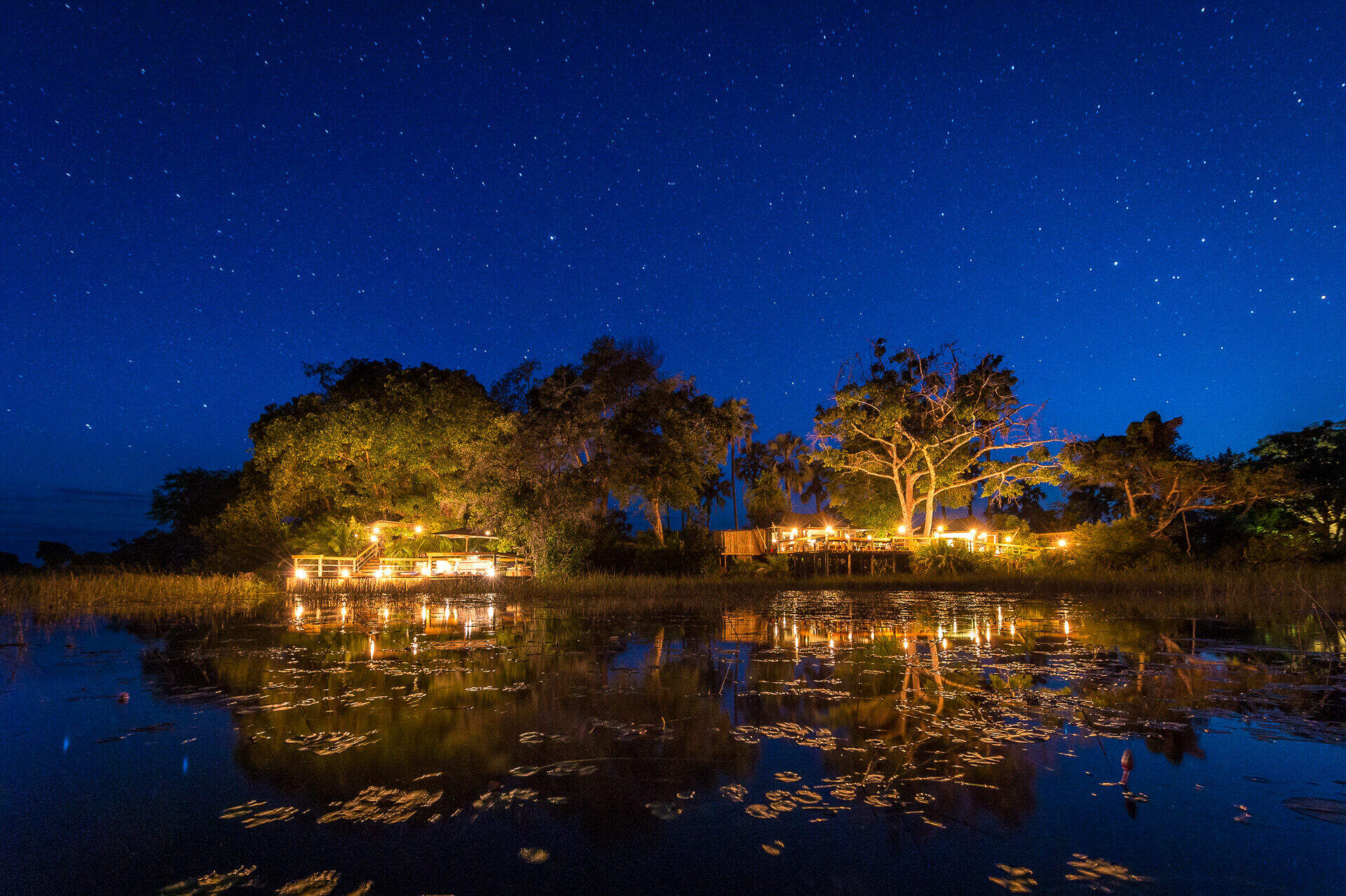
Pelo Camp
In a pristine wilderness environment deep in the Okavango Delta, the seasonal Pelo Camp is tented yet comfortable, with activities focusing on excursions by mokoro.
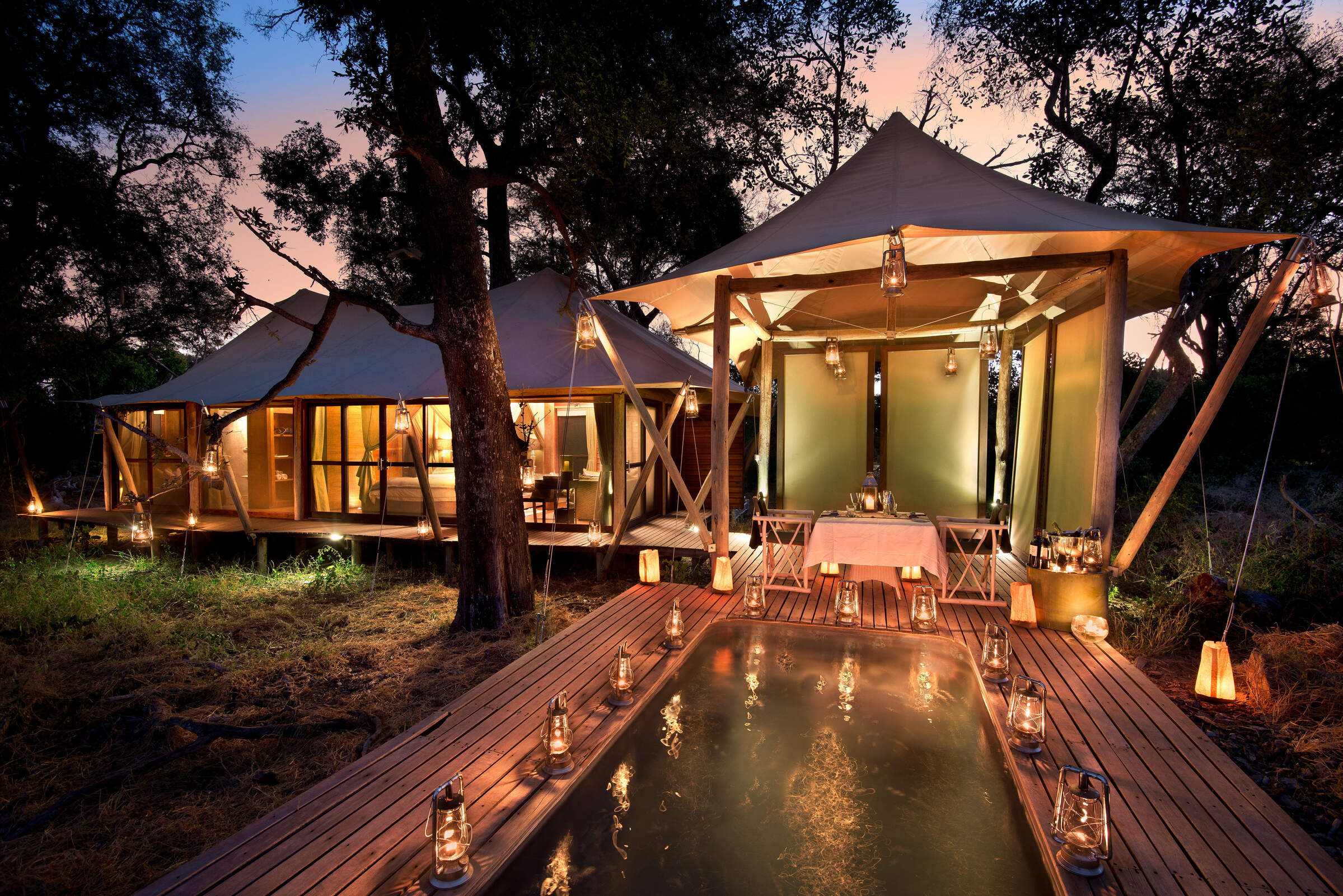
Xaranna
Xaranna is a plush tented camp amongst the idyllic waterways and islands of the Delta. Each air-conditioned tent has a plunge pool. Water activities and pampering are the focus here.
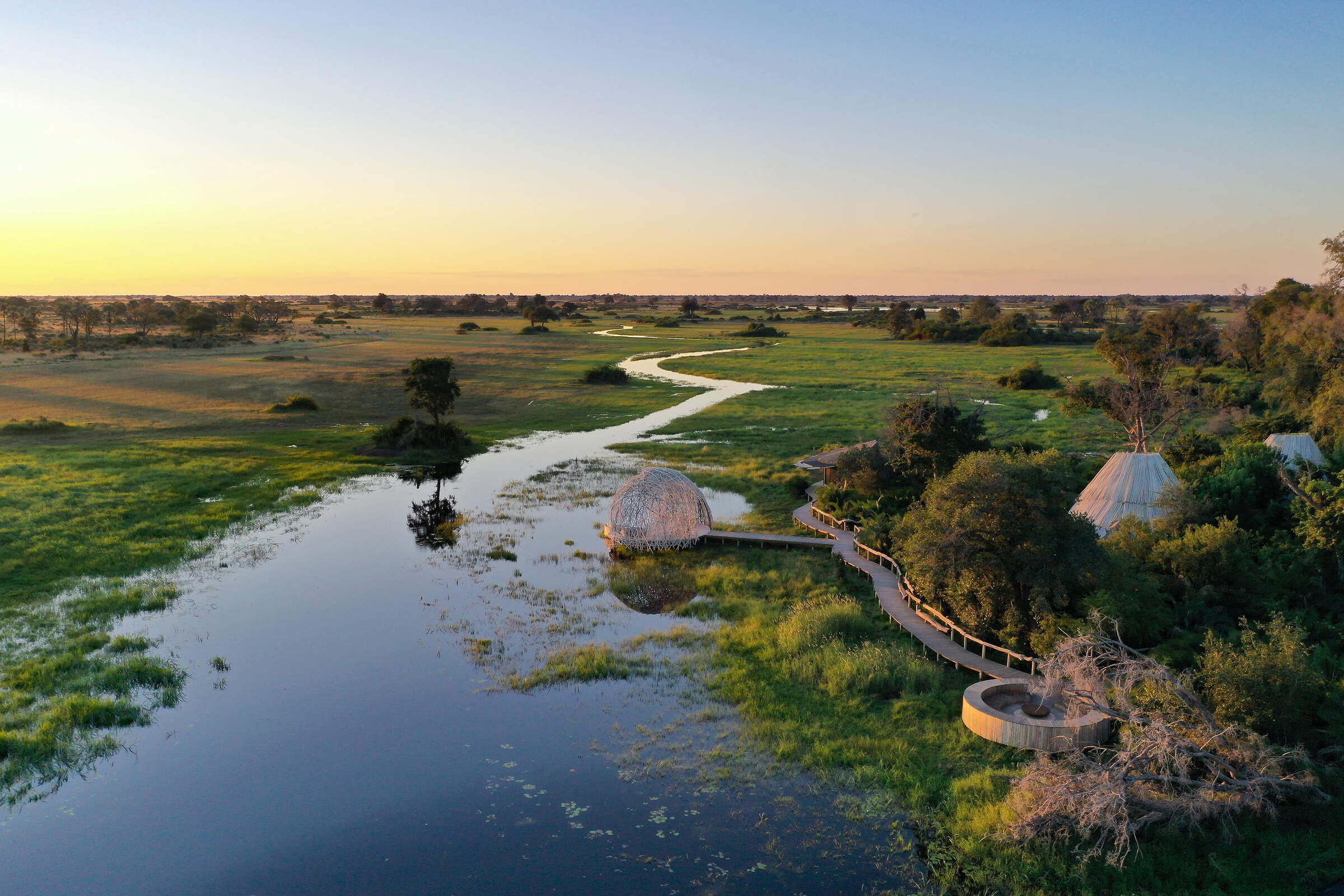
Jao Camp
In a beautiful area with fantastic water activities, Jao combines an idyllic location with high levels of luxury and service, and a top-end spa.
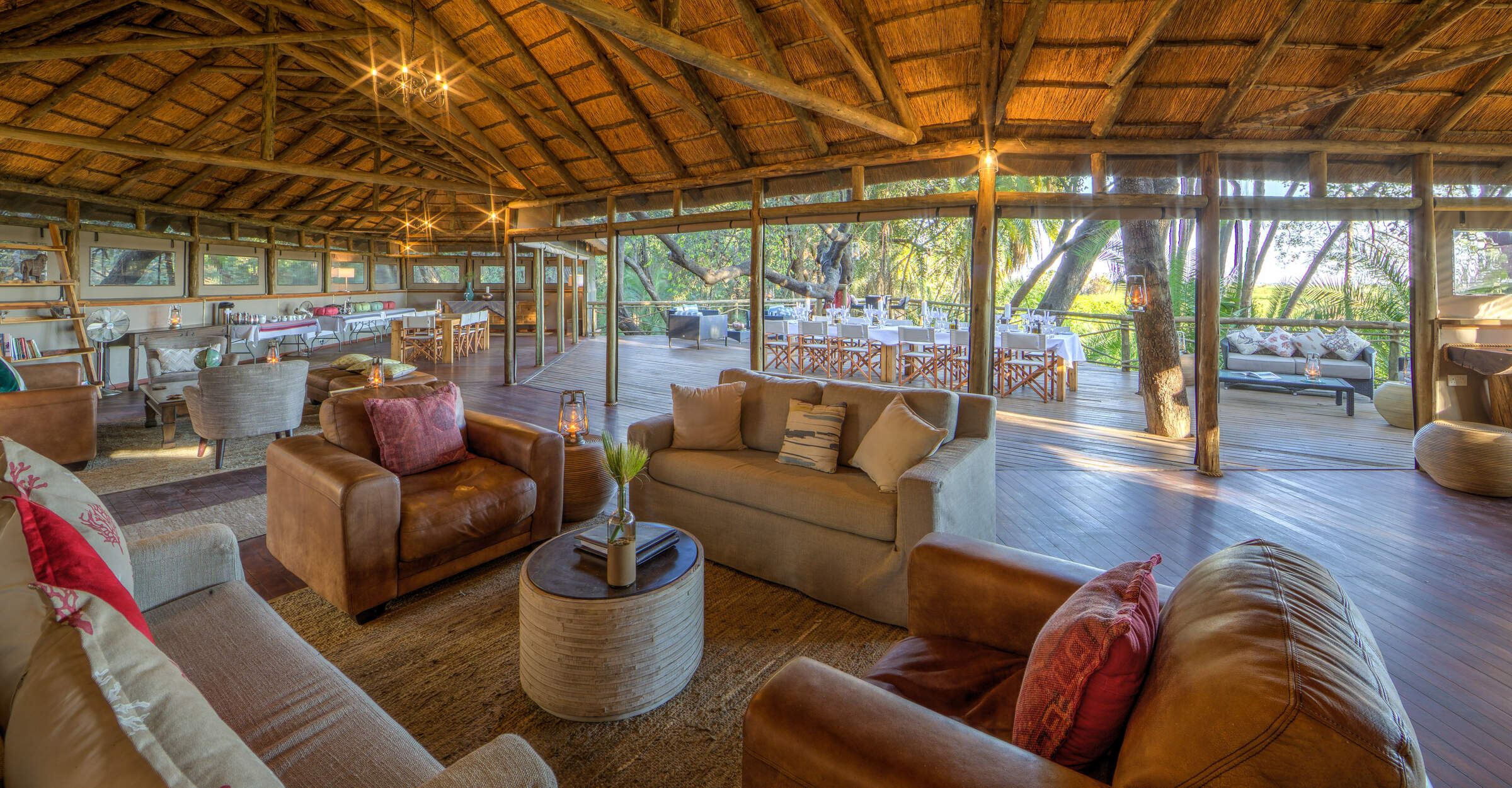
Setari Camp
Setari Camp stands on an island dotted with palm trees, close to the base of the Okavango’s ‘Panhandle"
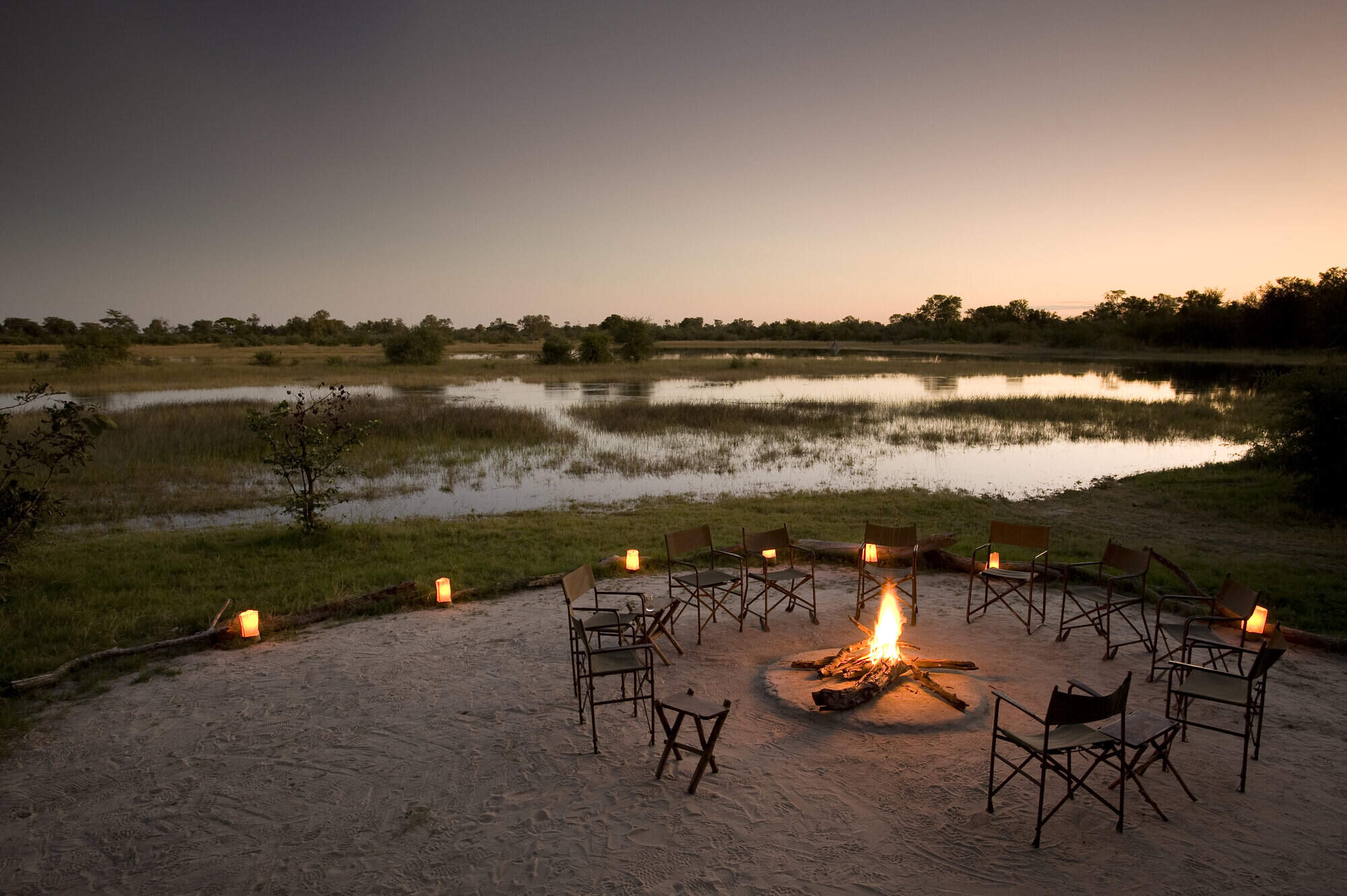
Okavango Explorers
The traditional, tented Okavango Explorers Camp offers a mix of walking, canoeing and game drives led by great guides in a wildlife-rich area.
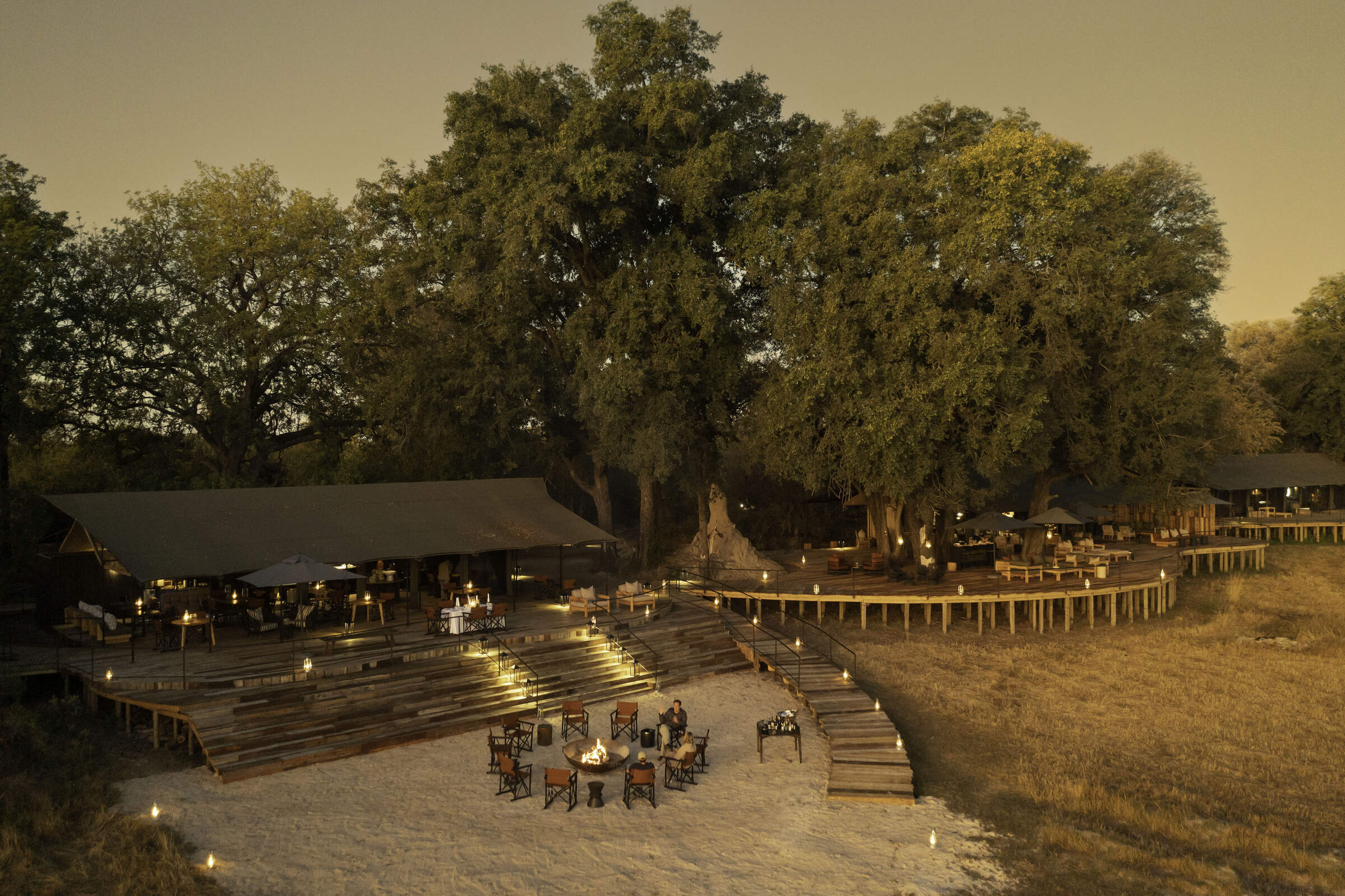
Kiri Camp
Kiri Camp is the latest Okavango offering from the excellent team behind Machaba. In an exciting new location in the heart of the Delta we cannot wait to visit this new camp.
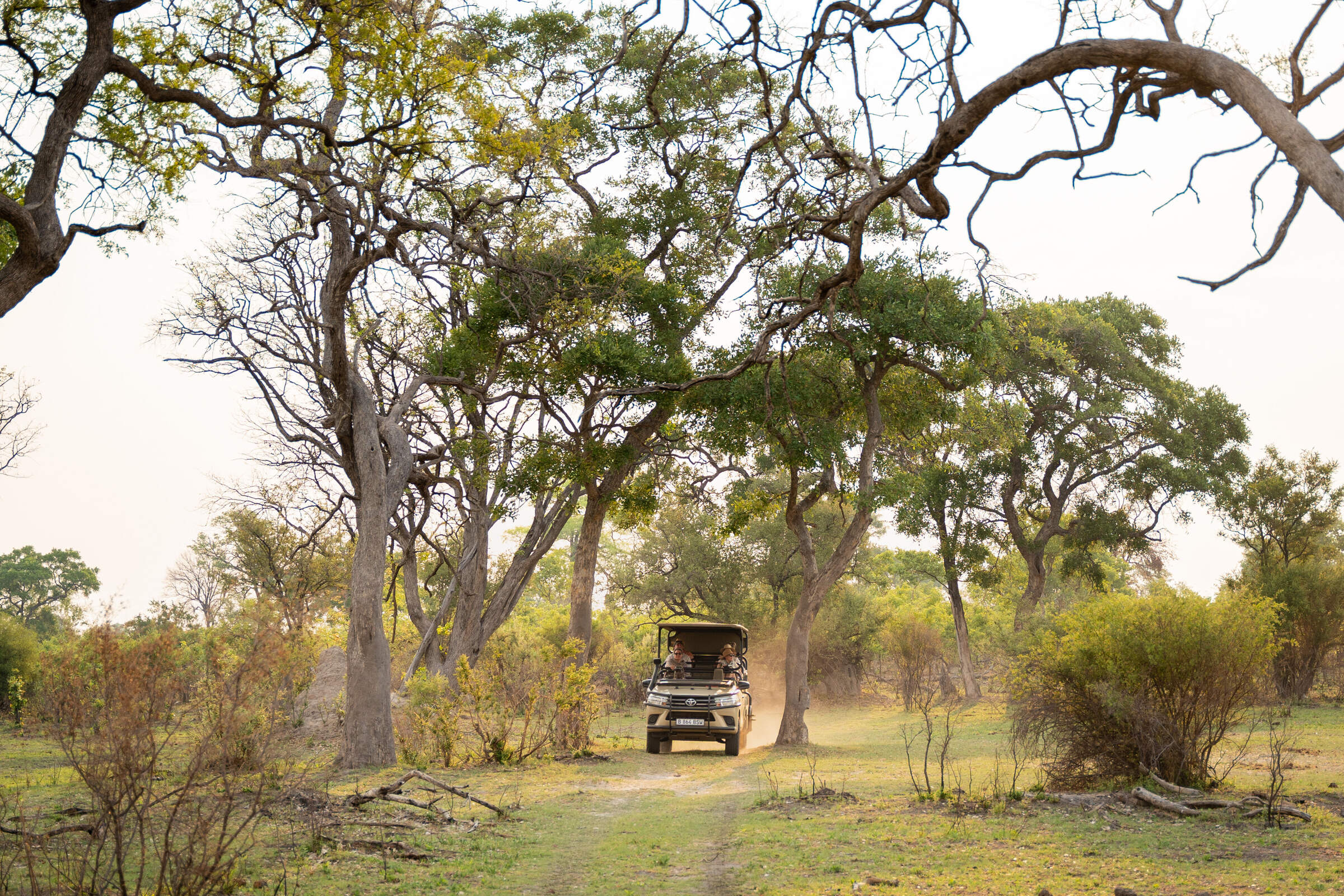
Karangoma
New for 2024, Karangoma is a classic, tented camp offering walking, canoeing and game drives, in partnership with the local Bukakwe San clan.
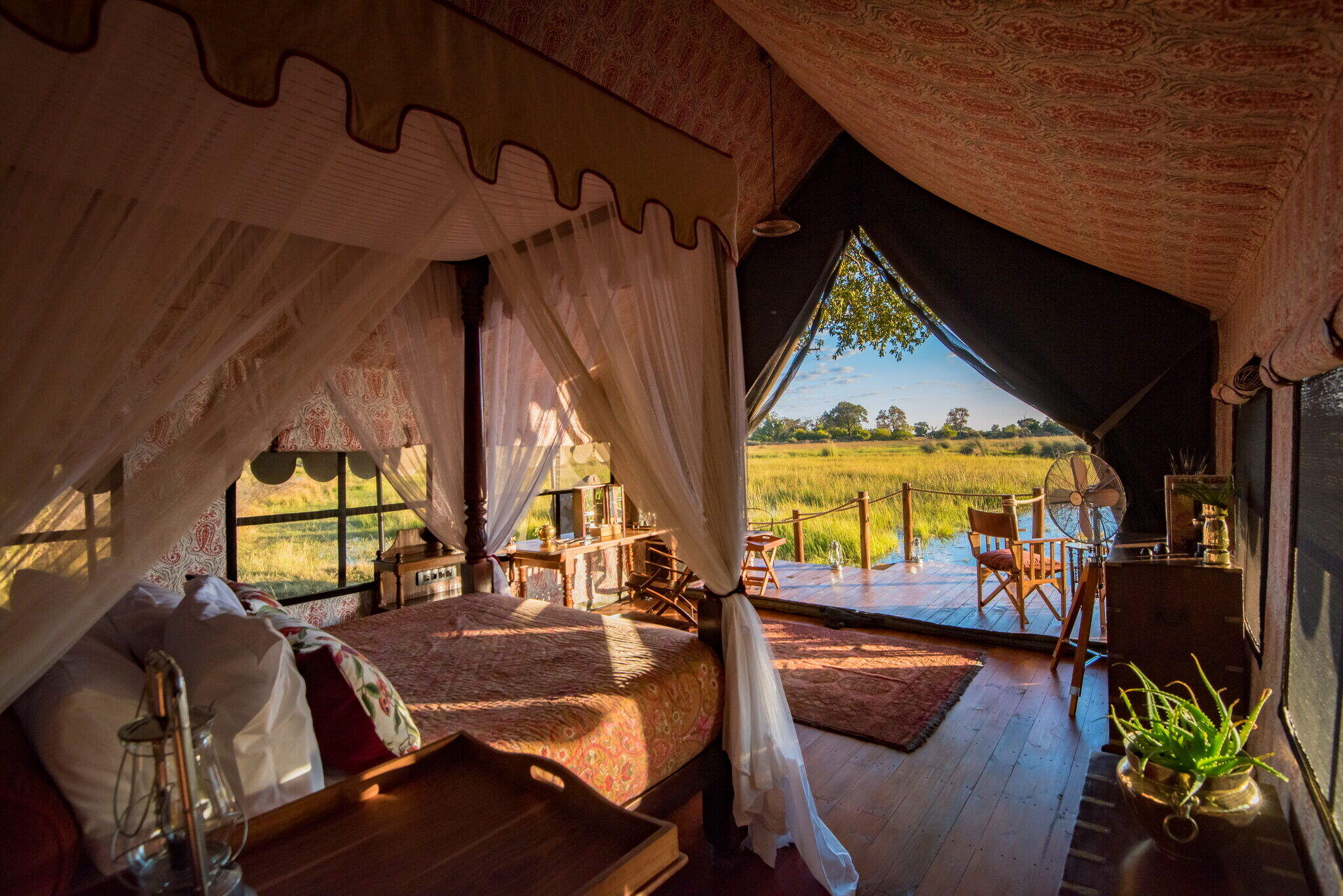
Duke’s Camp
On a remote island within a large concession, the romantic Duke's Camp and smaller Duke’s East are nestled among mature trees overlooking wildlife-rich plains and waterways of the Okavango.
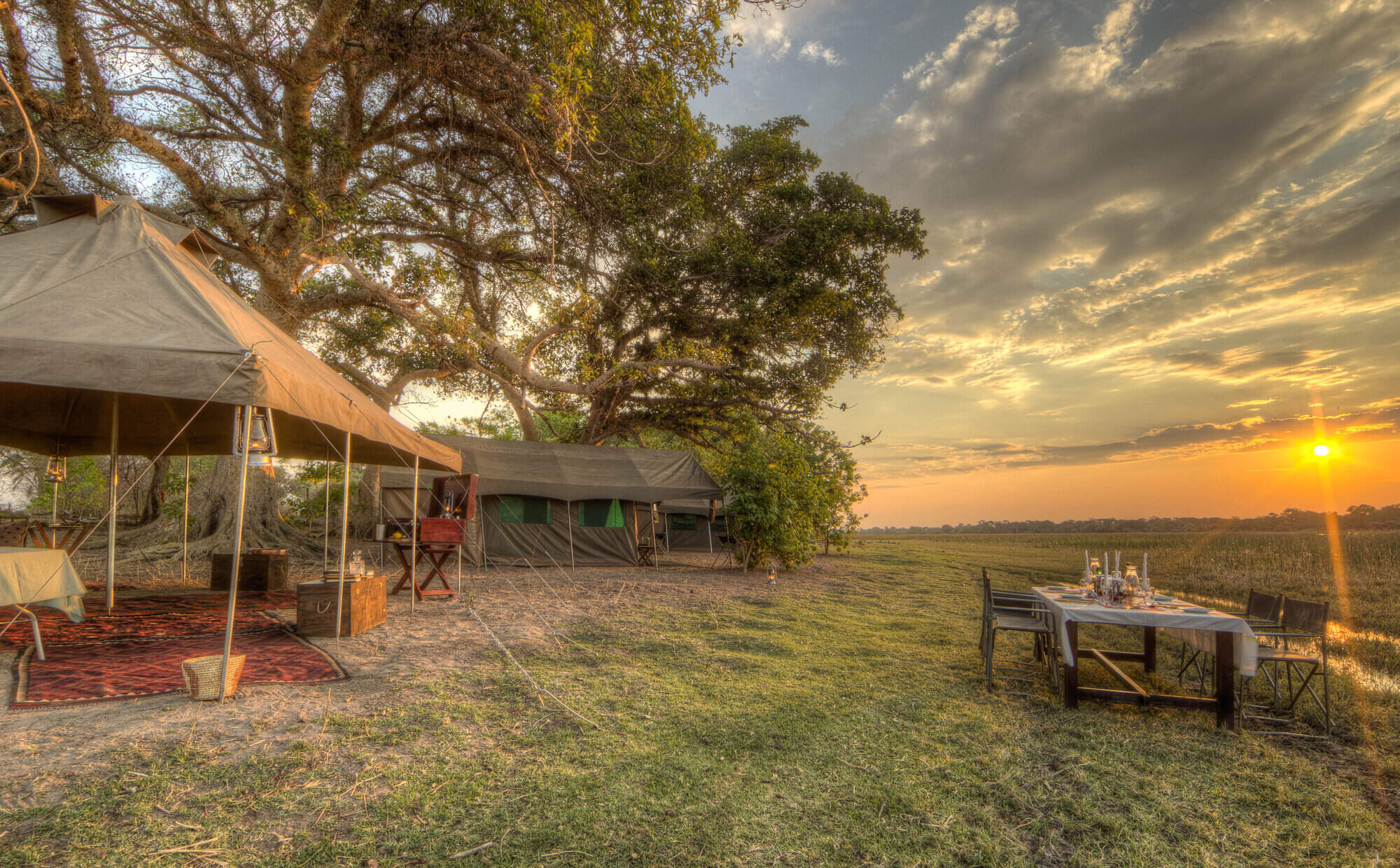
Okavango Walking Safari
The Okavango Delta Walking Safari camps in a secluded Okavango Delta Reserve where there are few roads; the ideal location for a walking trail led by an expert guide.
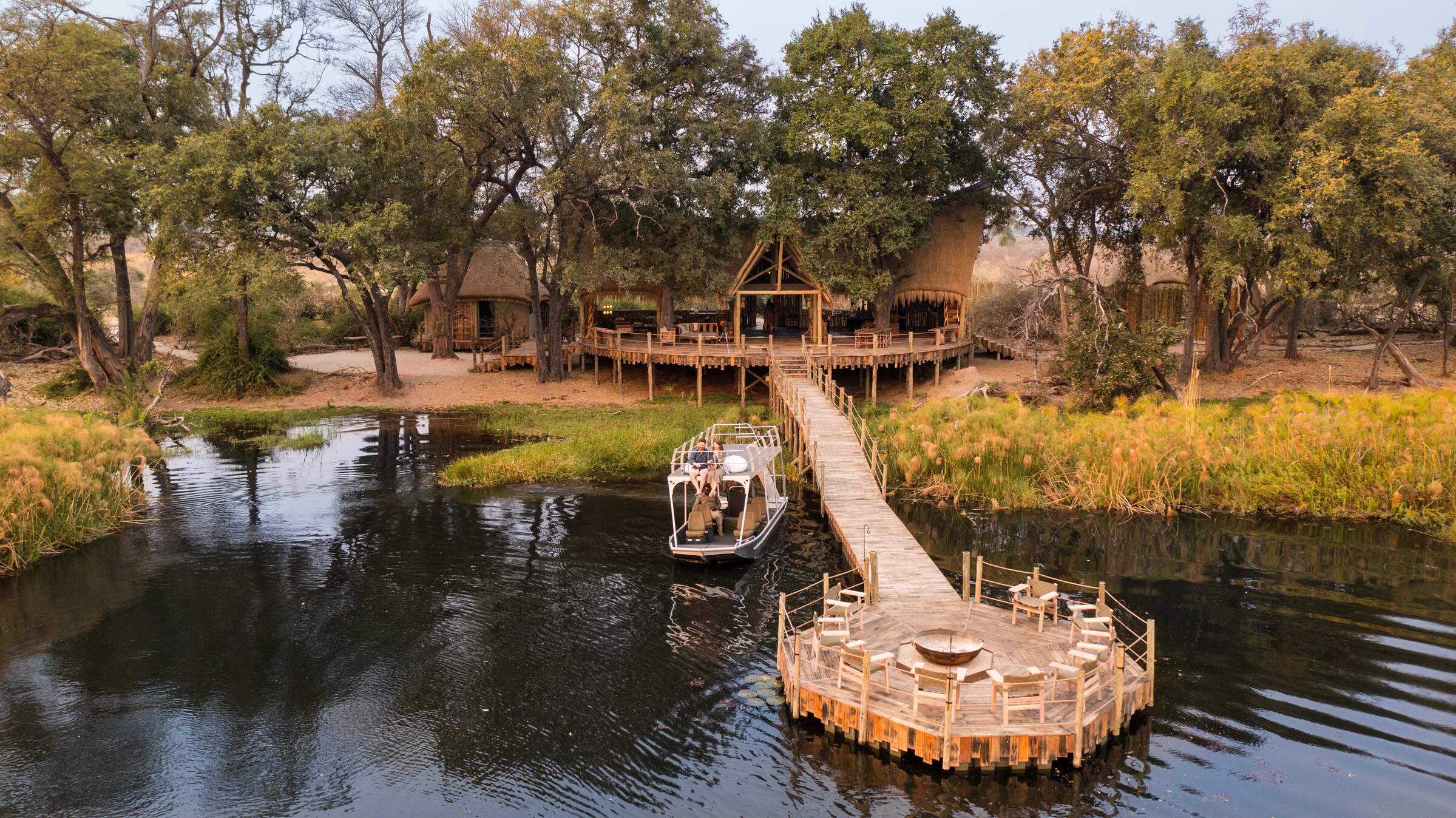
Sitatunga Island Camp
Tucked away in a pristine corner of the Okavango Delta, the exclusive Sitatunga Private Island is a water-based camp offering boating, mokoro trips and fishing.
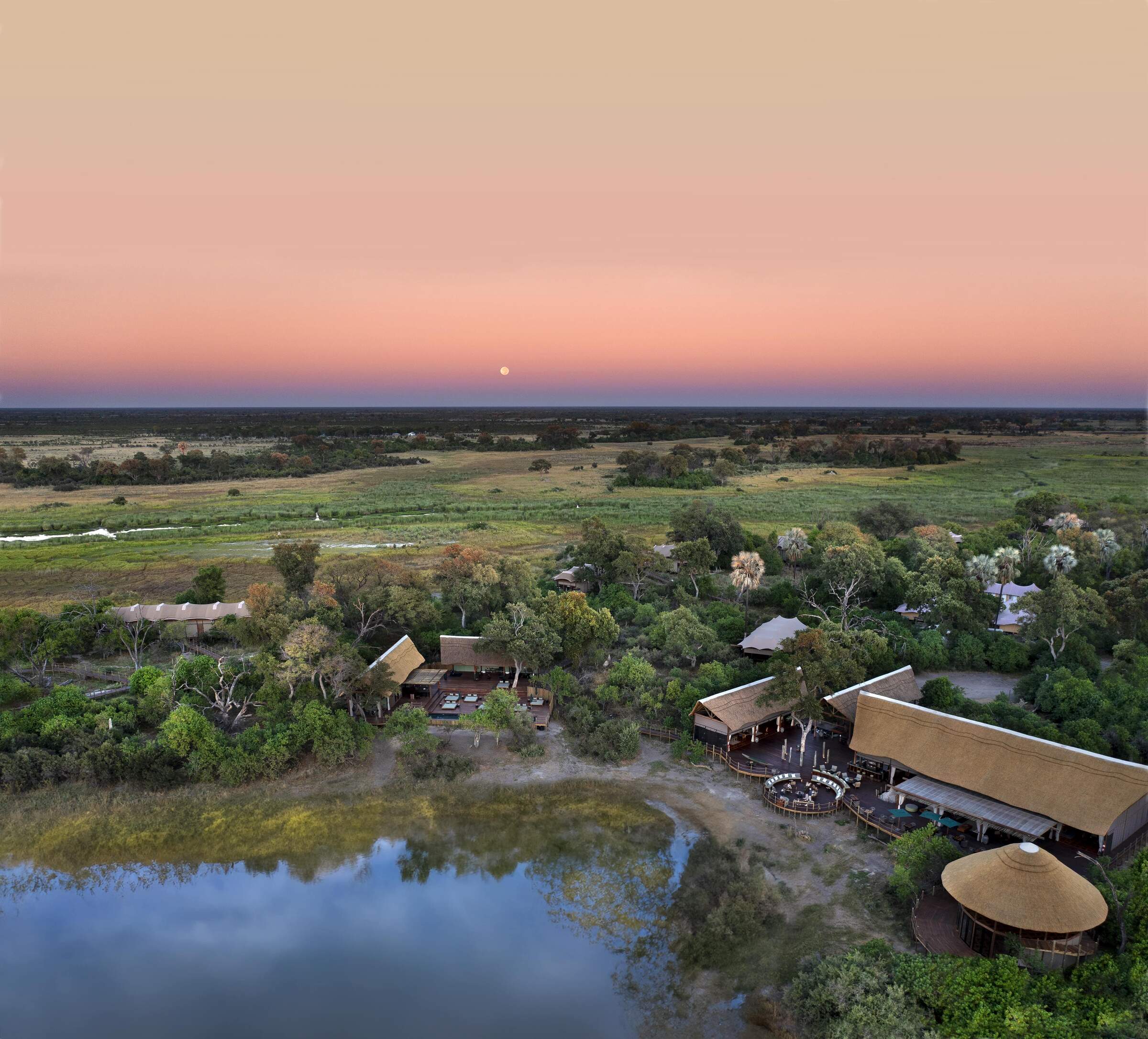
Atzaro Okavango
With a high level of tasteful luxury promised at Atzaro, we think it will be best suited to travellers seeking a touch of pampering alongside their safari.
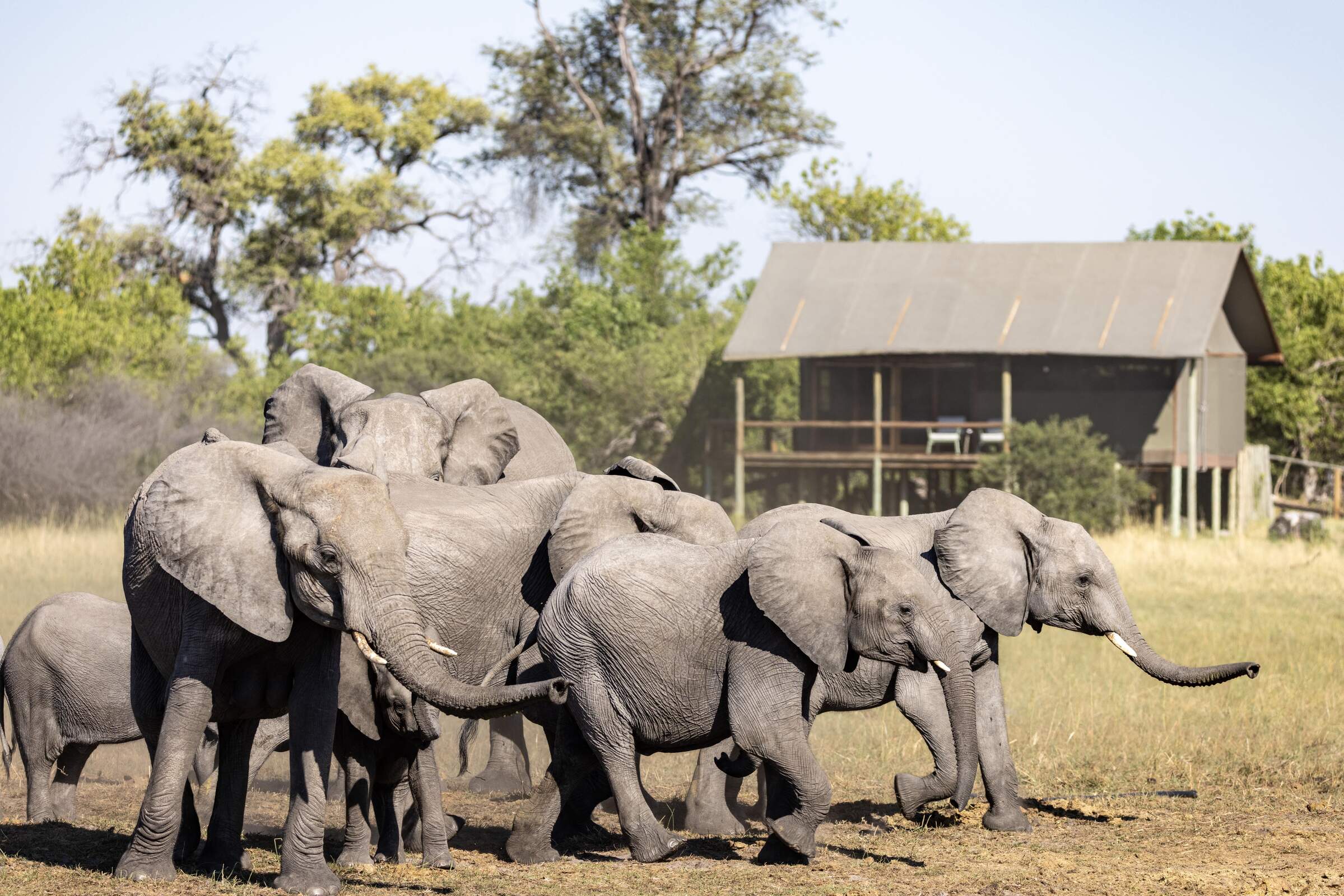
Mokolwane
Deep in the heart of the Okavango, the simple Mokolwane focuses on wildlife viewing in a large, untouched area.
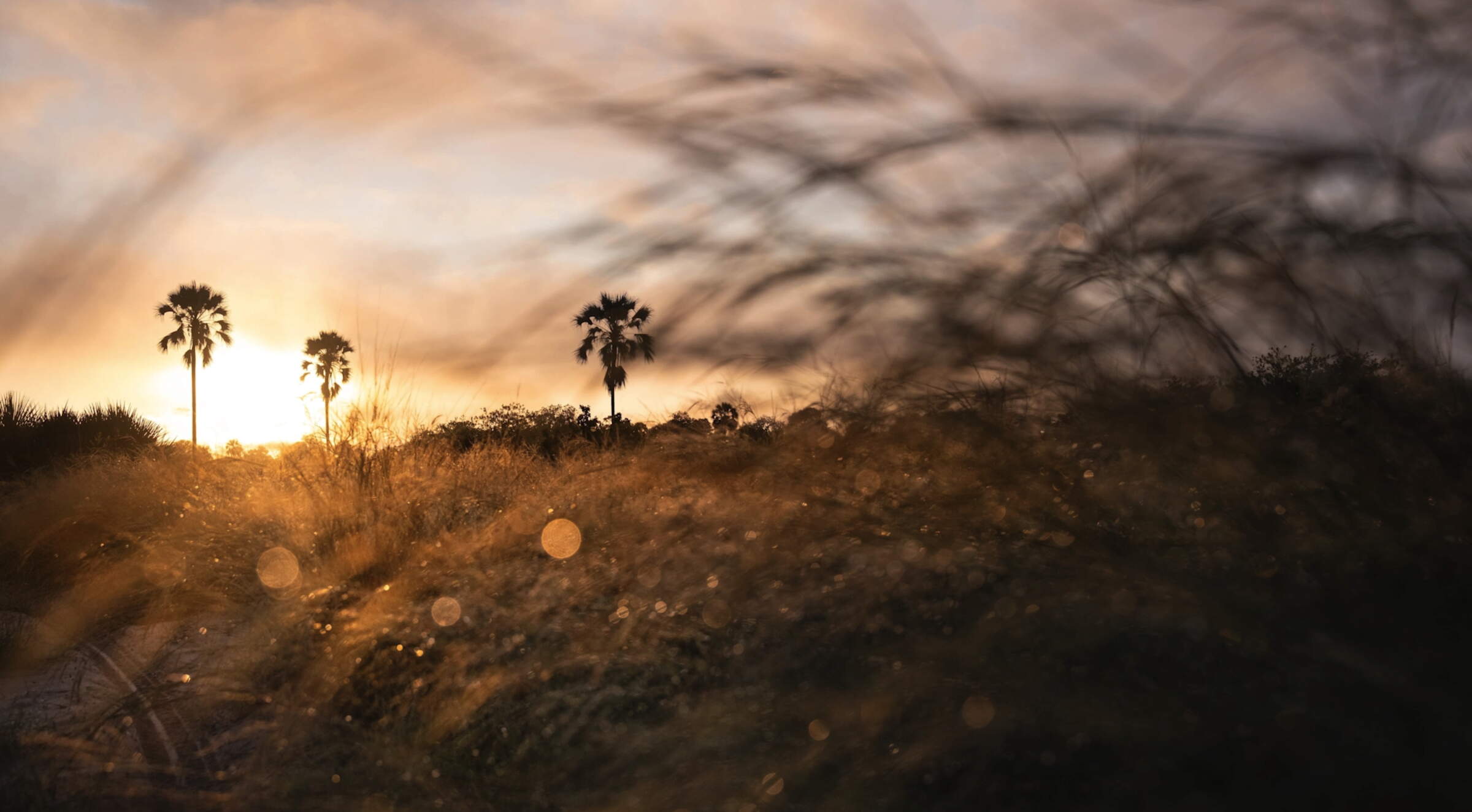
Singita Elela
Singita Elela is an exclusive safari camp on the western side of the Botswana's Okavango Delta - offering superb wildlife and water based opportunities depending on the seasonality.
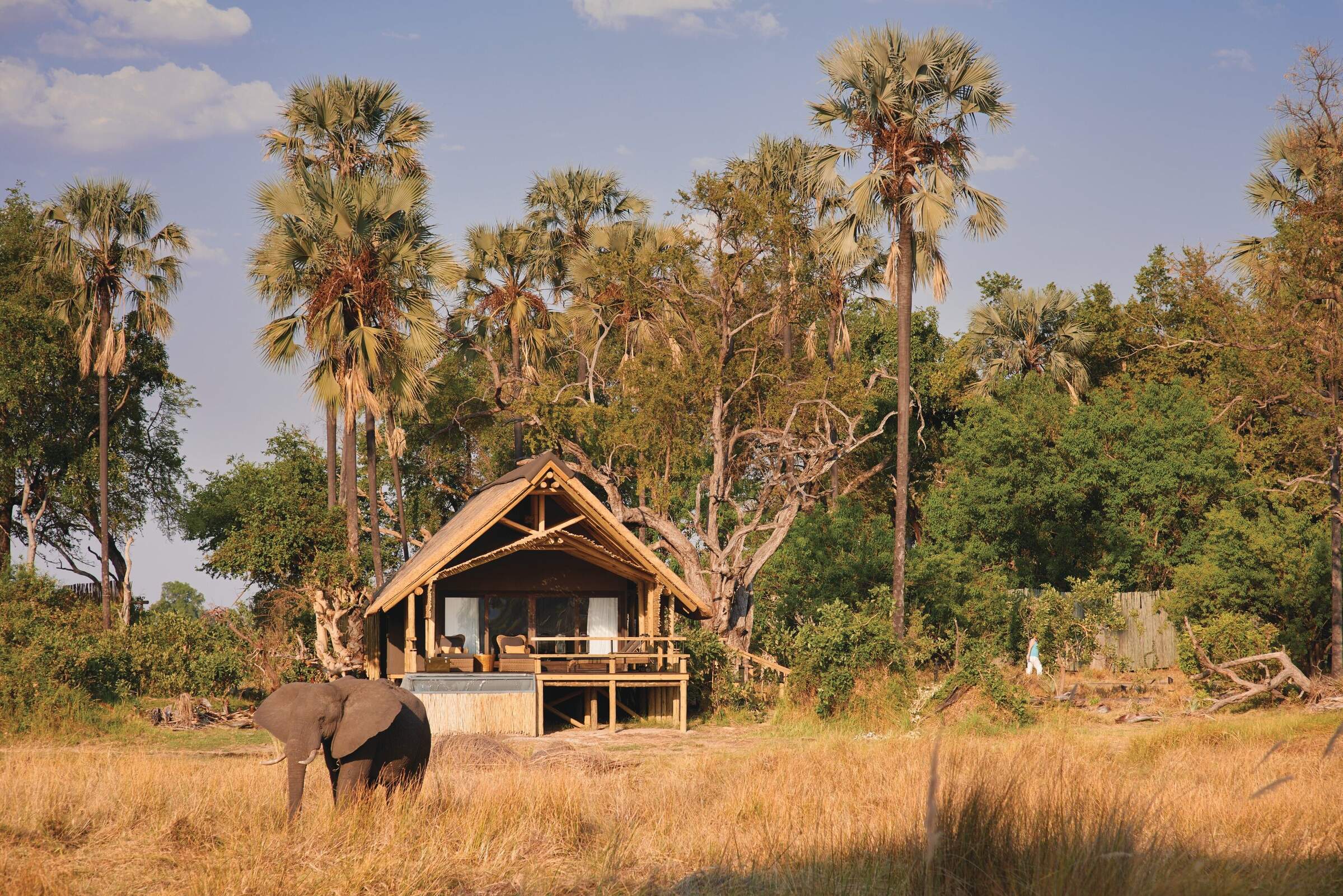
Eagle Island Lodge
Eagle Island Lodge is a luxurious camp with international-style facilities including air conditioning and intercom in each room; offering water based activities in the Okavango Delta.
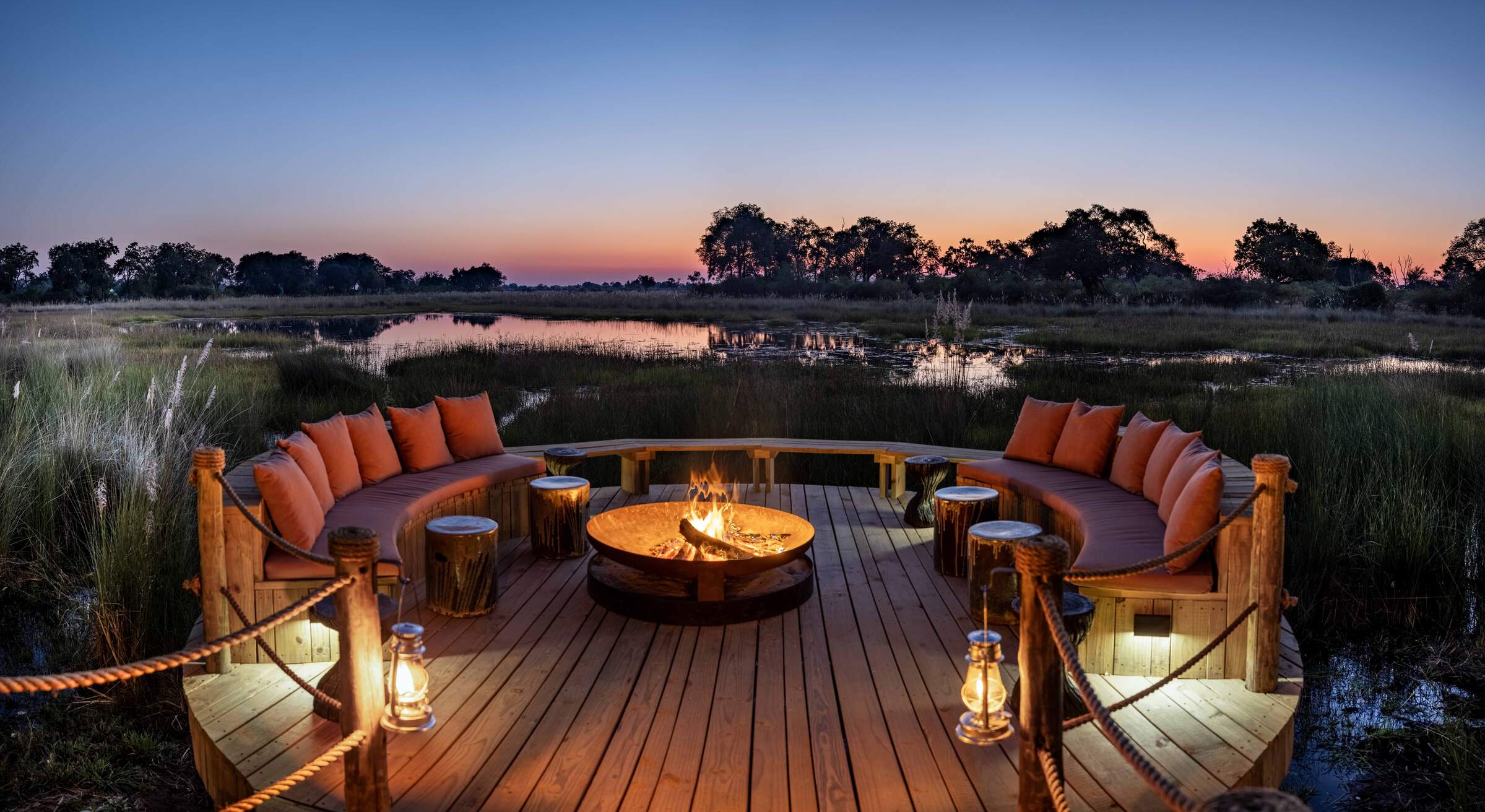
North Island Okavango
Deep in quintessentially “Okavango” territory, between deep-water and dry-land habitats, North Island focuses on a luxury safari experience with very good wildlife viewing opportunities.
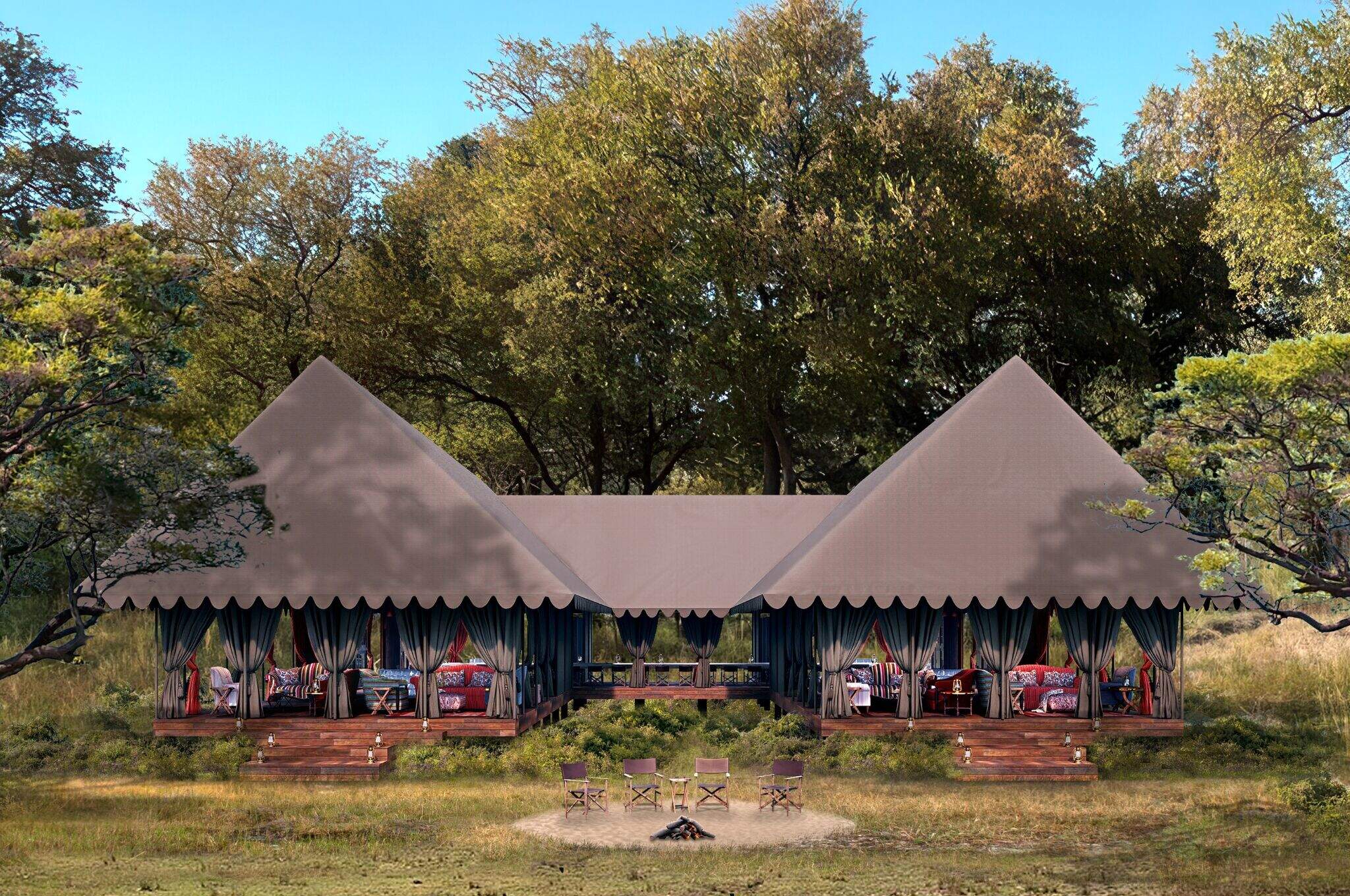
Mbamba
Deep within the northern Okavango, the classically styled Mbamba is set to open in a wildlife-rich private concession in April 2025.
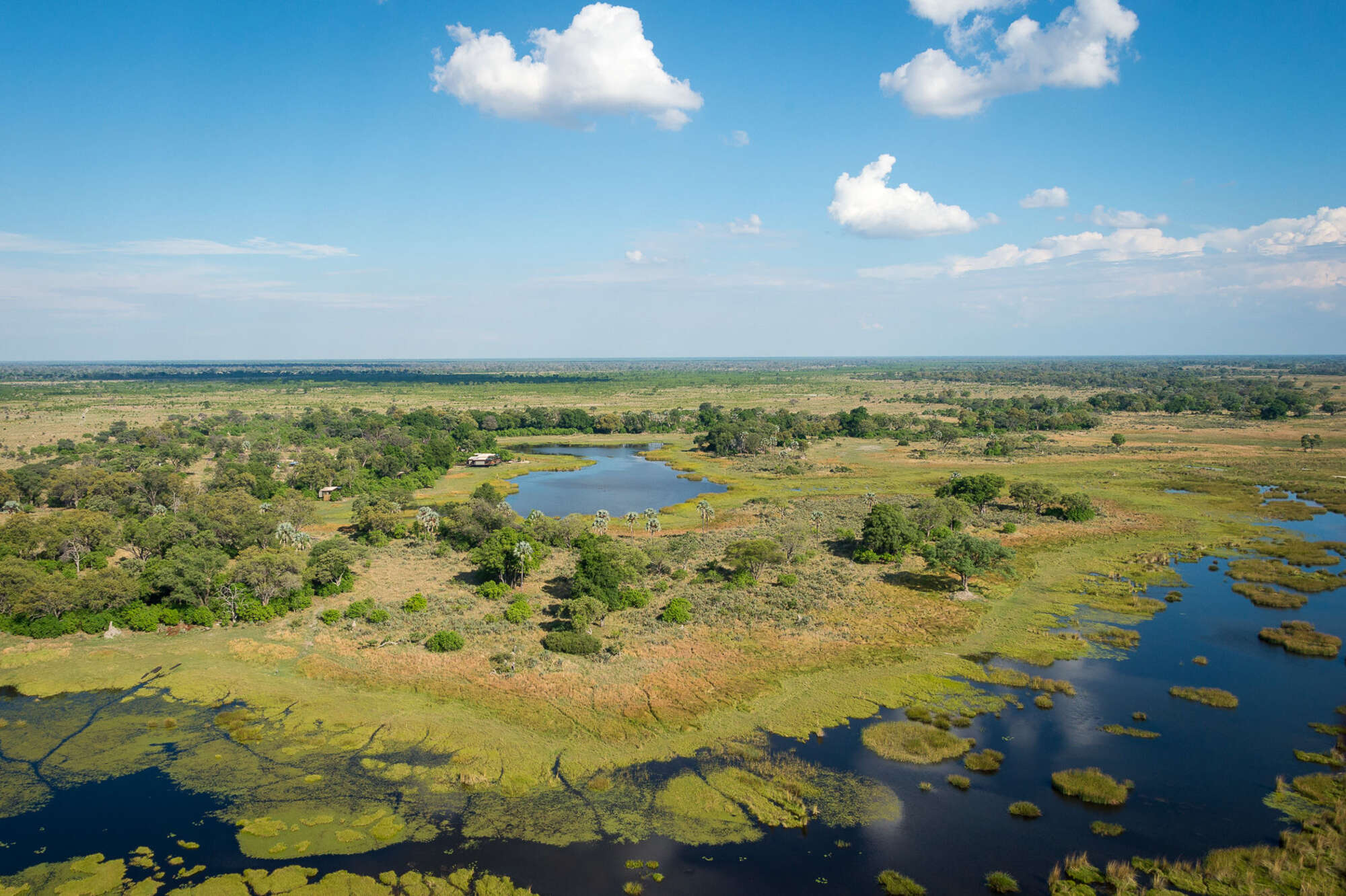
Qorokwe Camp
Luxurious and contemporary, the relatively new Qorokwe Camp is a gem in the Okavango Delta, offering land- and occasionally water-based activities in a prime wildlife area.
When to go to Okavango Delta Safari Reserves
Our month by month guide: What it's like to visit Nxabega Tented Camp in Okavango Delta Safari Reserves
Jan
Feb
Mar
Apr
May
Jun
Jul
Aug
Sep
Oct
Nov
Dec
Okavango Delta Safari Reserves in January
January marks the peak of the rainy season in the Okavango Delta. Evening rains are often short but heavy, accompanied by occasional dramatic thunderstorms. Temperatures remain high, although cooler than the preceding months of October to December. Wildlife can be harder to spot as animals spread out across the lush floodplains.
This month is a birdwatcher’s paradise, with migratory species in abundance over flooded areas. Rising water levels in parts of the Delta make mokoro safaris possible, offering serene and immersive experiences. The vibrant greenery and dramatic skies provide stunning opportunities for photography. With relatively low rates and fewer visitors, January is ideal for those seeking a quieter, budget-conscious Botswana safari.
- Warm temperatures with frequent evening showers
- Birdlife at its most spectacular in the Delta
- Wildlife dispersed, but insects and smaller creatures abound
- Excellent availability in Delta lodges and camps
Our view
A good time to visit, with pros & cons
Weather in January
Okavango Delta Safari Reserves in February
February mirrors January’s weather patterns, with heavy rains and slightly cooler temperatures. The Delta’s landscape is at its greenest and teeming with life. Smaller animals, insects, and vibrant birdlife dominate, as many species raise their young. The rains create temporary pools and waterholes, further dispersing larger game, while thick vegetation and tall grass adds to the challenge of spotting big wildlife.
However, Moremi Game Reserve and select areas of the Delta still offer excellent game viewing opportunities. Rising water levels enhance water activities, with boat safaris providing unique access to the Delta’s watery beauty. February is particularly rewarding for photographers seeking lush landscapes and dramatic skies and birdwatchers, with many migratory species present.
- Warm with occasional thunderstorms
- Many animals with young in the Delta
- Big game dispersed throughout wetlands
- Big game dispersed, but viewing improves in drier areas
- Lower visitor numbers and great lodge availability
Our view
This is not a great time to visit
Weather in February
Okavango Delta Safari Reserves in March
March marks the gradual end of the main rainy season in the Okavango Delta. Sunny days become more frequent, with occasional afternoon thunderstorms. The Delta remains lush and vibrant, with wildlife activity increasing as animals finish raising their young and begin congregating around permanent water sources.
Rising water levels make boat safaris a highlight, offering intimate access to the Delta’s waterways. Birdwatching is excellent, with both resident and migratory species thriving. With fewer visitors, March offers a quieter, more personal safari experience.
- Rains taper off but temperatures remain warm
- Occasional small thunderstorms in Delta
- Wildlife begins congregating around water sources
- Ideal conditions for boat safaris
- Few tourists and attractive rates at camps
Our view
A good time to visit, with pros & cons
Weather in March
Okavango Delta Safari Reserves in April
April brings clearer skies to the Okavango Delta, with the landscape remaining green and lush. Night temperatures begin to drop, especially in the southern Delta. The annual floods from Angola start to flow through the northern Delta, filling channels and lagoons, creating ideal conditions for water-based activities like boat safaris.
Wildlife viewing improves as vegetation thins and predator activity increases with cooler evenings. Moremi Game Reserve and the private concessions offer rewarding game drives, and walking safaris on the larger islands, such as Chief’s Island, become popular during this time. Birdwatching remains excellent, with many migratory species still present. April’s combination of pleasant weather, wildlife activity, and relatively low rates makes it a rewarding time to visit.
- Cooler evenings and occasional light showers
- Floodwaters begin to fill Delta channels
- Predator-prey interactions increase
- Ideal for walking safaris and boat trips
- Popular shoulder season, rates fairly low
Our view
A good time to visit, with pros & cons
Weather in April
Okavango Delta Safari Reserves in May
May is a popular time to visit the Okavango Delta, marking the last month of the shoulder season. The annual floods continue to spread through the Delta, transforming the landscape. Cooler mornings and evenings encourage predator activity, while thinning vegetation makes wildlife spotting easier, though some tall grasses may still obstruct views.
May offers excellent photographic opportunities with clear, crisp air. It's a favourite time for many visitors, combining good wildlife sightings with pleasant weather. Camp bookings throughout the Delta fill up quickly during this period.
This is a perfect month for scenic flights, offering breathtaking views of the advancing floodwaters. Mokoro trips through the Delta’s tranquil waterways provide a unique perspective on the environment. Camps start to fill quickly as the Delta’s combination of pleasant weather and excellent wildlife sightings makes it a favourite among safari-goers.
- Cool mornings and evenings with little rain
- Improved game viewing as Delta grasses thin
- Predator activity increasing in drier areas
- Scenic flights and water activities highly recommended
- Last month of shoulder season for camps
Our view
A very good time to visit
Weather in May
Okavango Delta Safari Reserves in June
June signals the start of the dry season in the Okavango Delta. Days are warm, with clear skies, while mornings and evenings can be cold, occasionally reaching freezing temperatures. The annual floods reach their peak, creating spectacular conditions for water-based activities like boat safaris along the Khwai River and in private concessions.
Wildlife concentrates around permanent water sources as surface water dries up, improving game viewing. The thinning vegetation and crisp, clear air make June perfect for photography. High demand for camp bookings reflects its popularity, as this month combines great game viewing and pleasant weather.
- Warm days, cold mornings and nights
- Peak floodwaters make boat safaris unforgettable
- Wildlife congregates around permanent water sources
- Excellent conditions for photography
- High demand for camps and lodges
Our view
Fantastic: the very best time to visit
Weather in June
Okavango Delta Safari Reserves in July
July offers cool mornings and evenings with warm, sunny days, making it ideal for wildlife viewing. The floodwaters remain at their peak, providing excellent opportunities for boat safaris. Vegetation continues to thin, enhancing visibility on game drives in Moremi Game Reserve and the Okavango’s private reserves.
Large herds of elephants and buffalo are common sights as they gather near water sources. Predator sightings, including lions and leopards, increase as prey concentrates. Birdwatching is rewarding, and the crisp winter air creates stunning photographic conditions. July is one of the most popular months to visit, with many lodges fully booked well in advance.
- Comfortable days, cold mornings and nights
- Excellent game viewing and predator activity
- Moremi and Khwai areas become busy
- Private concessions offer exclusivity
- High season rates; advance bookings essential
Our view
Fantastic: the very best time to visit
Weather in July
Okavango Delta Safari Reserves in August
August remains a highly sought-after month for visiting the Okavango Delta. Nights are cool, while daytime temperatures rise gradually. Wildlife viewing is exceptional as animals concentrate near water sources, while the Delta’s floods are typically at their peak, offering picturesque settings for excellent boat safaris.
Walking safaris and game drives in areas like Moremi Game Reserve and Chief’s Island are particularly rewarding. Large herds of elephants and buffalo are common sights, and predator activity is high, with increased chances of seeing lions, leopards, and wild dogs hunting. The clear skies and lack of humidity create excellent stargazing conditions. With many travellers visiting during European and North American holidays, lodge availability can be challenging.
- Dry, warm days and cool nights in the Delta
- Fantastic wildlife viewing near water sources
- Excellent opportunities for game drives and boat safaris
- Cloudless skies, spectacular stargazing
- High demand for accommodation – book early
Our view
Fantastic: the very best time to visit
Weather in August
Okavango Delta Safari Reserves in September
September is a favourite for many safari-goers in the Okavango Delta. Daytime temperatures rise, but nights remain cool. The landscape transforms as greenery fades, and hazy conditions create dramatic sunsets. Wildlife viewing peaks as animals cluster around permanent water sources, with especially large numbers of elephants and buffalo. This concentration of prey attracts predators, increasing chances of witnessing exciting hunts.
The return of migratory birds enhances birdwatching. Water levels begin to recede, but boat cruises are still possible. Dusty conditions may challenge photographers, but the stunning landscapes and wildlife action more than make up for it.
- Warm days, cool nights in the Delta
- Prime month for Okavango wildlife viewing
- Migratory birds return, enriching birdwatching
- Spectacular sunsets and dramatic scenery
- High season rates, many Delta camps full
Our view
Fantastic: the very best time to visit
Weather in September
Okavango Delta Safari Reserves in October
October is the hottest and driest month in the Okavango Delta. Wildlife concentrates around the last remaining water sources, creating some of the most dramatic game viewing opportunities of the year. Predator-prey interactions are frequent and visibility is excellent, making for thrilling safaris.
Walking safaris are particularly rewarding, especially on smaller islands, but early starts are essential to avoid the midday heat. Towards the end of the month, the first rains may bring relief and begin rejuvenating the parched landscape. Despite the heat, October offers excellent big-game viewing and dramatic photographic moments of animal interactions.
- Hot days, with late-month chances of rain
- Outstanding big-game viewing near water sources
- Water activities limited as floods recede
- Walking safaris provide unique experiences
- Final month of the peak safari season
Our view
Fantastic: the very best time to visit
Weather in October
Okavango Delta Safari Reserves in November
November marks the start of the green season in the Delta. Rising humidity and temperatures often lead to the first heavy rains; these are typically short, heavy showers in the late afternoon or night, creating spectacular scenes and bringing a flush of green to the parched landscape. Wildlife begins to disperse as waterholes refill, but game drives still offer rewarding sightings.
Water levels may be low, limiting boat activities, but November is exceptional for birdwatching, with the arrival of many migratory species. Scenic flights highlight the contrast between dry and wet areas. The first two weeks are popular for travellers seeking good game viewing at lower rates as the Delta transitions into its shoulder season.
- Hot, humid days in the Delta
- Dramatic rain showers , increasing as month progresses
- Migratory birds arrive in abundance
- Wildlife watching good, but less predictable
- Shoulder season offers mid-range rates
Our view
A good time to visit, with pros & cons
Weather in November
Okavango Delta Safari Reserves in December
December sees the rainy season in full swing across the Okavango Delta, bringing some respite from high temperatures. Game viewing becomes more challenging as wildlife disperses, but great sightings can still be had. The landscape transforms dramatically, with lush vegetation sprouting across the Delta. This period is excellent for birdwatching, with numerous migratory species present.
Water levels begin to rise, gradually improving conditions for boat safaris. The green season offers unique photographic opportunities, with dramatic skies and newborn animals. December is ideal for visitors seeking a more intimate Delta experience, with fewer tourists and lower rates at many camps and lodges. The combination of wildlife, birdlife, and scenic beauty makes it a rewarding time to visit.
- Warm temperatures
- High chance of rain in short, heavy storms
- Wildlife more dispersed across Delta
- Game viewing more challenging in wetlands
- Low-season rates and fewer visitors in most Delta camps
Our view
A good time to visit, with pros & cons
Weather in December

Looking for inspiration on where to travel next?
Visit our trip chooser to explore your options and find inspiration for your perfect African adventure
Inspire me